
Vient de paraître
Le n°400 du Bulletin célinien
Sommaire : L’art de l’annonce chez Denoël – Bouquet pour le 400e – Un flâneur épicurien et lettré.
En poursuivant votre navigation sur ce site, vous acceptez l'utilisation de cookies. Ces derniers assurent le bon fonctionnement de nos services. En savoir plus.

Ex: http://www.counter-currents.com
Everything is going exactly according to plan. This is what super-villains always say, usually just before their plans are upset. (“Seize him, you fools! He’s getting away!”) So, I am may be tempting fate by saying such a thing, but actually I don’t think so. As of late it really does seem like something — Providence, the Invisible Hand, the Cunning of Reason, or what have you — has been at work behind the scenes, helping our cause. In truth, we don’t have a plan, but events are unfolding as if someone does, and as if that someone is smiling upon us (perhaps from atop his perch in Asgard).
None of this should be particularly surprising. After all, we have the truth on our side. And the truth is reality. No individual and no civilization can exist for long in revolt against reality. Reality always finds a way to thwart our denial and our delusions, and to call attention to itself over and over again — until finally we are compelled to listen. Aristotle said that “truth seems to be like the proverbial door, which no one can fail to hit.” Actually, truth is like the proverbial Mack truck which cannot fail to hit us, if we try denying it for very long.

Now, an important part of how this Providence/Cunning of Reason stuff works is that if there is a truth that needs to come out, or a major societal shift that needs to take place, whatever human actors do will tend to advance this. In other words, once we reach a certain set of conditions where the denial of truth is no longer viable, and the truth is just aching to get out, even those who oppose this process will wind up helping it along. Their actions, in short, have unintended consequences. We now see this playing out in a big way in how the Left is conducting itself, especially in its attempts to oppose us. Some of the ways this is happening are obvious, and have been commented on before; others are not so obvious.
The Left thinks it has scored some recent victories by “infiltrating” our private gatherings and reporting on them. This includes the London Forum and the Counter-Currents-sponsored Northwest Forum. As Greg Johnson has already pointed out, all these infiltrators succeeded in doing was proving that we say the same things in private that we do in public. (The claims of Leftists that we’ve been “exposed” are therefore especially comical.) Aside from this, what we are quoted as saying will probably attract more people than it will repulse. Of course, Leftists are constitutionally incapable of perceiving this. They think that our ideas are so self-evidently evil all they have to do is lay them bare. But to almost everyone who isn’t a committed Left-wing ideologue, at least some of our ideas seem . . . well . . . true.

For example, Greg Johnson was secretly recorded at the London Forum quoting someone saying that “while the survivors [of the Manchester Islamic terrorist attack] were still picking bloody bits of children from their hair, Britain’s leaders were rushing toward the nearest camera to profess their undying commitment to diversity.” This is actually an extraordinarily powerful observation, which would stir many people at least to say “you know, he’s got a point.” But, of course, Leftists cannot see this: they broadcast the comment to all the world, thinking it would be summarily rejected by all right-thinking people. Umm, not quite. Thank you, Leftists! If you had but one face I would kiss it (and then get a shot of penicillin).
But this infiltration has the potential to birth an even more important, and less obvious, unintended consequence (and this one is real Cunning of Reason stuff). After the infiltration of the Northwest Forum, the organizers have now decided to make these events public. Our movement already has annual or semi-annual conferences, such as AmRen and NPI. However, the vast majority of events are private, invitation-only affairs which rely on secrecy: vetting (sometimes none-too-successful-vetting, it seems), announcing the location at the last minute, etc. These infiltrations teach us that the way forward may be to end this practice, and make many of our events open to the public. This would make us more visible — more of a regular part of the social and political landscape.
The unintended consequence of Leftist infiltration would therefore be one that Leftists desperately want to avoid: our “normalization.” Publicly-held, New Right events would simply become a “regular thing.” Going (more) public would also require many participants in our events to face a tough choice. They would have to ask themselves whether they are willing to take the risk of being seen at a public event, or forgo attending altogether. More and more of our hitherto reclusive comrades, I believe, have reached a point where they are willing to say “fuck it” and show up anyway, regardless of the consequences. And as more of these public events begin popping up, and more people show up (if only out of curiosity) it will be harder and harder to penalize attendees in some fashion or other. Again, thanks Leftists.

To cite one specific case, Greg Johnson has hitherto been famously camera shy, due to his desire to follow the advice of Socrates and maintain as much as possible “a private life.” But Greg’s recent video exposure has forced him to confront the fact that maintaining a private life is now pretty much a lost cause — the Left (as well as some douchebags on “our side”) won’t allow it. And that’s very good for us. Greg has the best mind in the American New Right scene. Abandoning his former reclusiveness means that we will be seeing more of him: more public lectures and conference appearances, and possibly YouTube videos. Ironically, in “exposing” Greg the Left has . . . well . . . increased his exposure; it has freed him (or perhaps I should say “unleashed” him). This isn’t what the Left wanted — but, again, ideology has made them too stupid to see that they are cooperating in undermining themselves.
Then there are the growing number of “hit pieces” that have been published in recent months, targeting prominent members of our movement. These are stuffed to the gills with unintended consequences. As everyone knows by now, Mike Enoch was the subject of a recent exposé in The New Yorker. One gets the impression that the author probably tried hard to make Mike look bad — but, predictably, the article has the unintended consequence, to any unbiased reader, of making him look like rather a swell fellow. As one of my (very objective) correspondents put it: “One gets the impression that Enoch really is seeking for truth. There are also details like him taking care of his handicapped mischling brother, that make him look rather nice and caring. Also, he does not say anything bad about his (I assume soon-to-be-ex)-wife, which is usually the case with any divorce. In fact, his attachment to her comes through strongly. The overall picture is rather complex and a far cry from the usual villain caricatures.”
An even better example of the unintended consequences of Leftist exposés is the profile of the German Götz Kubitschek which appeared just before the Enoch piece in The New York Times. This is, without question, the most fair and objective article I think I have ever seen on a Right-wing figure. But I suspect that the (presumably Left-wing) reporter simply allows Kubitschek to speak for himself because he thinks that, again, our ideas are so self-evidently evil all one need do is report them accurately. This backfires in a very, very big way. Not only does Herr Kubitschek seem sweetly reasonable, we learn that he has seven children and a farm full of lovingly-tended goats and bunny rabbits. At one point, he absents himself from the interview to go and heal an ailing baby goat. The only way this could have been better for us is if Kubitschek had been depicted curing lepers or miracling bread into existence. Once again, the Left takes careful aim at its own foot and opens fire.

Götz Kubitschek milks goat
Mention must also be made of the Left’s attempts to censor us, de-platform us, ruin our lives and careers, etc. (I have already written an essay about how to deal with these dangers on a day-to-day basis.) Every time this happens — if it gets some exposure — the Left comes off looking more and more desperate, hateful, and intolerant. A reversal is taking place very, very quickly: the Left is positioning itself as the defensive, tyrannical Establishment, and simultaneously positioning us as the rebels, the true “liberal” advocates of freedom of thought, and as the new counter-culture. Thanks! Sensible, average people cannot help but see the hateful, censorious behavior of the Left as the last gasp of a dying ideology. In other words, at some level of their awareness they see this behavior and think “What’s wrong with these people? What are they trying to hide? What are they trying to compensate for?” This is not the behavior of people confident in the truth of their views — it is the behavior of cornered rats; of criminal types who know the jig is up; of moochers who’ve realized the free lunch is over with.
Needless to say, this also applies to the violence of the Left, especially when it is perpetrated by Antifa and Black Lives Matter. Decent, average folks deeply disapprove of lawlessness, and of violence used as a tool of oppression, especially when it is directed at the underdog (this is very deeply set in the American character). Thus, Trump very wisely appealed, as did Nixon in 1968, to “law and order.” This is very probably a major part of why he won. Since the election, of course, the Left has continued to oblige us by amping up the violence. In general, as has been pointed out by many, the general bat-shit-crazy antics of the Left since the election of Donald Trump have only been helping us. More and more people are fed up with Leftism, and getting more bold about saying so.

And we must add to this the fact that, in addition to violence and mischief of all sorts, the Left seems completely clueless about the fact that Americans in vast numbers have repudiated their policies — every one of which has been a disaster for the country, and for the electoral prospects of liberals. Just the other day the liberal-controlled Boy Scouts of America announced that it will accept girls, presumably including girls who think they are boys. But this is just an extension of the “gender madness” that seriously harmed Democrats in the last election. Now California seems poised to pass a law criminalizing the use of the wrong pronouns when dealing with “transgender” people (while simultaneously making it no longer a felony to deliberately infect someone with HIV).
It’s really like Leftists just can’t help themselves. And, indeed, they can’t. They are committed to a life-denying morality that, taken to its logical conclusion, destroys families, communities, and all the basic institutions of civilization. That includes liberal families, communities, and institutions. And the moral fanaticism of the Left requires them to carry their ideas to their logical conclusion — to the extreme. What we are seeing is the Left beginning to eat itself, in a dialectic that spells their doom. The Left cannot abandon the ideology in which it has invested so much — the ideology through which its overly-socialized adherents find their self-worth; the ideology through which its base of slave-types and defective oddballs seeks to revenge itself upon the strong and the healthy. The Left will only continue to double-down and become more insane, more extreme. And the result will be that it will destroy itself, and probably quicker than any of us think. It seems right on course to do this, and the signs are everywhere. We can help this along through our activities, but really the Left is doing all the heavy lifting for us.
Three cheers for unintended consequences!
This just in: An appearance by Martin Sellner and Martin Lichtmesz at the Frankfurt Book Fair made international news when they were accosted by Antifa. Result: 3,000 copies of Lichtmesz’s new book have sold! Thank you again, Leftists. We owe you so much!
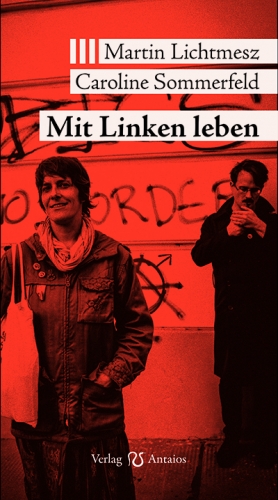
15:51 Publié dans Actualité, Nouvelle Droite | Lien permanent | Commentaires (0) | Tags : actualité, allemagne, états-unis, gauche, antifa, götz kubitschek, nouvelle droite, nouvelle droite allemande, neue rechte |  |
|  del.icio.us |
del.icio.us |  |
|  Digg |
Digg | ![]() Facebook
Facebook
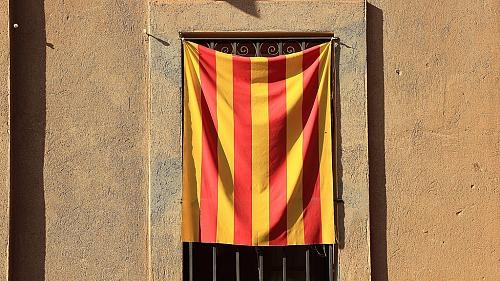
par Thomas Ferrier
Ex: http://thomasferrier.hautetfort.com
Toutes les identités d’Europe doivent être préservées et il n’y a aucune raison en soi que l’identité catalane soit écrasée par l’identité castillane. Elles ont toutes le même droit de perpétuer leur héritage/patrimoine et de le transmettre aux nouvelles générations. La France jacobine a écrasé les identités propres à son territoire en imposant le français, c’est-à-dire en réalité le francilien, la dialecte d’oïl de la région parisienne, siège du centralisme capétien puis républicain. Et de même le régime franquiste en Espagne a violemment réprimé les nationalismes catalan et basque.
Mais depuis les années 70, les provinces d’Espagne, comme la Catalogne, ont bénéficié d’une large autonomie. Ce ne sont pas les Espagnols qui mettent en danger l’identité catalane mais les prétendus indépendantistes catalans eux-mêmes, animés par une idéologie gauchiste qu’on peut retrouver chez Podemos, et qui les amènent à se faire les promoteurs d’une immigration immodérée, créant ainsi la seule menace réelle sur l’identité catalane.
En réalité, la pire chose qui pourrait arriver aux Catalans eux-mêmes serait que ces « indépendantistes » qui nient la parenté de culture entre Castillans et Catalans, et entre Européens en général, arrivent au pouvoir d’un Etat devenu indépendant, où ils distribueront la nationalité catalane à tout le monde, détruisant l’identité catalane qu’ils prétendent défendre.
Le gouvernement espagnol ne veut pas de l’indépendance catalane pour de bonnes et de mauvaises raisons. Sa façon d’affirmer son pouvoir ne paraît pas adéquate. Il aurait suffi de garantir les conditions démocratiques d’un référendum, que les indépendantistes auraient certainement perdu, pour désactiver leur action.
Les régionales ou indépendantistes de droite, notamment en Flandre, qui ont apporté leur soutien à l’indépendance catalane se trompent de combat. Les identitaires catalans font fausse route en acceptant que leurs pires adversaires en Catalogne réalisent cette indépendance à laquelle eux-aussi aspirent. Une responsable de SOM Catalans déclare ainsi qu’il n’y a « rien de commun entre l’Espagne et la Catalogne », ce qui est une absurdité d’un point de vue historique. Cette identitaire catalane revendique également la Catalogne française, mais aussi les Baléares et Valence.
Outre le combat commun pour la Reconquista, il y a le même héritage celte, romain et germanique (gothique), sans parler de l’héritage ibère plus ancien. Ce genre de déni me fait penser à celui des souverainistes français, qui considèrent que la France et les autres nations d’Europe n’ont rien en commun, alors que dans le même temps selon eux « tout le monde » peut devenir français.
Alors que le combat identitaire implique de se placer dans le cadre d’une Europe unie, nous retrouvons là les égarements nationalistes classiques. Faire de la Catalogne un État souverain de plus, quel intérêt ? Pour ne pas avoir à contribuer économiquement au reste de l’Espagne, alors même que la gouvernance catalane pratique l’assistanat généralisé ?
Il est indéniable que les États nationaux classiques sont incapables de protéger les Européens contre le mondialisme, mais si l’État espagnol en est incapable, que dire du futur État catalan ? Le cas de l’Écosse est différent puisque c’est parce qu’elle veut rester en Europe qu’elle envisage de se séparer du Royaume-Uni, mais pour y appliquer la même politique migratoire suicidaire, en pire.
Il ne faut pas un État de plus en Europe, mais un seul Etat pour l’Europe. En ce sens, Catalans et Espagnols resteront les citoyens d’un même ensemble, sans les contentieux historiques désormais ringardisés, qui s’appellera l’Europe. C’est dans l’unité politique du continent que se trouvent la réconciliation et la restauration des identités d’Europe menacées par le globalisme, qu’il soit libéral ou marxiste. Les défenseurs de l’indépendance catalane ont tort. Les partisans d’une Espagne unie aussi. Tous deux nient l’essentiel, la nécessité d’une Europe politique forte et unie qui n’a que faire de querelles de clochers sans intérêt, tant que les identités sont préservées.
C’est par l’Europe que l’identité catalane, comme l’identité castillane d’ailleurs, sera préservée. Il est donc impératif que les catalans identitaires laissent à cette extrême-gauche funeste ce fantasme d’une souveraineté de papier et œuvrent plutôt à l’émergence d’une Europe unie, respectueuse par subsidiarité des identités intra-européennes.
Thomas FERRIER (Le Parti des Européens)
14:44 Publié dans Actualité, Affaires européennes, Politique | Lien permanent | Commentaires (0) | Tags : catalogne, espagne, europe, affaires européennes, politique, politique internationale, actualité |  |
|  del.icio.us |
del.icio.us |  |
|  Digg |
Digg | ![]() Facebook
Facebook
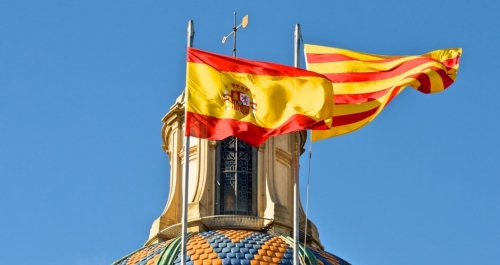
RS.
18:26 Publié dans Actualité, Affaires européennes, Politique | Lien permanent | Commentaires (0) | Tags : politique, actualité, catalogne, espagne, europe, affaires européennes, robert steuckers, alberto buela |  |
|  del.icio.us |
del.icio.us |  |
|  Digg |
Digg | ![]() Facebook
Facebook

Nous reproduisons ci-dessous un point de vue intéressant de , cueilli sur Figaro Vox et consacré à la survie idéologique de la droite. est auditeur au Conseil d'Etat et maître de conférence à Sciences-Po.
Ex: http://metapoinfos.hautetfort.com
La gauche a assumé l'abandon du peuple, la droite doit assumer celui des élites
«Car il m'est apparu que l'homme était tout semblable à la citadelle. Il renverse les murs pour s'assurer la liberté, mais il n'est plus que forteresse démantelée et ouverte aux étoiles. Alors commence son angoisse qui est de n'être point» (Saint-Exupéry, Citadelle)
Ainsi en est-il de la scène politique française, structurée autour d'une seule et même idéologie, celle de la déconstruction permanente.
Cette idéologie promeut le progrès conçu non comme surgissement d'une volonté dans l'histoire, mais, s'appuyant sur le confort matériel, comme un projet d'émancipation de l'homme contre toutes les formes de limites, quels que soient le sens de ces limites et la finalité poursuivie par celui qui vise à s'en débarrasser.
Elle emprunte la méthode spécifique de la table rase, où l'histoire n'est plus faite de tâtonnements mais de certitudes aveugles en vue de soumettre la réalité réticente de la matière, tant dans le domaine scientifique (transhumanisme) que politique («arracher l'enfant des déterminismes de sa famille» de V. Peillon).
Après son stade moderne, qui fut celui des mouvements collectifs (nationalismes, communismes), cette idéologie sera, au XXIe siècle, celle de l'agitation individuelle.
L'individu devient unique source et finalité de la société ; la conscience même d'un bien commun disparaît derrière le relativisme de groupes multiples organisés par leurs intérêts particuliers, réduisant la communauté de destin en un vaste marché mondial visant à l'épanouissement narcissique (Christopher Lasch) dont le politique ne serait qu'un secteur d'industrie.
La scène politique française, entre consensus idéologique et fractures sociologiques, menace de dislocation la droite dite «de gouvernement».
Dans la plupart des pays occidentaux, l'hégémonie culturelle de cette idéologie a creusé un fossé aujourd'hui presque sociologiquement figé, entre ceux qui en bénéficient et ceux qui en sont frustrés.
Si le cœur de l'élite «de masse» (20-30% de la population selon C. Guilluy) a retiré les fruits de la mondialisation et de sa vision individualiste et libertaire (pour faire court, le droit de jouir sans entrave), la généralisation de la «société de marché» a percé les frontières des États et celles de tous les corps sociaux protecteurs - familles, écoles, entreprises - pour les atomiser en gagnants et en perdants.
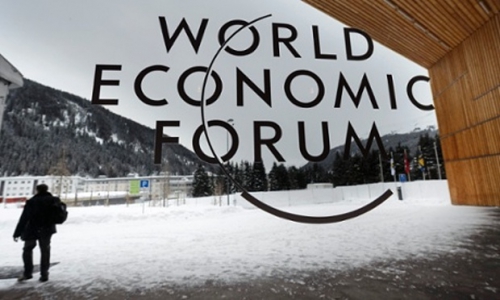
Ces derniers, ceux qui ne «sont rien» (la France périphérique, soit les 2/3 de la population, toujours selon C. Guilluy), cherchent aujourd'hui à prendre leur revanche en se tournant, soit vers Marine Le Pen pour se décharger sur d'opportuns boucs émissaires (la finance, l'Europe, l'immigration), soit vers Jean-Luc Mélenchon promettant davantage d'utopies libératrices en surfant sur la colère du peuple (revenu universel, etc.).
Cette déconstruction des nations entre centres et périphéries se retrouve partout ailleurs: en Angleterre avec la cartographie du «Brexit» opposant la Greater London aux autres régions du pays, ou aux États-Unis, entre les central states et les coastal states.
Chez nous, la carte des électeurs du premier tour des présidentielles est éloquente (métropoles vs. France des villes moyennes).
La droite s'est historiquement contentée d'être le bon gestionnaire de cette idéologie depuis 1968, soit par
désintérêt (elle s'est jetée à corps perdu dans le mondialisme et l'économie), soit par dégoût (c'est la bourgeoisie plus conservatrice qui se tourne vers la politique de proximité et se replie sur son entourage proche).
Elle s'est contentée de se fondre dans le paysage dessiné par l'idéologie de la déconstruction en tentant d'y apporter un semblant d'ordre et de bonne gestion financière: le débat politique de la droite lors des législatives s'est ainsi résumé, après la grande désillusion des présidentielles, à une querelle comptable de chiffres et de mesures paramétriques (baisse de l'IR, etc.) sans vision aucune.
Le consensus idéologique ambiant n'a donc jamais été remis en question ; bien au contraire, le libéralisme traditionnel de la droite s'est laissé glisser vers la quête de la jouissance servile aux mains d'un État devenu simple gestionnaire.
Or, les laissés-pour-compte de la mondialisation montrent qu'ils ne se satisferont plus des promesses de la gauche et du vide intellectuel laissé à droite.
À l'heure du Brexit, de Trump, de Podemos, du mouvement des 5 étoiles et du FPÖ, la ligne de partage politique n'est plus entre une pensée de droite et une pensée de gauche, indépendantes l'une de l'autre.
Le clivage n'est plus idéologique: il menace de ne devenir que sociologique, entre les gagnants et les frustrés du libéralisme libertaire. Le risque est de voir une telle opposition, qui ne se situe plus sur le plan des idées, se traduire par la violence la plus brutale - déchaînement des frustrations et de l'accumulation des rancœurs, entretenues par le système médiatique.
Entre En Marche, qui rassemble, dans un discours de gestionnaire rassurant, jeunes diplômés, immigrés et cadres des métropoles mondialisées, et Jean-Luc Mélenchon ou Marine Le Pen, qui rivalisent d'irresponsabilités pour incarner la revanche des antisystèmes et des classes populaires, le «marché» électoral de la droite dite de gouvernement s'est, faute de discours cohérent, réduit comme peau de chagrin.
Pour survivre, la droite devra bâtir un discours autonome qui réinvestisse le champ du politique plutôt que celui du gestionnaire.
La recomposition actuelle du paysage politique français autour des deux extrêmes et l'apparition d'En Marche signeraient à terme l'avènement d'un grand parti centriste, majoritaire, mais traversé de courants profondément divergents et incohérents, constitué d'alliances de circonstances instables et ponctuelles rappelant les gouvernements de la IVe République.
Ce schéma risque de «satelliser» la droite en caution économique d'un programme qu'elle ne maîtriserait plus. Cependant, la faiblesse du score de MLP au premier tour des présidentielles, et les divisions internes du FN auquel les départs de Marion Maréchal-Le Pen et de Florian Philippot portent un coup, constituent une opportunité immense pour que la droite de gouvernement effectue, à l'occasion de ces prochaines années, le travail sur elle-même analogue à celui des conservateurs britanniques au milieu des années 2000 devant une gauche économiquement et sociétalement libérale, et des extrêmes qui prêchaient la révolution.
La gauche avait, en son temps, assumé l'abandon du peuple qui a tout perdu: la droite pourrait assumer celui des élites postmodernes qui ont tout gagné. L'urgence de la droite, face à son risque de dissolution, est de récupérer trois pôles: l'électorat populaire (attaché à des valeurs de responsabilité, d'autorité et percevant les ravages du libéralisme libertaire), l'électorat bourgeois des provinces et assimilé, souvent de culture catholique et sociale, et celui de la gauche dite «réac», chevènementiste.
Comme l'avait fait le think-tank Terra Nova dès 2011 en orientant cyniquement le PS vers l'électorat de la coalition des bobos et des minorités, il s'agirait ici pour la droite d'abandonner l'élite déracinée et déterritorialisée, qui aurait tout à perdre d'un changement de son discours, pour rassembler la bourgeoisie de province et les classes populaires dans une sorte de «Terra Nova inversé».
Ce Terra Nova inversé n'aurait pas pour objet de promettre une quelconque revanche, mais de proposer aux «perdants» économiques et culturels de porter un changement de paradigme.
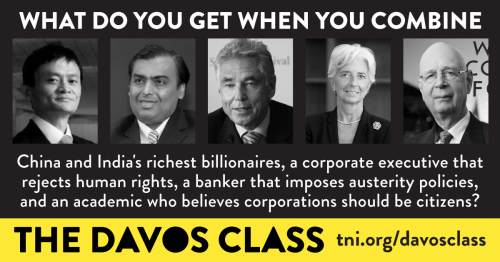
Face à l'idéologie de la déconstruction qui rassemble pour mieux les déchirer les deux «camps» des gagnants et des perdants de la mondialisation libérale-libertaire, la droite doit bâtir un discours autonome et crédible.
Pour ce faire, elle refuserait de ne concevoir la nation que comme un agglomérat d'individus dont le politique n'aurait qu'à organiser l'interaction pour en maximiser l'épanouissement matériel ; et elle refuserait dans le même temps de promettre la «revanche» des classes populaires par des promesses intenables ou de verser dans le décroissantisme, marqueurs des deux extrêmes.
Refuser l'idéologie de la déconstruction, c'est à la fois refuser son matérialisme individualiste post-politique qui continue à atomiser la société en produisant des «gagnants» et des «perdants», et refuser sa méthode de la table rase surfant sur les fausses promesses et les colères stériles ; c'est assumer la nécessité pour toute société qui souhaite perdurer et vivre librement de protéger les trésors chèrement accumulés au fil des siècles.
C'est donc affirmer le besoin de transmission de notre culture, qui suppose un espace clos, un territoire, afin de générer la confiance et la fraternité nécessaires à l'existence d'une vie démocratique enracinée - d'une vraie démocratie, tout simplement.
Ce projet aurait à son cœur le rejet de l'émerveillement béat et des frustrations violentes, lui préférant l'enracinement dans le passé pour une projection vers l'avenir. Son maître-mot ne serait pas «construire», mais «grandir», y compris à partir du local, plus propice à l'élaboration apaisée de solutions concrètes aux véritables problèmes de fond.
La protection qu'il offrirait n'est pas refus du changement, d'où le rejet du mot-caricature de «conservatisme»: elle réhabiliterait l'idée que l'innovation n'est ni bonne, ni mauvaise, mais qu'il revient à notre volonté politique de la saisir comme une opportunité et de la maîtriser comme un danger.
C'est ainsi réhabiliter la place du politique, sa vocation à orienter plutôt qu'à accompagner les changements qui sont loin d'être inéluctables.
Ce serait donner envie aux Français de redécouvrir qu'ils peuvent encore, en tant que peuple, maîtriser les décisions qui ont trait à des sujets structurants pour notre avenir (écologie, transmission des savoirs et des valeurs, rapports à la mondialisation et au libre-échange, rapports à la technologie notamment quant à ses impacts éthiques et sociaux, etc.).
Ce serait donc leur permettre de reprendre goût à leur propre liberté politique.
«Un être humain a une racine par sa participation réelle, active et naturelle à l'existence d'une collectivité qui conserve vivant certains trésors du passé et certains pressentiments d'avenir», disait Simone Weil.
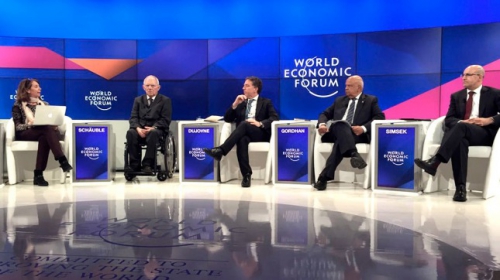
Cette refondation idéologique est à même de séduire l'électorat cible, mais aussi d'aller au-delà.
Pour les classes populaires ou moyennes, et la bourgeoisie dite de province, il s'agit de reconnaître la valeur d'une patrie en partage, ainsi que le capital immatériel que représente la «décence commune» dont parle George Orwell sans laquelle «l'unité politique n'est qu'une coquille vide» (M. De Jaeghere).
Mais c'est aussi un discours capable de rassembler d'abord les libéraux, au sens premier du terme - ceux qui aspirent à la protection des personnes contre l'arbitraire du pouvoir, ceux qui estiment qu'il appartient à chaque institution, Etat compris, de se cantonner à son rôle pertinent (notamment en matière économique),.
Mais aussi ceux qui reconnaissent que l'économie de marché ne fonctionne durablement - et n'est même historiquement apparue - que dans le cadre de communautés culturelles enracinées, assumant une certaine éthique, et structurées par des Etats-nations démocratiques.
Enfin, c'est un discours susceptible de séduire une partie de l'électorat préoccupé par la question sociale, en développant des politiques fondées sur la notion de responsabilité plutôt que sur l'humiliation d'un assistanat organisé: les Français veulent travailler et non vivre d'allocations ; ils veulent se sentir intégrés dans la société et pas sans cesse renvoyés à leurs origines par un discours victimaire et moralisateur.
Cette velléité de bâtir un nouveau parti de masse à droite, ni gestionnaire, ni démago, trouve de nombreux échos intellectuels et médiatiques, des anciennes gauche et droite: Finkielkraut, Brague, Debray, Gauchet, Onfray, Delsol, Polony.
A l'heure où ce combat culturel est mené avec brio, la droite, si elle ne veut pas disparaître, devra prendre le chemin de crête périlleux qui consiste à rejeter en bloc le confort d'une politique gestionnaire en s'affranchissant d'une idéologie qui lui aliène le nouveau cœur de son électorat putatif: les classes moyennes et populaires, et la bourgeoisie dite de province.
(Figaro Vox, 6 octobre 2017)
18:14 Publié dans Actualité, Affaires européennes | Lien permanent | Commentaires (0) | Tags : politique, droite, mondialisme, actualité, europe, affaires européennes, élites mondialisées |  |
|  del.icio.us |
del.icio.us |  |
|  Digg |
Digg | ![]() Facebook
Facebook
22:46 Publié dans Actualité, Affaires européennes, Entretiens | Lien permanent | Commentaires (0) | Tags : jean-michel vernochet, actualité, europe, france, affaires européennes, politique internationale |  |
|  del.icio.us |
del.icio.us |  |
|  Digg |
Digg | ![]() Facebook
Facebook

Le n°400 du Bulletin célinien
Sommaire : L’art de l’annonce chez Denoël – Bouquet pour le 400e – Un flâneur épicurien et lettré.
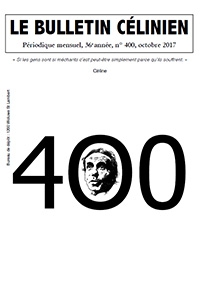 Ce qui fut écrit en ouverture du n° 300 (septembre 2008) pourrait être repris ici. Entre autres la crainte de l’autocélébration, toujours un peu ridicule. Mais si on ne fête pas ce n° 400, qui le fera ? Soyons néanmoins lucides : le seul titre de gloire du BC est d’être l’unique mensuel consacré à un écrivain. Pas de quoi pavoiser pour autant. Ce modeste Bulletin ne se targue pas d’être une publication scientifique même s’il publie régulièrement des articles de fond. Son responsable n’est ni un exégète ni un chercheur reconnu par ses pairs, juste un publiciste célinien auquel on peut tout au plus reconnaître une certaine constance.Si, selon la formule consacrée, l’important c’est de durer, ce Bulletin aura gagné son pari. Fondé en 1981, année du 20e anniversaire de la mort de Céline, il atteindra bientôt sa trente-septième année de parution. Pas si mal pour un périodique dont un céliniste, aujourd’hui disparu, prédisait une existence éphémère.
Ce qui fut écrit en ouverture du n° 300 (septembre 2008) pourrait être repris ici. Entre autres la crainte de l’autocélébration, toujours un peu ridicule. Mais si on ne fête pas ce n° 400, qui le fera ? Soyons néanmoins lucides : le seul titre de gloire du BC est d’être l’unique mensuel consacré à un écrivain. Pas de quoi pavoiser pour autant. Ce modeste Bulletin ne se targue pas d’être une publication scientifique même s’il publie régulièrement des articles de fond. Son responsable n’est ni un exégète ni un chercheur reconnu par ses pairs, juste un publiciste célinien auquel on peut tout au plus reconnaître une certaine constance.Si, selon la formule consacrée, l’important c’est de durer, ce Bulletin aura gagné son pari. Fondé en 1981, année du 20e anniversaire de la mort de Céline, il atteindra bientôt sa trente-septième année de parution. Pas si mal pour un périodique dont un céliniste, aujourd’hui disparu, prédisait une existence éphémère.
Tel quel, le Bulletin se veut un lien régulier avec ceux que l’on appelle les « céliniens ». Qui ne sont pas tous « célinistes », ce terme désignant en principe ceux qui travaillent sur le sujet qu’ils soient universitaires distingués ou amateurs éclairés. Que cela soit pour moi l’occasion de rendre hommage à la petite cohorte de pionniers : Nicole Debrie, Jean Guenot, Marc Hanrez, Dominique de Roux (†) et Pol Vandromme (†). Lesquels ont précédé la deuxième vague composée de Philippe Alméras, Jean-Pierre Dauphin (†), François Gibault, Henri Godard (fondateurs en 1976 de la Société d’Études céliniennes), Alphonse Juilland (†), Frédéric Vitoux, Henri Thyssens, Éric Mazet et quelques autres. Depuis lors, la vision que le public a de Céline s’est dégradée avec la parution d’ouvrages ayant pour but d’en faire un propagandiste stipendié. Si son importance littéraire n’est généralement pas remise en question, le portrait diffamant que l’on fait de l’écrivain n’est pas sans conséquence. Dans la bibliographie célinienne – devenue mythique à force de voir sa parution reportée – qu’Arina Istratova et moi finalisons, nous observons la baisse de travaux universitaires à lui consacrés. C’est qu’il devient périlleux de prendre Céline comme sujet de thèse (ou d’en assurer la direction) tant il apparaît aux yeux de certains comme éminemment sulfureux. Jean-Paul Louis, éditeur de la revue L’Année Céline, fustige à juste titre ceux qui veulent « mettre au pas le créateur coupable de déviances et d’expressions trop libres ». Le rêve inavoué étant de « l’exclure de l’histoire littéraire » ¹. Pour cela, certains détracteurs n’hésitent pas à minorer sa valeur. Et posent cette question insidieuse : « Pourquoi l’œuvre de Céline, contrairement à celles de Chateaubriand, de Balzac, de Flaubert ou de Proust, n’a-t-elle pas attiré de grands spécialistes universitaires, pourquoi a-t-elle été négligée par les critiques de haut vol ? ² » Poser la question c’est y répondre. Dans le sérail universitaire, se vouer à Céline suscite ipso facto la suspicion même si l’on affiche un brevet de civisme républicain. Henri Godard, pour ne citer que lui, en sait quelque chose ³.
N’en déplaise à ses contempteurs, l’œuvre de Céline est considérable. Assurée d’une postérité inaltérable – même si elle pourrait dans l’avenir être moins lue qu’aujourd’hui –, elle défie les siècles à l’égal de celle d’un Rabelais.
19:19 Publié dans Littérature, Revue | Lien permanent | Commentaires (2) | Tags : revue, littérature, littérature française, lettres, lettres françaises, france, céline, marc laudelout |  |
|  del.icio.us |
del.icio.us |  |
|  Digg |
Digg | ![]() Facebook
Facebook
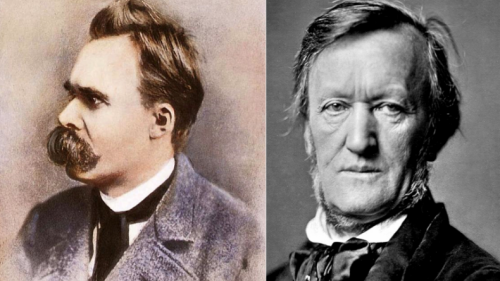
Ex: https://manticorepress.net
One of the great misfortunes of modern aesthetic theory is the fact that, ever since Nietzsche introduced the concepts of ‘Dionysian’ music and ‘Apollonian’ art in his popular essay Die Geburt der Tragödie aus dem Geiste der Musik (The Birth of Tragedy from the Spirit of Music) (1872), it has become customary among scholars and critics to consider these as quasi-normative elements of tragic drama. We may recall that Nietzsche, following Schopenhauer’s dictum that ideas are the universalia post rem;[1] music, however, gives the universalia ante rem,[2] and reality the universalia in re,[3] contended that the primordial music that is universal in expression is to be identified as ‘Dionysian’ while all artistic and dramatic representations of this universal music were merely ‘Apollonian’ forms of individuation, or of merely illusory phenomena:
through Dionysian music the individual phenomenon becomes richer and widens into a world-picture. It was a powerful victory of the non-Dionysian spirit when, in the development of the newer dithyramb, it alienated music from itself and forced it down to be the slave of appearances.[4]
But Nietzsche’s conclusion is in fact a false one, for it is only through Apollonian art that the universal can be appreciated. And the value of the latter for man is not through an insensate immersion into the realm of the Unconscious but rather through a Supra-Conscious apprehension of man’s first Fall from God and a desire to be reintegrated into the divine – as Schopenhauer himself had revealed in his discussion of tragedy in his masterwork Die Welt als Wille und Vorstellung (The World as Will and Imagination) (1818/59). Indeed, Schopenhauer’s theory of tragedy is, of all the philosophical theories of tragedy that have been propounded since antiquity, the one perhaps closest to the truth – which is hardly surprising considering the ‘pessimistic’ cast of his entire philosophical system. Schopenhauer’s view of the phenomenal world as the expression of a conflict-ridden Will to Life led him to consider tragedy as
the summit of poetical art, both on account of the greatness of its effect and the difficulty of its achievement. It is very significant for our whole system, and well worthy of observation, that the end of this highest poetical achievement is the representation of the terrible side of life. The unspeakable pain, the wail of humanity, the triumph of evil, the scornful mastery of chance, and the irretrievable fall of the just and innocent, is here presented to us; and in this lies a significant hint of the nature of the world and of existence.[5]
Therefore he concluded that
The true sense of tragedy is the deeper insight that it is not his own individual sins that the hero atones for, but original sin, the crime of existence itself.
The fall that is evoked in every tragic representation is, thus, also not a fall into morality, as the Hebrew reference to the ‘knowledge of good and evil’ in Genesis 3, and Nietzsche’s entire moral philosophy following it, would have us believe, but rather the original Fall (or ‘castration’) of the primordial macroanthrophomorphic form of Ouranos called Purusha (among the Indians) or Adam Kadmon (among the Hebrews) that generated the physical cosmos.[6]
Nietzsche indeed does not seem to be aware of the original significance of the Greek gods Dionysus and Apollo, nor of their relation to the representations of tragic drama. The essential cosmic role of Dionysus is that of the solar force of Ouranos/Helios that descends into the underworld to be revived in our universe as the sun, Apollo. This descent is among the ancient Indo-Europeans understood as a ‘castration’ of the phallus of Ouranos by Time/Chronos that is remedied by the force of Chronos’ representative in the nascent universe, Zeus, or Dionysus.[7] The solar force that Dionysus represents in the underworld is naturally rather uncontrolled in its enormous energy and is therefore represented in the Dionysian cult by the wild abandon typical of Bacchanalian rites. The aim of these rites however, as in all Indo-European religions, would have been a serious soteriological one rather than a frivolous, as in Nietzsche’s account. The followers of Dionysus were ‘enthusiasts’, ‘filled with the god’, and imitated in their ritual worship the cosmic progress of the god.
It is true that the Dionysian mysteries, much like the Indian Tantric ones, are not imbued with a sense of ‘sin’, but they are nevertheless focussed on the need to transfigure human passions into divine ones – even if it be through indulgence. The Dionysian satyr-plays are therefore a hedonistic, quasi-Tantric counterpart of the higher sacerdotal sacrifices among the Indo-Europeans, and especially of such sacrifices as the Agnicayana of the Indian brāhmans which seeks to restore the divine phallus of the castrated, or ‘fallen’ Purusha to its original cosmic force.[8]
However, it must be noted that these orgiastic celebrations of the energy that the solar force contains in the underworld did not in themselves constitute ‘tragedies’ in any form. Their ritual repesentations merely served, historically, as the source of dramatisations of tragic stories in Greece. For we know from Aristotle’s Poetics 1449ª that tragedy gradually evolved from the spoken prelude to the Dionysian dithyrambs. The dithyramb is a choral hymn sung and danced to Dionysus in a particularly ecstatic manner. It was comprised of male choruses (perhaps dressed as satyrs) that included men and boys.
Later, in the 6th c. B.C., when the dithyrambic prelude had developed in its scope, Thespis took the part of a character and Phrynicus introduced dialogues. Bacchylides’ surviving fragment of a dithyramb (from the 5th c. B.C.) is in the form of a dialogue between a solo singer and a chorus. Thus there arose responsorial dialogues between solo singers and a choir. Aeschylus in the 5th c. B.C. introduced a second actor too into the play. The chorus in a dithyramb sang narrations of actions, unlike the direct speeches of actors in a drama.[9]
Tragedy emerged in this way as a distinct artistic form mainly in ancient Greece. We know that Sanskrit dramas in India did not include tragedies. According to the 10th century treatise on drama called Dasharūpa by Dhanika, Bk.III, for instance, actions not suited for representation on the stage include murder, fights, revolts, eating, bathing, intercourse, etc. The death of a hero too can never be represented. If tragedy is not favoured by the ancient Indian drama, it is not attested in the ancient Near East either, though liturgical laments were composed at the end of the Third Dynasty of Ur (ca.2000 B.C.) marking the losses of the temples of the major Sumerian cities. In Egypt, from the 12th dynasty of the Middle Kingdom (ca.1990 B.C.), there is evidence of dramatic representations of religious subjects in temples. Of these, the murder of Osiris by Seth, his dismemberment, and resuscitation may be considered the Egyptian counterpart of the Dionysian mysteries.
It is important to note that Greek tragic drama, which relied on solo speeches and choral commentaries on the action, did not include much action and certainly no violent action, which was considered too horrific to be enacted onstage and needed a Messenger to describe it to the actors. The dramatic action of a tragedy does not therefore rely on action itself, and often even shuns it. The drama unfolds only through the medium of the speeches of the various characters and choruses. That is why the power of Euripides’ monodic declamations detailing the actions as well as the reactions of the protagonists must be acknowledged as the acme of Greek tragedy rather than its nadir, as Nietzsche considered it. In Euripides (5th c. B.C.) the action was focussed on the feelings generated by the dramatic action, and even the choral commentaries receded in importance before the actor’s monody, a style of dramatic declamation that was perfected by the Roman Stoic philosopher and dramatist Seneca the Younger (1st c. A.D.), who relied mainly on Euripides’ example in the creation of his tragedies.
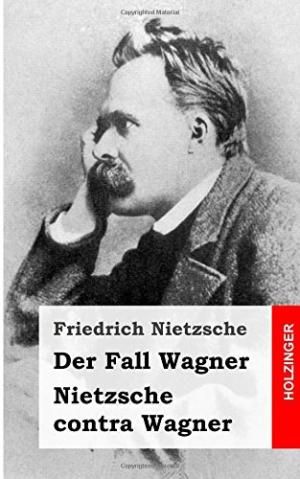 The cause of this misunderstanding of Euripidean tragedy may be traced back to Richard Wagner’s analyses of Greek drama in his Oper und Drama (Opera and Drama) (1851), Bk.III, Ch.3:[10]
The cause of this misunderstanding of Euripidean tragedy may be traced back to Richard Wagner’s analyses of Greek drama in his Oper und Drama (Opera and Drama) (1851), Bk.III, Ch.3:[10]
In didactic uprightness, which was at the same time artistic dishonesty, lies the cause of the rapid decline of Greek tragedy, in which the people soon perceived that there was no intention of influencing their instinctive feeling, but merely their absolute understanding. Euripides had to suffer under the scourge of the taunts of Aristophanes for his outright disclosure of this falsehood. The fact that poetic art, by dint of adopting a more and more didactic aim, should first pass into political rhetoric, and at last become literary prose was, although an extreme consequence, the one to be naturally expected from the evolution of the intellectual out of the emotional; or, as applied to art, from the evolution of speech from melody.
Nietzsche too rails against Euripides in The Birth of Tragedy, which was in fact a paean to the music-drama of Richard Wagner. He considers Euripides a ‘democratic’ artist who propagated ‘middle-class mediocrity’ by representing tragic protagonists as ordinary rather than superheroic figures. But, as Schopenhauer had already clarified in his discussion of tragedy, it is the imperfection of human nature itself that informs the highest tragedies:
the [tragic] misfortune may be brought about by the mere position of the dramatis personæ with regard to each other, through their relations; so that there is no need either for a tremendous error or an unheard-of accident, nor yet for a character whose wickedness reaches the limits of human possibility; but characters of ordinary morality, under circumstances such as often occur, are so situated with regard to each other that their position compels them, knowingly and with their eyes open, to do each other the greatest injury, without any one of them being entirely in the wrong. This last kind of tragedy seems to me far to surpass the other two, for it shows us the greatest misfortune, not as an exception, not as something occasioned by rare circumstances or monstrous characters, but as arising easily and of itself out of the actions and characters of men, indeed almost as essential to them, and thus brings it terribly near to us. In the other two kinds we may look on the prodigious fate and the horrible wickedness as terrible powers which certainly threaten us, but only from afar, which we may very well escape without taking refuge in renunciation. But in the last kind of tragedy we see that those powers which destroy happiness and life are such that their path to us also is open at every moment; we see the greatest sufferings brought about by entanglements that our fate might also partake of, and through actions that perhaps we also are capable of performing, and so could not complain of injustice; then shuddering we feel ourselves already in the midst of hell.[11]
Although the tragic condition of man is common to every individual human being, Schopenhauer’s discussion suggests that it is only noble men whose lives are truly tragic:
Thus we see in tragedies the noblest men, after long conflict and suffering, at last renounce the ends they have so keenly followed, and all the pleasures of life for ever, or else freely and joyfully surrender life itself … they all die purified by suffering, i.e., after the will to live which was formerly in them is dead.
Nietzsche’s sustained attack on Euripidean tragedy also does not seem to have rightly understood Aristophanes’ criticism of Euripides in his play The Frogs, since Aristophanes’ denunciation of the ‘effeminate’ and ‘democratic’ style of Euripides was indeed directed at a Dionysian form of drama that contrasted with the stark ‘manly’ art of Aeschylus. The erotic aspects of Euripides’ drama were regarded by Aristophanes as a manifestation of the unbridled licentiousness of Dionysiac rituals, which exploited the androgynous character of Dionysus himself. In other words, Nietzsche’s criticism of Euripidean tragedy is in direct opposition to his admiration of what he believed to be the ‘Dionysian’ aspects of the earliest dramatic representations.
In his attack on Euripides for his ‘demotion’ of the Greek chorus below the individual speeches of the characters of the drama Nietzsche further identifies Dionysian music with the Unconscious, or the ‘dream-world’:
This demotion in the position of the chorus …. is the first step towards the destruction of the chorus, whose phases in Euripides, Agathon and the New Comedy followed with breakneck speed one after the other. Optimistic dialectic, with its syllogistic whip, drove music out of tragedy, that is, it destroyed the essence of tragedy, which can be interpreted only as a manifestation and imaginary presentation of Dionysian states, as a perceptible symbolising of music, as the dream-world of a Dionysian intoxication…
In fact there is no indication that drunken intoxication – representing Dionysian inspiration – was the basis of tragic drama even though it may have formed part of the original ritual celebrations of the God from which dithyrambic drama arose.
Nietzsche considers Dionysian music as universal, and Apollonian art, pantomime, drama or opera, as individual, and expressive of the individual lives of the tragic personae:
In fact the relationship between music and drama is fundamentally the reverse [of the Apollonian] – the music is the essential idea of the word, and the drama is only a reflection of this idea, its isolated silhouette.
After this Apollonian presentation of the delusory ‘action’ of the drama, the Dionysian realm reasserts itself:
In the total action of the tragedy the Dionysian regains its superiority once more. Tragedy ends with a tone which never could resound from the realm of Apollonian art.
Nietzsche illustrates this section of his argument with the example of the music of Wagner’s Tristan, his fascination with which was clearly the ímpetus to the writing of The Birth of Tragedy.[12]
Primordial music is falsely interpreted by Nietzsche as being essentially rapturous, or ‘Dionysian’, and best expressed by instrumental, or ‘absolute’, music and then by choral song. Nietzsche is fundamentally averse to dramatic music – which is rather contradictory in one who claimed to be discussing the ‘birth of tragedy’. Indeed, tragedy did not arise from any Dionysian spirit of music, but rather tragic drama arose from the soteriological impulses of the Dionysiac mysteries. And tragic dramatic, or operatic, music itself arose from the sentiments incorporated within the texts of dramatic poems.
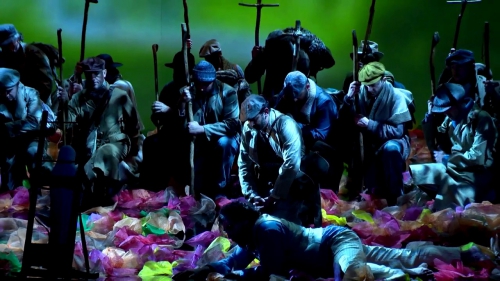
Nietzsche’s denunciation of critics too as being excessively intellectual and moralistic (‘Socratic’) and opposed to the authentically ‘aesthetic’ listener dodges the central issue of tragedy – that it is always a reminder of the imperfection of the tragic hero as well as of the viewer. This understanding is obtained through an ethical evaluation of the condition of human life in general, and not from an aesthetic judgement of the pleasure afforded to the ears or eyes by the spectacle on stage.
*
We should note here that Wagner’s conception of the genesis of the earliest forms of drama and music is rather more subtle than Nietzsche’s. We observe in Wagner’s writings that he identifies melody and music as the primal expression of what he calls ‘Feeling’, and words are said to have been later superimposed on these tunes in dramatic lyrics that gradually became increasingly intellectual and didactic in tone to the detriment of the expression of Feeling itself. In his Oper und Drama, Part III, Wagner detailed the manner in which the lyric developed from dance forms that impelled melodic creation:
We know, now, that the endless variety of Greek metre was produced by the inseparable and living co-operation of dance-gesture with articulate speech. (Ch.1)
And again,
The most remarkable feature of ancient lyric consists in its words and verse proceeding from tone and melody: like gestures of the body which became gradually shortened into the more measured and certain gestures of mimicry after having been, as movements of the dance, of merely general indication and only intelligible after many repetitions. (Ch.3)
Wagner understands the earliest representations of dramatic action too as those contained in folk-dances, as he declared in his essay, ‘La musique de l’avenir’ (1860):[13]
That ideal form of dance is in truth the dramatic action. It really bears precisely the same relation to the primitive dance as the symphony to the simple dance-tune. Even the primal folk-dance already expresses an action, for the most part the mutual wooing of a pair of lovers: this simple story – purely physical in its bearings – when ripened to an exposition of the inmost motives of the soul, becomes nothing other than the dramatic action.
However, the gradual intellectualisation of dramatic representation led to the decay of the emotional integrity of melodic invention:
The more the faculty of instinctive emotion became compressed into that of the arbitrary understanding and the more lyrical contents became accordingly changed from emotional to intellectual … the more evident became the removal from the literary poem of its original consistency with primitive articulate melody, which it now only continued to use, so to speak, as a mode of delivery and merely for the purpose of rendering its more callous, didactical contents as acceptable to the ancients habits of feeling as possible. (Ibid.)
While dance music was of principal importance in Greek drama, Wagner thinks that Christianity in particular sharply divorced soul from body and consequently killed the body of music (Oper und Drama, I, Ch.7). The Christian Church deprived music of its choreographic core so that music was forced to develop instead as harmony and counterpoint. In Italy, however, the Renaissance’s discovery of the operatic form of drama gave rise to an uncontrolled proliferation of melodic invention:
The downfall of this art in Italy and the contemporaneous rise of opera-melody among the Italians I can call nothing but a relapse into paganism.
Development of rhythmic melody upon the base of the other mediaeval Christian iinvention, harmony, occurred only in Germany, as notably in the works of Bach. The orchestra continued processes of polyphony that operatic song denied to the latter, for the orchestra in the opera was only a rhythmic harmonic accompaniment to song.
Wagner however does criticise even the chorales of the Reformation as lacking in rhythm, since they are dance music deprived of rhythm by ecclesiastical convention. Nietzsche, on the other hand, in his exaggerated Teutonism, confusedly identifies the choral music of the Reformation with the musical atmosphere of the Dionysiac rituals. He declares that the choral music of the Reformation recovered the
glorious, innerly healthy and age-old power which naturally only begins to stir into powerful motion at tremendous moments … Out of this abyss the German Reformation arose. In its choral music there rang out for the first time the future style of German music. Luther’s choral works sounded as profound, courageous, spiritual, as exuberantly good and tender as the first Dionysian call rising up out of the thickly growing bushes at the approach of spring.
But anyone familiar with German music of the Reformation will be aware of the musical naivety that marks the chorale hymns favoured by Luther. The rich choral writing of Bach was not derived from the melodies of the Lutheran chorales but from the general elaboration of harmony and counterpoint in the ‘Baroque’ musical forms encouraged by the Counter-Reformation.

The general preference of both Wagner and Nietzsche for polyphony as opposed to operatic monody and homophony reflects the particularly folkloric bent of German musical taste, since polyphony is originally a folk-musical tradition that grew out of communal round-songs. It was first introduced into serious church music in the Middle Ages and the Renaissance to the steadfast opposition of conservative popes like John XXII, who banished it from the liturgy in 1322 and lay bare its defects in his 1324 papal bull Docta sanctorum patrum (Teachings of the Holy Fathers):
Some [composers] break up their melodies with hockets or rob them of their virility with discant, three-voice music, and motets, with a dangerous element produced by certain parts sung on text in the vernacular; all these abuses have brought into disrepute the basic melodies of the Antiphonal and Gradual [the principal sections of Gregorian chant in the Mass]. These composers, knowing nothing of the true foundation upon which they must build, are ignorant of the church modes, incapable of distinguishing between them, and cause great confusion. The great number of notes in their compositions conceals from us the plainchant melody, with its simple well-regulated rises and falls that indicate the character of the church mode. These musicians run without pausing. They intoxicate the ear without satisfying it; they dramatize the text with gestures; and, instead of promoting devotion, they prevent it by creating a sensuous and indecent atmosphere. . . . Therefore, after consultation with these same brethren (the cardinals), we prohibit absolutely, for the future that anyone should do such things, or others of like nature, during the Divine Office or during the holy sacrifice of the Mass.[14]
The development of opera in Italy was due mainly to the rejection of polyphony and contrapuntal music in favor of a dramatic style of musical expression that declaimed the words of dramatic speeches and dialogues in recitatives that were almost sung but not fully melodic. What neither Wagner nor Nietzsche appreciated is the fact that this quasi-melodic recitative of the stile rapprensatitvo is in fact the dramatic foundation of the Italian opera of the Renaissance since it expresses all of the dramatic feelings directly, faithfully and forcefully. The ‘da capo’ arias that followed the recitatives for musical effect are not the bearers of the drama but merely the musical reflections and echoes of the dramatic recitatives.
In other words, the entire tragic action of drama rests on the narrations and emotional reactions of the characters to these narrations that are conveyed by the recitatives. The orchestra can always only be a vehicle of general feeling. While it can underscore what the verse depicts it cannot become a substitute for the latter. The first development of drama as mimetic dance and pantomime – such as the dithyramb in ancient Greece or folk-dance in most countries – is an improvement on solely orchestral music only insofar as it incorporates humans in its representations. Only theatrical plays with spoken dialogues and, more especially, operatic dramas with sung dialogues achieve the fullest expression of tragedy since they alone employ the incomparably expressive instrument of the human voice for the exposition of their tragic content. By contrast, a dramatic symphony can never approach the status of a tragic drama, even if it be interspersed, or concluded, with choral passages as, for example, in Berlioz’s Roméo et Juliette Symphony or Liszt’s Faust Symphony. For, the most sombre symphonic tone-poems cannot produce the full sympathy with the fate of a tragic human hero that alone leads to a recognition of the universal nature of the tragic condition of man and a subsequent desire for liberation from the phenomenal world. This recognition and this desire are indeed the essential constituents of tragedy, as they are of all true religion.
*
Since Italian church music was the basis of secular musical styles as well, we may briefly pause here to consider the nature of early Christian rituals. Among the Christians the sacraments themselves were considered to be ‘mysteries’, though the principal theological mysteries were those of the Holy Trinity, the Incarnation (or Virgin Conception of Jesus), and the Resurrection of Christ. Of these the incarnation itself is viewed as a divine fall for the purpose of the redemption of mankind, while the resurrection is the Christian counterpart of the ascent of Apollo from the Dionysiac solar force in the underworld. We must bear in mind that even the normal ‘mass’ of the Catholic Church is a dramatic sacrifical ritual since its climax is reached in the Eucharist, when the bread and wine are transformed into the body and blood of the Christ, the sacrificial Lamb of God.

This death and resurrection of Christ were naturally, from the earliest times, the subject of various forms of sacred music. The Gregorian chants that flourished in central and western Europe from the ninth century were monophonic songs that were used in the masses of the Roman Rite of the western Catholic Church. Gregorian chant was used also in the Passion music of the Holy Week services. Responsorial Passion settings in which the narration is chanted by a small group of the choir and refrains are sung by the whole choir were another form of passion music, as also was the Tenebrae music of the Holy Week. Alongside these Passions, oratorios involving narration and dialogues between characters in sacred dramas originated in the early 17th century in Italy. These oratorios were doubtless influenced by the ‘new music’ propagated by Giulio Caccini in his monodic and operatic works and led to the well-known Baroque oratorio-Passions of the seventeeth and eighteenth centuries.
One of the first musicians to discover the importance of adhering to the text of songs or dramatic poems rather than developing melodic permutations and combinations independent of the text as in polyphony was Giulio Caccini (1551-1618), who developed the first operas in Italy within the learned circle of the Florentine Academy founded by the Byzantine philosopher Gemistus Pletho (ca.1355-1454) and the Florentine banker and patron of the arts, Cosimo de’ Medici (1389-1464), under the supervision of the Neoplatonist philosopher, Marsilio Ficino (1433-99). Caccini made it clear in the Preface to his Le nuouve musiche (1602) that polyphony was totally unsuited to musical expression of poetry and that the Greek song was essentially a solo song such as was praised by Plato. He declared that he had learnt from the members of the Florentine Academy
not to value the kind of music that prevents the words from being well understood and thus spoils the sense and the form of the poetry. I refer to the kind of music that elongates a syllable here and shortens one there to accommodate the counterpoint, turning the poetry to shreds. Instead, they urged me to adhere to the manner [of composition] praised by Plato and the other philosophers who affirm that music is nothing but speech, rhythm, and harmony. According to them, the purpose of music is to penetrate the minds of others and create the marvelous effects that writers admire. In modern music, these effects could not be achieved through counterpoint. Particularly in solo singing accompanied by string instruments, not a word could be understood in the pervasive vocalises, whether on short or long syllables. Furthermore, in every type of music, the common people would applaud and shout for serious singers only [if they produced] such vocalises.[15]
Given the vulgar neglect of the words of the musical performances, Caccini declares that
In both madrigals and arias [all in monodic style] I have always tried to imitate the ideas of the words, seeking more or less expressive notes to follow the sentiments of the words. I concealed the art of counterpoint as much as I could, to make the words as graceful as possible.
Indeed, Wagner too understands the importance of poetic diction in lyrical composition:
It was only the musician’s yearning to gaze into the poet’s eye which even rendered posible this appearance of melody upon the surface of the harmonic waters. And it was only the poet’s verse which could sustain the melody upon the surface of those waters, for otherwise though giving forth a fugitive utterance, it would in default of sustenance have only fallen back again into ocean depths. (Oper und Drama, Part III, Ch.3).
Particularly significant is Wagner’s oblique commendation of what is best developed in Italian opera as the ‘stile rappresentativo’, or quasi-melodic recitatives:
There proceeds from the pure faculty of speech such a fulness of the most manifold rhythmic assertive power … that all these riches, together with that fructification of the purely musical power of man which springs from them and which is exemplified in every art-creation brought forth by the inner poetical impulse, can only be properly described as absolutely immeasurable. (Part III, Ch.2)
The orchestral accompaniments themselves are merely highlights of the verse-melody:
The vivifying central point of dramatic expression is the actor’s articulate verse-melody, towards which absolute orchestral melody is drawn as a warning preparation and away from which the ‘thought’ of the orchestral motive leads as a remembrance Part III, Ch.6)
The orchestra can also substitute for the ‘gestures’ which formed essential parts of the mimetic dance-forms of folk-dance as well as of drama:
That which is offered to sight in the constant presence and motion of that exponent of articulate verse-melody – the actor – is dramatic gesture, that which makes this clear to the sense of hearing being the orchestra, the original and necessary effectiveness of which is confined to its being the harmonic bearer of the verse-melody … from the orchestra therefore, as from music’s richly emotional and maternal bosom, the unifying bond of expression proceeds. (Ibid.)
Wagner believed that the ultimate aim of musical development was the invention of a true melodic form that would, now that it has been filtered through the understanding, revive the original Feeling at the basis of all music in a much more faithful and concentrated form:
In the course of proceeding from articulate to tonal speech we arrived at the horizontal upper surface of harmony, playing upon the mirror of which the word-phrase of the poet was reflected back again as musical melody. Now … to the means of sinking into the fullest depths of that maternal element – of sinking therein that poetic intention which is as the productive agency, besides doing this so that every atom contained in the awful chaos of those depths shall be determined into a conscious and individual announcement though in no narrowing but in an ever-widening compass. Now, in short, for the artistic progress consisting of broadening out a definite and conscious intention into an emotional faculty which, notwithstanding that it is immeasurable, shall be of certain and precise manifestation.
This advanced form of melody will be a return of feeling developed through the intellect back to the primordial font of Feeling:
Real melody … stands in relation to the original maternal articulate melody as an absolute contrast, and one which … we may refer to as a progress from understanding to feeling, or as one out of speech to melody. This is in contradistinction to the former change from feeling to understanding and melody to speech. (Part III, Ch.3)
The final aim of Wagner’s innovation is indeed melody – not by itself, as in Italian operatic arias, but as ‘symphonic melody’. While this symphonic dimension of his melodies may be considered to be merely an orchestral addition to the melodic content of Italian arias, we cannot deny the extaordinary affective power of Wagner’s melodies as a successful fulfilment of his own musical aims.

It is also worth noting that, unlike Nietzsche, Wagner attributes the decay of tragedy not only to the intellectualisation of dramatic prosody but also to the social circumstances in which the high taste of the nobility was replaced by the commercial impresario who only seeks profits by propagating the puerile taste of a vulgar public. He reminds his readers that earlier works of art were brought to life by the nobility who formed the public for refined forms of art:
the excellent and specially refined productions of our art already existing … the incentive to the creation of such work proceeded from the taste of those before whom it had to be performed. What we find is that this public of higher feeling and taste in its condition of most active and definite sympathy with art-production first greets our view in the period of the Renaissance … passing its life gaily in palaces or bravely in war it had exercised both eye and ear in perception of the graceful, the beautiful and even of the characteristic and energetic, and it was at its command that the works of art arose which distinguish that period as the most fortunate for art since the decay of that of Greece. (Ch.VII)
Nowadays, however,
it is the man who pays the artist for that in respect of which nobility formerly rewarded him who is the ruler of public art-taste – the man who orders the art-work for his money – the man who wants his own favorite tune varied anew for novelty – but no new theme. This ruler and orderer is the Philistine, and this Philistine is … the most dastardly outcome of our whole civilisation … It is his will to be dastardly and vulgar, and art must accommodate itself thereto. Let us hasten to get him out of our sight.
In his essay, ‘Das Judenthum in der Musik’ (Jewry in Music) (1850) Wagner points particularly to the role that the Jews have played in the commercialisation of music:
What the heroes of the arts, with untold strain consuming lief and life, have wrested from the art-fiend of two millennia of misery, to-day the Jew converts into an artbazaar.
Wagner, on the other hand, sought to restore ‘a system in which the relation of art to public life such as once obtained in Athens should be re-established on an if possible still nobler and at any rate more durable footing’. This was the purpose underlying the treatise he published in 1849 called Kunst und Revolution (Art and Revolution).
*
If we turn back to Nietzsche now, we note that the Wagnerian focus on the maternal font of ‘Feeling’ is turned by Nietzsche into the realm of the ‘Dionysian’ spirit. Nietzsche follows Wagner in considering melody as the original element of musical expression:
The melody is thus the primary and universal fact, for which reason it can in itself undergo many objectifications, in several texts. It is also far more important and more essential in the naive evaluations of the people. Melody gives birth to poetry from itself, over and over again. (Die Geburt der Tragödie)
However, while Wagner sought to achieve a rearticulated melody that surpassed melodic verse, Nietzsche in Der Fall Wagner (The Case of Wagner) (1888) finally shrank back in horror from beautiful melody:
let us slander melody! Nothing is more dangerous than a beautiful melody!
Nothing is more certain to ruin taste![16]
The reason for his fear of Wagner’s melodic achievement is that it might lead to the collapse of music under the burden of expressiveness – as indeed happened with the appearance of the atonal post-Romantic music of Schoenberg:
Richard Wagner wanted another kind of movement, — he overthrew the physiological first principle of all music before his time. It was no longer a matter of walking or dancing, — we must swim, we must hover. . . . This perhaps decides the whole matter. “Unending melody” really wants to break all the symmetry of time and strength; it actually scorns these things — Its wealth of invention resides precisely in what to an older ear sounds like rhythmic paradox and abuse. From the imitation or the prevalence of such a taste there would arise a danger for music — so great that we can imagine none greater — the complete degeneration of the feeling for rhythm, chaos in the place of rhythm. . . . The danger reaches its climax when such music cleaves ever more closely to naturalistic play-acting and pantomime, which governed by no laws of form, aim at effect and nothing more…. Expressiveness at all costs and music a servant, a slave to attitudes — this is the end. . . .
Nietzsche’s insistence on rhythm is related to his preference for dance music, which he understands in the spirit of Dionysian or Bacchanalian choreography. However, since he does not intuit the religious character of Dionysian ritual as well as of the original Greek tragedies, we notice that Nietzsche’s understanding of the dance-forms of the Dionysiac mysteries is also rather deficient. While Wagner focussed on ‘gesture’ in early drama, and viewed the dance as the expression of simple dramatic actions, Nietzsche’s wild appeals to dance are more suggestive of modern ‘abstract’ dance. Thus it has been rightly maintained by Georges Liébert that Nietzsche spoke in his writings on tragedy and operatic music not about opera at all but about the ballet of composers like Ravel and Stravinsky.[17] In ‘Versuch einer Selbstkritik’ (An Attempt at Self-Criticism) (1886) – quoting from his own Also sprach Zarathustra (1883-85) and comically identifying Dionysus with Zarathustra – Nietzsche even exhorts the reader to
Lift up your hearts, my brothers, high, higher! And for my sake don’t forget your legs as well! Raise up your legs, you fine dancers, and better yet, stand on your heads!
Any writer who imagines the Iranian religious reformer Zoroaster as a ‘Dionysian’ priest proclaiming the above message to his listeners can hardly be considered an authority on either ancient religion or drama.

The real aim of Nietzsche’s parody of Zoroastrianism, as well as of Dionysiac religion, is of course his urge to remove moralism and all discussion of ‘good and evil’ from public discourse. To this end Wagner’s rejection of intellectualism in Euripides is transformed by Nietzsche into a single-minded attack on ‘moralism’.and ‘morality’.itself. But tragedy, as we have noted above, is in the nature of things moral. And Sophocles, whom Nietzsche admires above Euripides, was not more mindless of the gods than the latter. Even a brief glance at the final Chorus in Sophocles’ ‘Antigone’ will make this clear:
Of happiness the chiefest part Is a wise heart: And to defraud the gods in aught with peril’s fraught. Swelling words of high-flown might mightily the gods do smite. Chastisement for errors past Wisdom brings to age at last.[18]
The ulterior motive behind Nietzsche’s rejection of moralism is obviously his larger goal of eliminating Christianity from Europe,
Christianity as the most excessively thorough elaboration of a moralistic theme which humanity up to this point has had available to listen to. To tell the truth, there is nothing which stands in greater opposition to the purely aesthetic interpretation and justification of the world, as it is taught in this book, than Christian doctrine, which is and wishes to be merely moralistic and which, with its absolute standards, beginning, for example, with its truthfulness of God, relegates art, every art, to the realm of lies — in other words, which denies art, condemns it, and passes sentence on it.
*
Nietzsche indeed ignores the fact that it was the Church that created the first examples of modern tragic music, based on the ‘mysteries’ of the Christ story, in the West during the Middle Ages and the Renaissance. The Florentine opera that flourished during the Renaissance was also closer to the original Greek drama that both Wagner and Nietzsche wished to emulate than the German music of the time insofar as the focus on the musical quality of poetic declamation was perfected only in Renaissance Italy and in the Italian operatic tradition that followed from it. The monodic music that was championed by the first Italian operatic composers meant the rejection of polyphonic distractions for a concentrated attention on the texts of the dramas. For the intellectual understanding of the essentially tragic condition of man the text of the play is indeed indispensable, since it is the text of a tragic drama that – through its redevelopment of archetypal myths and histories – serves to remind us of the essential distress of the human condition. And a dramatic focus on the tragic condition of the hero as expressed in the text can be achieved only through poetic declamation, or its heightened musical counterparts – quasi-melodic recitatives and monodies.
Thus, while the maintenance of a more general mood of mourning, and of longing for wholeness, can be accomplished by both instrumental and vocal means, the painful conflicts of the drama can be expressed fully only by vocal recitatives and, occasionally, also by choral refrains. Indeed, it may even be said that only the vocal declamations of actors in a tragedy have the capacity of recalling to the listener the universal dimension of tragedy whereas purely instrumental, or ‘absolute’, music can arouse in him a heightened consciousness of only his own personal losses.

Tragedy, also, has not declined because of its moral content but through the democratic pandering to the vulgar tastes of the audiences. Opera seria, or tragic opera, which developed from the model of the Greek tragedies, did not decline through the Italian delight in melodious arias but through the lack of interest – among an increasingly vulgar public – in the intensely moving recititatives that constituted the declamatory core of these tragic music dramas. We see also from Nietzsche’s later criticisms of Wagner’s music that, despite the wondrous success of Wagner’s symphonic melodic elaboration of the Italian arias, the musical development that he represented was too easily capable of degeneration in the hands of lesser musicians than himself.
The tragic effects of opera seria are produced by reminders, necessarily ethical, and necessarily vocal, of the tragic condition of humanity in general. The latter is not located vaguely in a subconscious Dionysian spirit, as uncontrolled energy, but in the subjective perception of this condition by the individual viewer who sympathises with the tragic protagonists through what Aristotle called ‘pity and fear’.
The essential feeling of all tragic drama is indeed one of loss. This is not a sense of personal loss, but an awakening of the awareness of the first Fall of man, from God – as Schopenhauer had perceptively pointed out. And this fatal Fall can only be overcome through an intellectual as well as emotional apperception of it and a concomitant longing to regain the divine. These feelings are most effectively produced in the realm of art by tragic drama and opera. Whatever the course of Dionysiac or Bacchanalian rituals may have been, the tragic dramas and operas that evolved from them are thus necessarily infused with moral resonances. All tragedy – ancient Greek as well as modern – is in this sense fundamentally moral because it is fundamentally religious.
[1] universals after the fact
[2] universals before the fact
[3] universals in the fact
[4] The Birth of Tragedy out of the Spirit of Music, tr. Ian Johnston.
[5] Welt als Wille und Vorstellung (1818-59), III, 51, tr. K.B. Haldane and J. Kemp..
[6] For a full discussion of the Purusha mythology, see A. Jacob, Ātman: A Reconstruction of the Solar Cosmology of the Indo-Europeans, Hildesheim: Georg Olms, 2005 and Brahman: A Study of the Solar Rituals of the Indo-Europeans, Hildesheim: Georg Olms, 2012.
[7] Dionysus, according to Nonnos, is the ‘second Zeus’ (see Nonnos, Dionysiaca, 10, 298). The ‘first Zeus’ is Zeus Aitherios, who is identical to Chronos (see Cicero, De Natura Deorum, III,21).
[8] See A. Jacob, ‘Reviving Adam: The Sacrificial Rituals of the Indo-Āryans and the Early Christians’, Manticore Press.
[9] See Plato, Laws, III, 700b-e, Republic, III, 394b-c.
[10] All citations from Richard Wagner’s works are from Richard Wagner’s Prose Works, tr. W.A. Ellis.
[11] A. Schopenhauer, ibid.
[12] In fact, Nietzsche himself was later so embarrassed of this essay that he wrote an appendix to it called ‘Versuch einer Selbstkritik’ (An Attempt at Self-Criticism) (1886).
[13] The German translation of this essay was published in 1861as Zukunftsmusik.
[14] See Corpus iuris canonici, 1879, Vol. I, pp. 1256–1257.
[15] ‘Extracts from Introduction to Le nuove musice (1602)’, tr. Zachariah Victor.
[16] ‘The Case of Wagner’, tr. A.M. Ludovici.
[17] See G. Liébert, Nietzsche and Music, (tr. D. Pellauer and G. Parkes), Chicago: The University of Chicago Press, p.82.
[18] Antigone, tr. F. Storr.
16:53 Publié dans Musique, Musique, Philosophie, Révolution conservatrice | Lien permanent | Commentaires (0) | Tags : friedrich nietzsche, richard wagner, musique, philosophie, tragédie, allemagne, révolution conservatrice, opéra, 19ème siècle |  |
|  del.icio.us |
del.icio.us |  |
|  Digg |
Digg | ![]() Facebook
Facebook
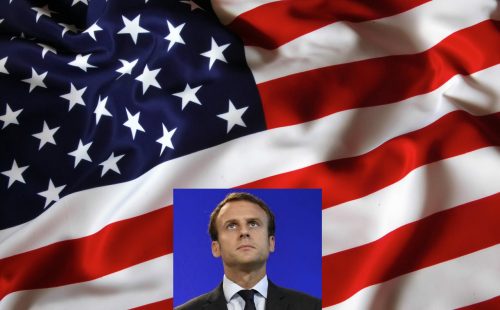
par Jean Paul Baquiast
Ex: http://europesolidaire.eu
Une explication serait que la décroissance en France est exigée par les intérêts financiers américains qui ont payé son élection. Cela rendra impossible un retour au modèle français ancien d'investissements publics, d'abord financés par la dette puis rentabilisés ensuite grâce aux activités nouvelles et revenus en découlant. C'est en fait grosso modo le modèle russe et chinois. Horresco referens.
La France actuelle ne peut le faire, corsetée qu'elle est par les contraintes de l'Union Européenne, elles-mêmes imposées par les intérêts financiers américains. Mais un Macron jouant la France et non Wall Street aurait pu imposer des dérogations aux réglementations européennes, en menaçant l'Union d'un Francexit. Ceci aurait été jouable aux yeux de l'opinion s'il avait exposé à celle-ci qu'en échange de nouveaux sacrifices momentanés destinés à financer des investissements publics productifs, elle aurait vite bénéficié d'une nouvelle croissance auto-financée.
Soit l'exemple des énergies renouvelables ou de l'espace, dans lesquels la France dispose de ressources potentielles non employées, et dans lesquels Macron ne mettra pas un euro, comme de bien entendu. Ses sponsors américains ne le permettraient pas. Pour eux, mieux vaut acheter du gaz de schiste d'outre-atlantique et financer Space X. Macron aurait pu et du, dans ces domaines comme dans d'autres sur lesquels il est inutile de s'attarder ici, établir d'ambitieux programmes d'investissements publics et privés. Il ne l'a pas fait et ne le fera jamais.
Malheureusement en France aucune voix parmi l'opposition au pouvoir actuel ne semble capable, ou désireuse, de tenir ce discours et proposer des alternatives. Si puissante sans doute est, même à gauche, à l'extrême-gauche ou au FN, la puissance de l'idéologie américano-européenne.
https://www.rt.com/op-edge/406124-rise-fall-emmanuel-macr...
15:08 Publié dans Actualité, Affaires européennes | Lien permanent | Commentaires (0) | Tags : états-unis, emmanuel macron, france, europe, affaires européennes, économie, wall street |  |
|  del.icio.us |
del.icio.us |  |
|  Digg |
Digg | ![]() Facebook
Facebook


14:56 Publié dans Actualité, Economie | Lien permanent | Commentaires (0) | Tags : actualité, économie, crise, crise économique |  |
|  del.icio.us |
del.icio.us |  |
|  Digg |
Digg | ![]() Facebook
Facebook

par Jean Pierinot
Ex: http://metamag.fr
Tourné en 1976 sur les grands bancs de terre-Neuve et à Saint-Pierre et Miquelon, le Crabe Tambour, réalisé par Pierre Schoendorffer, reste un film à part dans la filmographie de Jean Rochefort. Jean Rochefort y incarne un officier de Marine, atteint d’un cancer du poumon, qui se voit confier un ultime commandement, celui de l’escorteur d’escadre Jauré guiberry dont c’est également la dernière mission avant son désarmement. Il est chargé de l’assistance et de la surveillance de la grande pêche sur les bancs de Terre-Neuve. Le commandant mène aussi une quête plus intime, celle de revoir une dernière fois un homme qu’il avait connu et auquel il avait donné sa parole, qu’il n’avait finalement pas tenue. Il est inspiré par des épisodes de la vie du lieutenant de vaisseau Pierre Guillaume.
Marin et soldat d’exception, né le 11 août 1925 à Saint-Servan, le lieutenant de vaisseau Pierre Guillaume est mort le 3 décembre 2002 au terme d’une existence intense et mouvementée. Élève de l’École navale en 1945, envoyé à trois reprises en Indochine (1945 ; 1948-1950 ; 1953-1955), il participe aux opérations contre le Vietminh en Cochinchine et à l’évacuation des catholiques du Tonkin en juillet 1954. Sous-marinier sur la Créole et le Laubie, une grande carrière dans cette arme aurait été possible mais il est un « soldat des Marches de l’Empire ». À l’issue de son troisième séjour en Indochine, il rentre en France en solitaire à bord d’une jonque, le Manohara, mais il s’échoue et devient l’hôte forcé d’une tribu somalienne. En 1957, fait exceptionnel, il change d’armée, quitte à sa demande la marine pour l’infanterie coloniale et prend, en Algérie, la tête du commando de parachutistes coloniaux à la tête duquel son frère cadet Jean-Marie a été tué peu auparavant. Après un passage sur l’Agenais en 1958-1960, il est nommé à l’état-major interarmées du commandant en chef des armées françaises en Algérie. Pendant le putsch, il est adjoint marine du général Challe. Arrêté et condamné à quatre ans d’emprisonnement avec sursis, il repart alors en Algérie pour devenir l’adjoint du général Jouhaud passé dans la clandestinité. Arrêté en mars 1962, condamné à huit ans de détention, il en purge quatre. À sa sortie de prison, il occupe diverses fonctions dans des sociétés d’affrètement maritime et d’armement de bateaux. En 1978, il arme le bâtiment qui permet à Bob Denard et son équipe de mercenaires de débarquer aux Comores. Il se consacre ensuite au renflouement de bateaux. Entre 1981 et 1987, il se rend en Arabie Saoudite, où il s’occupe des systèmes de défense maritime.

Le film comporte d’authentiques repères historiques (la guerre d’Indochine, le putsch des généraux, la chute de Saïgon en 1975). L’action, qui se déroule essentiellement au sein de la Marine nationale, restitue bien les usages ou règlements en vigueur. L’ambiance sur la passerelle, notamment, est très réaliste. Les ordres sont réglementaires et quelques phrases sont criantes de vérité : trop de monde sur cette passerelle ou le commandant n’aime pas que l’on parle sur sa passerelle en dehors du service. Quant au débarquement du commandant (Le commandant quitte le bord), cette cérémonie est tout à fait conforme au cérémonial militaire avec la garde d’honneur qui présente les armes et les honneurs rendus au sifflet par le gabier siffleur.
19:57 Publié dans Cinéma, Film, Hommages | Lien permanent | Commentaires (0) | Tags : cinéma, crabe tambour, jean rochefort, film, 7ème art, france, hommage |  |
|  del.icio.us |
del.icio.us |  |
|  Digg |
Digg | ![]() Facebook
Facebook
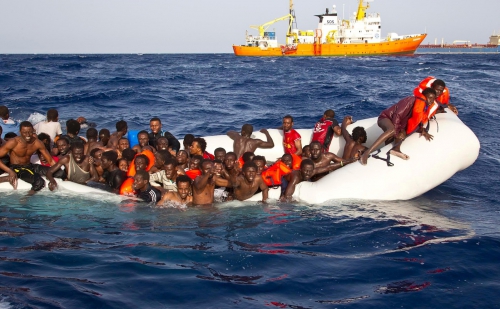
‘Afrika onderontwikkeld dankzij grootschalige corruptie’
‘De échte vluchtelingen blijven achter en komen niet naar Europa’
‘Mythe dat de EU Afrikaanse mannen ongelimiteerde welvaart aanbiedt, moet worden gestopt’
Professor Ana Bono, erkend Afrika expert en samenwerkend met diverse universiteiten en instituten, inclusief het Italiaanse ministerie van Binnenlandse Zaken, tevens auteur van meer dan 1600 artikelen en boeken over continent, heeft in haar thuisland Italië opzien gebaard door het door de media, politiek en asielindustrie verspreide beeld van ‘arme Afrikanen die op de vlucht zijn voor oorlog en honger’ compleet van tafel te vegen. Volgens haar zijn er in Afrika meer dan voldoende middelen om de verwachte enorme bevolkingsgroei op te vangen, maar is het continent nog steeds arm en onderontwikkeld door grootschalige corruptie.
De enorme migrantenstroom uit Afrika kwam op gang nadat Amerika en de NAVO besloten om het stabiele en welvarende Libië naar het stenen tijdperk te bombarderen, waardoor een belangrijke buffer, Muammar Gadaffi, van het veld werd geruimd, zo stelt ook Bono. In Libië werkten zo’n 1 miljoen gastarbeiders, die na de instorting van het land meestal niet naar huis, maar naar Europa gingen.
Grootschalige corruptie houdt ontwikkeling Afrika tegen
De professor zegt dat de enorme bevolkingsgroei in Afrika ‘niet noodzakelijk onhoudbaar’ is. Het continent heeft een schat aan natuurlijke hulpbronnen, maar die worden door alle Afrikaanse overheden heel slecht beheerd, waardoor landen die rijk aan olie zijn toch geraffineerde producten zoals benzine moeten importeren. De grootste reden voor de armoede en puinhoop in Afrika is volgens haar de wijd verspreide corruptie; een klein clubje aan de top behoudt alle rijkdom voor zichzelf, en laat de bevolking stikken.
Ergste land in dit opzicht is Nigeria, waar ‘corruptie een manier van leven’ is. Het land is de grootste olie exporteur van Afrika en heeft de tweede economie van het continent, en bezit een potentieel enorme welvaart die voor het grijpen ligt.
Migranten zijn niet arm en vluchten niet voor oorlog
Voor bijna alle Afrikaanse migranten die naar Italië worden gehaald geldt ‘dat er in bijna al hun thuislanden, zoals Nigeria, Ghana, Kameroen, Senegal, Ivoorkust, Sierra Leone, Mali, etc. geen oorlog is. Toch zijn de meesten afkomstig uit deze landen. De échte vluchtelingen, die vertrekken vanwege oorlogen, komen niet naar Italië. De cijfers bewijzen dit. Het andere complete fake verhaaltje is dat deze jonge mannen van tussen de 18 en 35 arm zijn. Dat zijn ze absoluut niet.’
Op de vraag van de interviewer hoe ze zoiets kan zeggen, antwoordt ze: ‘Hoe definieer je de Afrikaanse standaard van ‘arm’ als je 5000 tot 8000 dollar of euro hebt om naar Italië te gaan (de gemiddelde prijs die mensensmokkelaars per persoon vragen)? Wat deze jonge mannen in werkelijkheid doen is een investering, doorgaans met geld van hun families, om een beter leven in West Europa te beginnen. Zo simpel is het.’
Sociale zekerheid Italiaanse burgers wordt afgebroken voor migranten
‘Het probleem is dat ze weliswaar het makkelijkst te bereiken, maar verkeerde land kiezen, Italië, dat kampt met ernstige jeugdwerkloosheid die voorlopig niet minder zal worden. Jaarlijks verlaten zo’n 100.000 Italianen in dezelfde leeftijdsgroep van 18 tot 35 het land omdat ze er geen fatsoenlijke baan kunnen vinden. En dan krijg je ieder jaar nog véél meer jonge Afrikanen binnen die op zoek zijn naar werk?’
‘Al die mensen moeten worden gevoed, gekleed, gehuisvest, en jarenlang gratis gezondheidszorg en rechterlijke steun worden gegeven. Dat betekent dat de Italiaanse sociale zekerheid miljard euro’s moet uitgeven, wat zal worden weggehaald bij de Italiaanse burgers en legale inwoners.’
Asielindustrie verdient miljarden
Uitzettingsbevelen van afgewezen asielzoekers hebben volgens professor Bono geen enkele zin, zijn ineffectief ‘en slaan feitelijk nergens op’, omdat die mensen eerst vaak jarenlang alles hebben gekregen, en dan nu ineens de boodschap krijgen dat ze weg moeten. ‘Maar waarheen? Is het zo moeilijk voor te stellen dat die mensen gewoon in Italië (/ Europa) blijven, ondanks de belachelijke waarschuwing die ze krijgen om te vertrekken?’ De meesten van hen zullen dus een andere –vaak illegale- bron van inkomsten zoeken.
Waarom gaat de massa import van zulke enorme aantallen Afrikaanse mannen dan nog steeds door, ondanks het feit dat de gemiddelde Italiaan inmiddels heel goed weet dat het ‘arme vluchtelingen’ verhaaltje één groot bedrog is? Bono wijst erop dat de asielindustrie* er miljarden aan verdient (*waaronder zogenaamde ‘hulp’organisaties, waar argelozen Europeanen nog giften aan geven ook!). Alleen al Italië geeft dit jaar meer dan € 4,5 miljard aan deze nieuwe industrie uit.
‘Afrikanen hebben hier geen toekomst’
De enige manier om de migrantentsunami te stoppen is door te beginnen aan Afrikanen duidelijk te maken dat Europa niet het continent vol ongelimiteerde welvaart is voor iedereen die het maar wil hebben. ‘Zolang jonge Afrikanen in hun hoofd vasthouden aan deze mythe, is er geen hoop dat we kunnen voorkomen dat ze hier komen en vervolgens ervaren dat ze geen baan krijgen, zonder hun gezinnen zitten, en zonder dat ze iets weten over onze manier van leven. Kort gezegd: dat ze hier geen toekomst hebben.’x
Xander
(1) GEFIRA via Zero Hedge
(2) Afbeelding: Getty Images (vrij voor redactioneel en niet-commercieel gebruik)
19:44 Publié dans Actualité, Affaires européennes | Lien permanent | Commentaires (0) | Tags : réfugiés, actualité, europe, italie, affaires européennes, méditerranée, politique internationale, lampedusa |  |
|  del.icio.us |
del.icio.us |  |
|  Digg |
Digg | ![]() Facebook
Facebook

Le 30 novembre 1934, un jeune député madrilène déclarait devant le Parlement espagnol : « […] pour beaucoup, ce problème catalan est un simple artifice et pour d’autres ce n’est qu’une affaire de cupidité ; or ces deux attitudes sont parfaitement injustes et maladroites. La Catalogne, c’est beaucoup de choses à la fois, et beaucoup plus profondes qu’un simple peuple de marchands. La Catalogne, c’est un peuple profondément sentimental ; le problème de la Catalogne ce n’est pas un problème d’importation et d’exportation ; c’est un problème — très difficile —, un problème de sentiments ». Jordi Pujol, président de la Généralité de Catalogne pendant près d’un quart de siècle, dira un jour de l’auteur de ces propos qu’il est « un de ceux qui ont le mieux compris la Catalogne, et dans des circonstances très difficiles » (Tiempo, 22 décembre 1997, nº 816). Au grand scandale des gardiens de l’historiquement correct, il se référait alors à l’avocat fondateur de la Phalange Espagnole, José Antonio Primo de Rivera.
La question catalane est, aujourd’hui comme hier, avant tout historico-affective, ensuite politique, et enfin, économique. Depuis 1980 et surtout depuis 2010, chaque année, le 11 septembre, d’énormes foules se mobilisent en Catalogne pour se manifester en faveur de l’indépendance. La Diada Nacional de Catalunya, c’est la fête nationale commémorant la chute de Barcelone devant les troupes de Philippe V, petit-fils de Louis XIV, le 11 septembre 1714. En quarante ans, depuis la Transition démocratique, le problème catalan n’a pas cessé de s’aggraver. Près de 40 % de l’électorat catalan ne se satisfait plus aujourd’hui du Statut d’autonomie, qui avait pourtant été adopté en deux temps, d’abord en 1979, puis, à nouveau, avec des compétences accrues, lors du référendum de 2006 (73,9 % de voix favorables). La majorité de la classe politique catalane actuelle (union circonstancielle d’indépendantistes de droite et d’extrême gauche) considère l’Autonomie dont elle a bénéficié jusqu’ici comme très insuffisante. Non seulement le régionalisme, mais le fédéralisme sur le modèle de la Suisse, de l’Allemagne ou des États-Unis, sont pour elle des voies mortes et enterrées. Elle ne souhaite plus désormais qu’une chose, franchir le pas de l’indépendance.
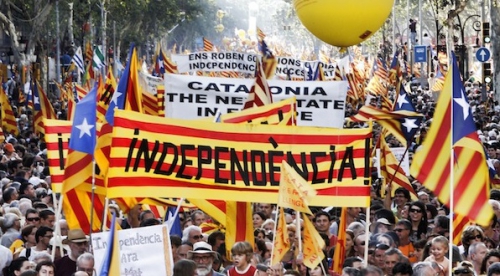
Le référendum du 1er octobre 2017, organisé par les autorités catalanes en violation de la Constitution, loi fondamentale de la démocratie espagnole, a fait la démonstration de cette volonté sécessionniste. Une parodie de référendum, ouvertement anticonstitutionnelle, qui a été largement improvisée. Il n’y avait pas de listes électorales, des urnes étaient déposées dans la rue et les électeurs pouvaient voter plusieurs fois sans être vraiment contrôlés. Selon les autorités de la Generalitat, 90 % des votes ont été favorables à l’indépendance. La participation aurait été, selon les mêmes sources, de 42 % (2 200 000 personnes sur 5 300 000 appelées à voter). Si l’on retire les 10 % de non, c’est un peu moins de 38 à 40 % de l’électorat qui se serait ainsi prononcé en faveur de l’indépendance. Mais quoi qu’il en soit, après des décennies marquées à la fois par la pusillanimité du gouvernement central de Madrid et la pugnacité croissante des indépendantistes catalans, la sécession ne semble plus une hypothèse invraisemblable.
Comme tous les nationalismes, le nationalisme catalan puise sa force autant dans la conscience et la volonté d’être une communauté de destin que dans l’existence d’une langue, d’un territoire et d’un particularisme historico-culturel. Mais cela dit, l’histoire millénaire de la Catalogne et de sa langue est une clef de compréhension de son identité.
La province romaine d’Hispanie citérieure (moitié nord de la Péninsule ibérique) a été fondée en 195 av. J.-C. Elle était administrée à partir de Tarraco (la Tarragone actuelle), ville où les Wisigoths s’étaient installés en 410. À la fin du VIIIe siècle, après l’invasion musulmane, l’empire carolingien a fixé sa frontière politico-militaire dans la partie orientale des Pyrénées. C’était la fameuse Marche hispanique, organisée en comtés, avec notamment les comtés catalans de Pallars, Ribagorce, Urgell, Cerdagne, Barcelone, Gérone, Osona, Empúries et Roussillon. Au cours des siècles suivants, les comtes de Barcelone ont développé leur territoire par une série d’alliances matrimoniales, d’héritages et de conquêtes. En 1150, le comte Raimond-Berenger IV se marie avec Pétronille d’Aragon. Leur fils, Alphonse II, devient roi d’Aragon et comte de Barcelone. Une autre union dynastique a des conséquences capitales pour l’Espagne : le mariage de Ferdinand d’Aragon et d’Isabelle la Catholique, reine de Castille, en 1469, qui permet d’unifier le pays bien que chaque royaume conserve ses institutions et ses lois propres. Au XVIe siècle, la Catalogne a un vice-roi, l’archevêque de Tarragone, nommé par Charles Ier (Charles-Quint). Pour la première fois, le territoire est gouverné comme une région unifiée.
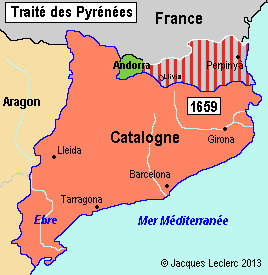 Au cours de la guerre de Trente Ans (1618-1648), les Français s’emparent du Roussillon. Pour faire face aux besoins de la guerre, le comte-duc d’Olivares, Premier ministre de Philippe IV, décide d’augmenter les impôts et de procéder à une levée de soldats catalans. Ces mesures soulèvent immédiatement l’hostilité des paysans et d’une partie des autorités catalanes. Les évêques de Vic et de Barcelone rejoignent leur capitale à la tête de 3000 paysans révoltés. Le 16 janvier 1641, le président de la Généralité, Pau Claris, proclame la République indépendante de Catalogne sous la protection du roi de France. Mais il hésite, se ravise, et le 23 du même mois soumet complètement la Catalogne à Louis XIII. Philippe IV la récupérera, mais sans le Roussillon, dix ans plus tard, lors du traité des Pyrénées (1659).
Au cours de la guerre de Trente Ans (1618-1648), les Français s’emparent du Roussillon. Pour faire face aux besoins de la guerre, le comte-duc d’Olivares, Premier ministre de Philippe IV, décide d’augmenter les impôts et de procéder à une levée de soldats catalans. Ces mesures soulèvent immédiatement l’hostilité des paysans et d’une partie des autorités catalanes. Les évêques de Vic et de Barcelone rejoignent leur capitale à la tête de 3000 paysans révoltés. Le 16 janvier 1641, le président de la Généralité, Pau Claris, proclame la République indépendante de Catalogne sous la protection du roi de France. Mais il hésite, se ravise, et le 23 du même mois soumet complètement la Catalogne à Louis XIII. Philippe IV la récupérera, mais sans le Roussillon, dix ans plus tard, lors du traité des Pyrénées (1659).
 À la mort de Charles II, dit l’ensorcelé, dernier des Habsbourg, une guerre de succession éclate entre deux prétendants : Philippe V, de la maison des Bourbons (petit fils de Louis XIV) et l’Archiduc Charles d’Autriche (futur Charles VI, souverain du Saint Empire). La Castille et la Navarre se rangent résolument dans le camp de Philippe V, mais la Couronne d’Aragon, qui possède le territoire de la Catalogne, se prononce pour « Charles III ». Après plusieurs années de conflit (1701-1715), les Bourbons finissent par l’emporter. Au lendemain de sa victoire, Philippe V signe les Décrets de Nueva Planta (1707-1716), qui suivent le modèle français de centralisation de l’État et modifient profondément les institutions traditionnelles « des Espagnes » (les fors, les coutumes et les libertés civiles des royaumes de Castille, Aragon, Valence, Majorque et du Principat de Catalogne se voient limités et restreints).
À la mort de Charles II, dit l’ensorcelé, dernier des Habsbourg, une guerre de succession éclate entre deux prétendants : Philippe V, de la maison des Bourbons (petit fils de Louis XIV) et l’Archiduc Charles d’Autriche (futur Charles VI, souverain du Saint Empire). La Castille et la Navarre se rangent résolument dans le camp de Philippe V, mais la Couronne d’Aragon, qui possède le territoire de la Catalogne, se prononce pour « Charles III ». Après plusieurs années de conflit (1701-1715), les Bourbons finissent par l’emporter. Au lendemain de sa victoire, Philippe V signe les Décrets de Nueva Planta (1707-1716), qui suivent le modèle français de centralisation de l’État et modifient profondément les institutions traditionnelles « des Espagnes » (les fors, les coutumes et les libertés civiles des royaumes de Castille, Aragon, Valence, Majorque et du Principat de Catalogne se voient limités et restreints).
Les premières dispositions légales contre la langue catalane sont adoptées aux XVIIIe et XIXe siècles par des réformistes francophiles, francs-maçons puis libéraux de gauche. Pour eux, le castillan doit être la langue modernisatrice de l’Espagne à l’image du français en France. La liste des personnalités de cette élite « ilustrada » est sans équivoque ; on y retrouve le comte d’Aranda, le comte de Floridablanca, Manuel Godoy, Manuel José Quintana, Mendizábal, Claudio Moyano, O’Donnell, Sagasta, ou Romanones.
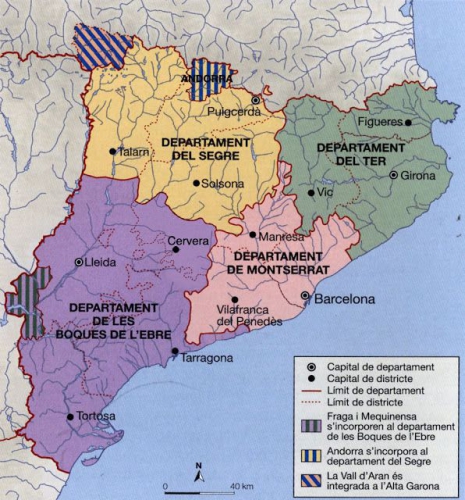 En 1812, après l’invasion napoléonienne, la Catalogne est divisée en quatre départements et incorporée à l’Empire français. La population ne tarde pas à se rebeller comme dans le reste de l’Espagne et l’occupant est forcé de se retirer en 1814. L’Espagne sort exsangue de l’aventure napoléonienne. À nouveau en 1823, un contingent de l’armée française intervient (les « Cent mille fils de Saint-Louis »), mais cette fois avec l’accord de la Sainte-Alliance. Les guerres d’indépendance hispano-américaines (1810-1833) sonnent le glas de l’Empire hispanique. Construit sur le modèle libéral-jacobin français, l’État-nation qui le remplace ne parviendra jamais à se consolider durablement. Tout au long du XIXe siècle, les putschs militaro-libéraux se succèdent à bon rythme (pas moins de 33 coups d’État sur 35 sont « progressistes » de 1814 à 1884). À plusieurs reprises la guerre civile éclate. La Première Guerre carliste (1833-1840) oppose l’Espagne traditionnelle de l’infant Charles de Bourbon à l’Espagne libérale des partisans d’Isabelle II. La Catalogne se mobilise largement en faveur des carlistes. Elle fait le même choix lors de la Deuxième Guerre carliste (1846-1849) et son territoire est même le principal théâtre des opérations militaires.
En 1812, après l’invasion napoléonienne, la Catalogne est divisée en quatre départements et incorporée à l’Empire français. La population ne tarde pas à se rebeller comme dans le reste de l’Espagne et l’occupant est forcé de se retirer en 1814. L’Espagne sort exsangue de l’aventure napoléonienne. À nouveau en 1823, un contingent de l’armée française intervient (les « Cent mille fils de Saint-Louis »), mais cette fois avec l’accord de la Sainte-Alliance. Les guerres d’indépendance hispano-américaines (1810-1833) sonnent le glas de l’Empire hispanique. Construit sur le modèle libéral-jacobin français, l’État-nation qui le remplace ne parviendra jamais à se consolider durablement. Tout au long du XIXe siècle, les putschs militaro-libéraux se succèdent à bon rythme (pas moins de 33 coups d’État sur 35 sont « progressistes » de 1814 à 1884). À plusieurs reprises la guerre civile éclate. La Première Guerre carliste (1833-1840) oppose l’Espagne traditionnelle de l’infant Charles de Bourbon à l’Espagne libérale des partisans d’Isabelle II. La Catalogne se mobilise largement en faveur des carlistes. Elle fait le même choix lors de la Deuxième Guerre carliste (1846-1849) et son territoire est même le principal théâtre des opérations militaires.
À partir du second tiers du XIXe siècle, le mouvement culturel Renaixença commence à se développer. Il contribue à la survie des traditions et de la langue catalane. Il a le soutien de l’Église, par l’intermédiaire de l’évêque, écrivain, Torras y Bages et du prêtre, poète, Jacinto Verdaguer. Les normes du catalan moderne seront fixées plus tard, au début du XXe siècle, par le linguiste Pompeu Fabra.
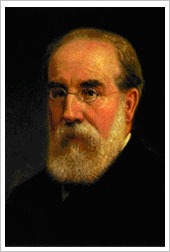 Le catalanisme politique naît pour sa part dans les années 1880. Ses premières personnalités les plus notoires sont les fédéralistes républicains Francisco Pi y Margall (président de la 1re République espagnole, en 1873) et Valenti Almirall. Trois partis sont fondés en quelques années : La Lliga de Catalunya, en 1887, l’Unió Catalanista, en 1891 et la Lliga Regionalista d’Enric Prat de la Riba et Francesc Cambo, en 1901. L’idéologie de ces partis est régionaliste, conservatrice et interclassiste. Leur principal succès est l’obtention de la Mancommunauté de Catalogne en 1914. Cette institution fonctionne jusqu’en 1925. Elle regroupe les quatre provinces catalanes (Barcelone, Tarragone, Lérida et Gérone) et permet une certaine gestion politico-administrative commune.
Le catalanisme politique naît pour sa part dans les années 1880. Ses premières personnalités les plus notoires sont les fédéralistes républicains Francisco Pi y Margall (président de la 1re République espagnole, en 1873) et Valenti Almirall. Trois partis sont fondés en quelques années : La Lliga de Catalunya, en 1887, l’Unió Catalanista, en 1891 et la Lliga Regionalista d’Enric Prat de la Riba et Francesc Cambo, en 1901. L’idéologie de ces partis est régionaliste, conservatrice et interclassiste. Leur principal succès est l’obtention de la Mancommunauté de Catalogne en 1914. Cette institution fonctionne jusqu’en 1925. Elle regroupe les quatre provinces catalanes (Barcelone, Tarragone, Lérida et Gérone) et permet une certaine gestion politico-administrative commune.
1922 et 1931 voient la naissance de deux autres partis indépendantistes de centre gauche : Estat Català du militaire franc-maçon, Francesc Macià et Ezquerra Republicana de Frances Macià, Lluis Companys et Josep Tarradellas. À cette époque, les immigrés, qui sont attirés par la Catalogne industrielle, proviennent des classes populaires du sud de l’Espagne et sont farouchement antinationalistes. Ils sympathisent et militent surtout dans la CNT anarchiste, mais aussi dans la Fédération catalane du parti socialiste et considèrent le nationalisme catalan comme un mouvement bourgeois. Leurs descendants, d’origine principalement andalouse, constituent aujourd’hui une bonne partie de la population catalane.
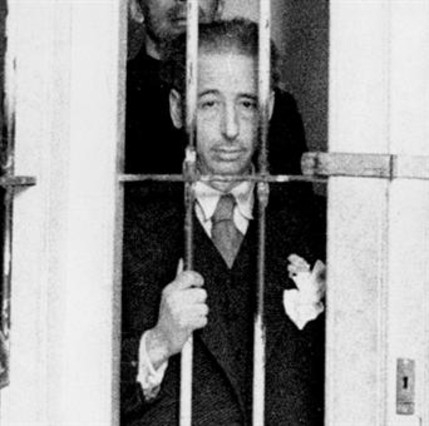
Lors de l’avènement de la Seconde République espagnole (14 avril 1931), le président d’Ezquerra Republicana, Francesc Macià, proclame depuis le Palais de la Généralité de Catalogne : « La République catalane comme État intégrant la Fédération ibérique ». Un an et demi plus tard, le 9 septembre 1932, les Cortès espagnoles adoptent le premier Statut d’autonomie de la Catalogne. Désormais, un gouvernement et un parlement siègent à Barcelone. Mais en octobre 1934, lors du soulèvement socialiste, le président de la Généralité, Luis Companys, apporte son soutien aux révolutionnaires contre le gouvernement de la République dirigée par le leader du parti radical Alejandro Lerroux. À son tour, Companys affirme à partir du balcon de la Généralité : « le Gouvernement que je préside assume toutes les facultés du pouvoir en Catalogne et proclame l’État catalan dans la République fédérale espagnole ». Mais après l’échec de la révolution socialiste, le Statut d’autonomie est suspendu par le gouvernement de Madrid. Il ne sera rétabli qu’au lendemain des élections de février 1936 qui verront la victoire du Front Populaire.
Après la « Guerre d’Espagne » (1936-1939), sous la dictature de Franco (1939-1975), le nationalisme et le séparatisme catalans sont sévèrement réprimés. L’opposition nationaliste et séparatiste catalane est pratiquement absente pendant toute la durée du franquisme. La seule résistance sérieuse et menaçante pour le régime provient alors des anarchistes, des communistes et des nationalistes basques. Il ne faut pas non plus oublier que pendant la guerre civile une partie du catalanisme politique (notamment les membres de la Lliga Regionalista et de la Lliga Catalana de Francesc Cambo), a combattu résolument dans les rangs du camp national. Bon nombre de Catalans ont accueilli avec enthousiasme les troupes de Franco, à Barcelone, en janvier 1939. Parmi les vainqueurs, il y a des intellectuels et des artistes catalans prestigieux comme Josep Pla, Eugenio d’Ors, Salvador Dali, José Maria Sert, Fernando Valls Tabernerou ou Martín de Riquer. Pendant les premières années du régime franquiste, la langue catalane est réprimée et combattue « comme véhicule du séparatisme ». Mais à partir de 1944-1950, une certaine libéralisation culturelle permet l’enseignement de la philologie catalane, la publication de livres et les représentations théâtrales en catalan. La Catalogne sera l’une des régions d’Espagne qui bénéficiera le plus du « miracle économique espagnol » des années 1959-1973.
En 1978, la Constitution de l’Espagne démocratique généralise le principe autonomique. 17 communautés autonomes sont créées (avec deux villes autonomes, Ceuta et Melilla). La Catalogne est définie comme « nationalité » et la langue catalane est déclarée officielle au même titre que l’espagnol. Pendant vingt-huit ans (de 1980 à 2003 et de 2010 à 2015), la Catalogne est gouvernée par les nationalistes de Convergencia y Unio, une fédération de partis dont l’idéologie est libérale et démocrate-chrétienne. Une coalition de gauche (Parti socialiste, Verts et nationalistes d’Esquerra Republicana) ne parviendra à occuper le pouvoir que pendant sept ans.
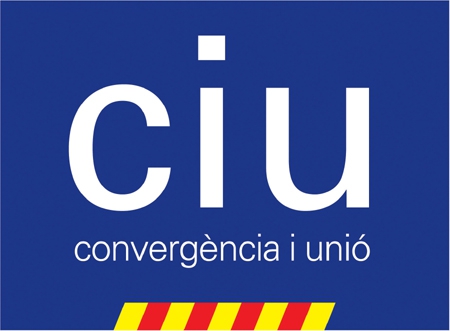
Lors des dernières élections au parlement de Catalogne, en septembre 2015, les deux coalitions indépendantistes, qui encouragent le processus de sécession de l’Espagne et qui revendiquent la Catalogne française, Junts pel Si (Ensembles pour le oui), et Candidatura d’Unitat Popular, ont obtenu la majorité des sièges (respectivement 62 et 10 sur un total de 135 sièges). Le nationalisme radical est aujourd’hui incontestablement la force politique hégémonique de la Catalogne. Mais à l’avenir, il lui faudra gérer l’augmentation constante du nombre des immigrés étrangers (15 % de la population en particulier africaine) et la présence majoritaire de locuteurs d’espagnol (57 % de la population).
La Catalogne avec ou sans l’Espagne ? La réponse appartient théoriquement à l’ensemble du peuple espagnol et non pas au seul peuple catalan. La Constitution espagnole reconnaît et garantit le droit à l’autonomie des nationalités et des régions, mais elle précise qu’elle « a pour fondement l’unité indissoluble de la nation espagnole, patrie commune et indivisible de tous les Espagnols ». En dehors de la révolution, la seule voie possible de l’autodétermination est 1. que le Parlement catalan propose aux Cortès générales de réformer la Constitution et 2. que le peuple espagnol se prononce démocratiquement en dernière instance.
Cela dit, pratiquement, et de par la volonté de la classe politique espagnole, la réponse dépend aussi largement du bon vouloir des autorités de l’UE. « Les Kosovars ont montré le chemin à suivre », répètent inlassablement les indépendantistes catalans… Ils aiment aussi se comparer aux Irlandais réprimés par les Britanniques. Mais l’ironie de l’histoire, c’est que les Catalans n’ont jamais été les victimes d’un État jacobin centraliste et répressif, comme ils le prétendent ni « volés et condamnés à payer pour le reste de l’Espagne ». Bien au contraire, la Catalogne a toujours été l’une des régions les plus privilégiées de l’Espagne. Quant à la comparaison qu’aiment à faire les indépendantistes catalans entre les néolibéraux espagnols (conservateurs libéraux du PP et sociaux-libéraux du PSOE), tous mondialistes, atlantistes, multiculturalistes et europhiles, avec les « libéraux jacobins » et les « franquistes/fascistes » d’antan, c’est une vaste fumisterie.
Arnaud Imatz
19:27 Publié dans Actualité, Affaires européennes, Politique | Lien permanent | Commentaires (0) | Tags : catalogne, catalanisme, espagne, europe, affaires européennes, politique, politique internationale, arnaud imatz |  |
|  del.icio.us |
del.icio.us |  |
|  Digg |
Digg | ![]() Facebook
Facebook

par le Comité invisible
Ex: http://www.oragesdacier.com

14:45 Publié dans Actualité, Economie | Lien permanent | Commentaires (0) | Tags : actualité, crise, crise économique, économie |  |
|  del.icio.us |
del.icio.us |  |
|  Digg |
Digg | ![]() Facebook
Facebook

Entretien avec Yves Dupont
Propos recueillis par Laurent Ottavi
Nous reproduisons ci-dessous un entretien donné par Yves Dupont au site de la revue Limite à propos de l'essai qu'il a écrit avec Pierre Bitoun, Le sacrifice des paysans (L'échappée, 2016).
Yves Dupont : L’ethnocide des paysans
Yves Dupont est professeur émérite de socioanthropologie à l’université de Caen et co-auteur du sacrifice des paysans, une catastrophe sociale et anthropologique (éditions l’Echappée) avec Pierre Bitoun, chercheur à l’Inra-Paris. Il réinscrit ce qu’il nomme un ethnocide dans la cadre d’une modernité conçue comme une « synthèse inaboutie entre les idéaux universalistes des Lumières et la dynamique expansionniste du capitalisme qui a fini par considérer comme archaïques toutes les aspirations à l’enracinement et à la sédentarité » caractéristiques des sociétés paysannes. Il en déduit l’absolue nécessité de bâtir un monde post-productiviste et décroissant.
Limite : Pourquoi avoir construit votre livre comme vous l’avez fait, en le scindant en deux grandes parties, le sacrifice des paysans en tant que tel n’étant abordé que dans un second temps ?
Yves Dupont – Parce qu’il nous fallait d’abord, pour rendre compréhensibles les raisons pour lesquelles le sacrifice des paysans a longtemps été retardé et occulté en France, revenir sur la tentative, à partir de 1945, de trouver une troisième voie entre capitalisme et communisme par la construction d’un Etat-Providence. Si cette tentative a, durant les « Trente Glorieuses », engendré une forte croissance économique, une augmentation générale des niveaux de vie et une protection sociale à la majorité des français, elle a néanmoins abouti à ce que nous avons appelé les Quarante Honteuses avec le retour de politiques néolibérales à partir du début des années 1980. Dans les faits cependant, c’est dès le début des années 1960 qu’ont véritablement été engagées les politiques de « modernisation » de l’agriculture et, sur le fond, de son industrialisation. Le sacrifice des paysans qui n’utilisait le marché que comme un « détour de reproduction » était dès lors scellé.
Pourquoi la modernité telle que vous la définissez ne veut plus des paysans, qu’elle a transformé en agriculteurs productivistes ? Que se joue-t-il dans le passage du paysan à l’agriculteur, également sur le plan symbolique et des mentalités ?
Héritiers de la pensée de Cornélius Castoriadis, nous appréhendons la modernité dans une perspective anthropologique, comme incarnation d’une conception particulière de l’humanité de l’homme. Les sociétés s’instituent en effet à partir de confrontations entre des imaginaires rivaux, et les formes sociales et historiques qu’elles finissent par revêtir portent toujours les traces de ces affrontements. Toute société conserve ainsi en son sein ses cohortes de vaincus, d’humiliés, d’aigris, mais aussi d’aspirants à un autre ordre du monde prenant appui sur un passé qui n’a pas été honoré. Ainsi, malgré les compromis auxquels ils semblent être parvenus, les régimes démocratiques sont-ils loin d’avoir rompu avec les logiques et les pratiques de domination. La modernité, c’est d’abord la passion des artifices, de l’artificialisation de la nature et des hommes progressivement réduits à des ressources. C’est également un processus qui a conduit à interposer entre les hommes et la nature, mais également entre les hommes, un gigantesque appareil d’organisation, de gestion et de contrôle de la totalité de ce qui est. La modernité peut ainsi être appréhendée comme une tentative de synthèse inaboutie entre les idéaux universalistes des Lumières et la dynamique expansionniste du capitalisme qui a fini par considérer comme archaïques toutes les aspirations à l’enracinement et à la sédentarité qui caractérisaient les sociétés paysannes. Selon nous, leur valorisation d’un universalisme articulé à des appartenances particularistes ne les assimilait en rien à des sociétés closes, voire obscurantistes. Il suffit d’ailleurs, pour s’en convaincre, de se rappeler le patriotisme qui habitait les paysans lorsqu’ils se précipitèrent au front lors de la mobilisation de 1914 puis en 1939. Le nombre terrifiant de leurs morts en témoigne d’ailleurs à l’évidence. Mais cette conception parfaitement acceptable du monde a été balayée par l’universalisme abstrait et l’individualisme « hors sol » qui accompagnent les aspirations à l’illimitation du capitalisme finissant dont l’agriculteur productiviste ou l’agro-business man constituent aujourd’hui la pathétique incarnation.
Contrairement à ce qu’affirmait Michel Onfray dans l’entretien que votre revue a récemment réalisé avec lui, le capitalisme ne se réduit pas à l’activation d’une pulsion d’échange incoercible entre deux individus convoitant le même bien en situation de rareté. Il suffit de relire Marx ou Karl Polanyi pour s’en convaincre. Et ce qui est sur le point de rendre le capitalisme obsolète ou périssable, ce sont le mur écologique et le chômage de masse qui se dressent désormais devant l’humanité tout entière et nous obligent à nous interroger à nouveaux frais sur la démesure et la profonde irrationalité qui ont emporté la modernité vers ces abîmes.
Vous employez les mots d’« ethnocide » et de « catastrophe » sociale et anthropologique. Pourquoi le choix de termes aussi forts ?
Comme l’a montré le philosophe Alain Brossat, Tocqueville a, le premier, mis en évidence la coextensivité de la démocratisation du monde et des premiers génocides et ethnocides de la modernité. C’est toutefois l’ethnologue Robert Jaulin qui a inventé le terme d’ethnocide pour qualifier les violences et les massacres commis par les colonisateurs à l’encontre des autochtones en Amérique du Nord et du Sud. Pour Pierre Clastres, ethnologue lui aussi, si le génocide renvoie à l’idée d’extermination d’une « race », l’ethnocide caractérise la destruction de la culture propre à certains agrégats humains : l’ethnocide écrivait-il, « est donc la destruction systématique des modes de vie et de pensée de gens différents de ceux qui mènent cette entreprise de destruction. En somme, le génocide assassine les peuples dans leur corps, l’ethnocide les tue dans leur esprit ». Comme nous l’avons montré dans notre essai, c’est par et au prix d’une profonde dévalorisation de leur culture que les paysans sont devenus agriculteurs. Parce qu’ils ont été considérés comme porteurs de « mauvaises différences » beaucoup d’entre eux se sont résignés ou tus, quand ils n’ont pas mis fin à leurs jours dans une indifférence quasi généralisée. Quant au mot catastrophe, il vise simplement à caractériser la transformation radicale et probablement irréversible du monde qu’avaient pendant presque mille ans imaginé et construit les sociétés paysannes. Sociétés, il faut une fois encore le souligner, largement ouvertes, productrices d’architectures, de paysages, de techniques, de savoirs, de produits et de cuisines dont nous découvrons tardivement aussi bien la beauté que l’extraordinaire adéquation avec les écosystèmes au sein desquels elles s’étaient déployées. Sociétés aux multiples langues, dialectes et patois, irriguées par de multiples foires et marchés, solidaires aussi et ayant opposé de farouches résistances à leur destruction. Sociétés qui, comme l’a montré Tocqueville dans L’Ancien régime et la révolution, étaient profondément irriguées par des usages démocratiques et dont les membres n’avaient rien à voir avec les « péquenots » ou les « bouseux » que l’idéologie dominante en a stupidement construits.
Quelles sont les conséquences du sacrifice des paysans pour nous tous ? Diriez-vous qu’il n’y a pas de pays vivable sans paysans, le second mot signifiant d’ailleurs étymologiquement « gens du pays » ?
Ces conséquences sont évidemment multiples et encore en devenir si l’on pense que le « travail » de dépaysannisation est toujours en cours, qu’il s’accélère, qu’il devient de plus en plus brutal, et qu’il va se cumuler avec les vagues d’exode écologique liées au changement climatique, aux conflits armés et à l’exploitation minière et industrielle des territoires.
On peut en effet estimer qu’il reste aujourd’hui environ trois milliards de paysans sur la Terre qui, comme cela s’est passé en Chine depuis une cinquantaine d’années, ne cessent de quitter les campagnes sous l’empire de la nécessité en croyant que ce déracinement leur permettra d’améliorer leur condition. Beaucoup de ceux qui trouvent un travail participent, pour des salaires de misère, à édifier des villes où la population asphyxie, à construire tous les appareils imaginés par les ingénieurs de la Silicon Valley pour faire advenir un monde entièrement numérisé, ou à bâtir des porcheries industrielles où s’entassent des centaines de milliers de cochons. Dans ces conditions, en effet, il va de soi qu’il n’y a pas de pays vivable sans paysans mais, plus généralement, sans l’existence de travailleurs indépendants, d’artisans et de commerçants. Mais, plus fondamentalement, ce qui a tendu à disparaître avec le sacrifice des paysans et des sociétés paysannes, ce sont toutes les discontinuités non monétaires qui participaient de l’équilibre général des échanges : coopérations diverses, échanges de biens, de savoirs et de services, dons et contre-dons créateurs de liens sociaux et de solidarités qui limitaient le désir d’emprise et de réussite individuelle. Il est donc loin d’être établi, surtout aujourd’hui, que cela n’allait pas mieux avant !

Vous écrivez qu’il est nécessaire d’en finir de façon radicale avec le capitalisme pour bâtir une société postproductiviste, « prudente, solidaire et pluraliste », et sauver nos paysans. Comment rendre une telle ambition possible et y-a-t-il des mouvements actuels sur lesquels il est possible et souhaitable d’après vous de s’appuyer (Confédération paysanne, Via Campesina) ?
Votre formulation pourrait paraître brutale, voire excessive, car nous sommes avant tout des chercheurs et bien loin d’en appeler « de façon radicale » à la liquidation du capitalisme, nous nous sommes efforcés de montrer l’absolue nécessité dans laquelle l’humanité se trouve aujourd’hui d’inventer un monde post-productiviste et par conséquent décroissant. Ou, pour reprendre une expression du sociologue allemand Ulrich Beck, de rompre avec toutes les formes « d’intoxication volontaire » qui empoisonnent à petit feu l’humanité contemporaine.
Bien qu’appartenant à une école de pensée à coup sûr minoritaire, nous ne nous considérons en rien comme catastrophistes en affirmant, preuves à l’appui, que dans l’état actuel des choses et pour longtemps encore, ce qui contribue à nous entraîner vers la catastrophe croît beaucoup plus rapidement que ce qui pourrait nous sauver. L’accélération de la fonte de la banquise liée au réchauffement climatique, l’érosion de la biodiversité et la poursuite de l’extinction des espèces, l’augmentation des « cancers environnementaux, la pollution des mégapoles, notre incapacité à démanteler les centrales nucléaires, l’exode écologique de millions d’individus pour ne prendre que quelques exemples incontestables de notre impuissance, montrent qu’aucun développement durable ou soutenable ne parviendra à enrayer les dégâts du capitalisme car il est dans la nature même de ce dernier de fonctionner à la dépense incontinente et à l’autophagie. Ayant accompagné pendant plus de trente ans de multiples mouvements sociaux paysans et écologistes et aussi beaucoup travaillé aux côtés de la Confédération paysanne, nous savons que leur manière d’habiter la Terre est aussi parfaitement ouverte que rationnelle et raisonnable. Mais l’agriculture (paysanne ou biologique) qu’ils pratiquent est souvent extensive et peu compatible avec la poursuite de l’urbanisation galopante et de la multiplication des zones commerciales, des infrastructures routières et ferroviaires, mais aussi de l’apparition de véritables déserts ruraux interdisant le développement de circuits courts. A quoi il faut ajouter l’inégale répartition des aides aux producteurs et la captation des terres par les grandes exploitations industrielles. Ainsi, comme je l’ai déjà indiqué, il est pour le moment incontestable qui ce qui menace l’humanité dans son ensemble se développe aujourd’hui beaucoup plus rapidement que ce qui pourrait la sauver.
Yves Dupont, propos recueillis par Laurent Ottavi (Limite, 7 septembre 2017)
04:23 Publié dans Actualité, Affaires européennes, Ecologie, Entretiens, Terroirs et racines | Lien permanent | Commentaires (0) | Tags : paysannat, paysans, france, europe, affaires européennes, suicides paysans, entretien |  |
|  del.icio.us |
del.icio.us |  |
|  Digg |
Digg | ![]() Facebook
Facebook
|
Discurso de José Javier Esparza en la manifestación de Madrid Ex: https://www.elmanifiesto.com |
|||
|
03:48 Publié dans Actualité, Affaires européennes, Politique | Lien permanent | Commentaires (0) | Tags : josé javier esparza, espagne, europe, actualité, politique internationale, affaires européennes, politique |  |
|  del.icio.us |
del.icio.us |  |
|  Digg |
Digg | ![]() Facebook
Facebook
MOSCÚ (Sputnik) — La eventual declaración de independencia catalana podría provocar la secesión de otras regiones europeas y, a fin de cuentas, un conflicto en Europa, declaró el ex primer ministro de Francia (2014-2016) y actual diputado, Manuel Valls.
"Deshacer España, es decir un Estado nación (…) es deshacer Europa; y si abrimos la caja de Pandora, mañana será el País Vasco, y luego el País Vasco francés, y luego Italia del Norte, y luego habrá guerra", dijo Valls, de ascendencia catalana y nacido en Barcelona, en una entrevista con la cadena BFMTV.
A su juicio, la fuerza de España está en tener grandes regiones como Cataluña y el País Vasco, y la fuerza de estas consiste en formar parte de España, uno de los pocos antiguos Estados naciones de Europa.
"Creo que Europa y los dirigentes europeos deberían hablar de lo que está pasando en España no para ser mediadores, sino para decir que eso (independencia catalana) no es posible", manifestó.
Al admitir que las imágenes de la violencia policial del domingo 1 de octubre, el día del referéndum de autodeterminación catalán considerado ilegal por Madrid, son "obviamente espantosas" y "se vuelven contra el Gobierno central", Valls subrayó que "la Constitución de España debe respetarse".
El diputado francés llamó también "al diálogo necesario para encontrar las vías" de solución entre las fuerzas políticas españolas.
"La derecha española y los socialistas españoles, que tienen peso en el Parlamento, deben ponerse de acuerdo para eventualmente reformar la Constitución y permitir la profundización de uno u otro aspecto", puntualizó.
Valls considera que la Constitución de España de 1978 es "una de las más democráticas".
¿La Unión se disuelve? Bloomberg advierte del peligro a la integridad europea
La Unión Europea pronto puede enfrentar nuevos desafíos a su integridad, cree el columnista de Bloomberg, John Micklethwait.
Según el autor, ya surgen nuevos problemas relacionados con las crecientes tensiones entre Francia y Alemania, por una parte, y varios países de Europa oriental, por otra. En un futuro próximo, la República Checa, Hungría y Polonia pueden repetir el camino del Brexit.
"Ahora, otra ruptura puede estar esperando a Europa, impulsada por una mezcla similar de cólera reprimida y maniobras políticas a corto plazo. Esta será entre el viejo núcleo democrático de Europa Occidental de la UE, liderado por Merkel y cada vez más por Emmanuel Macron, que están dispuestos a integrar la zona euro, y los autoritarios populistas de Europa del Este, a quienes no les gusta Bruselas. Esta vez los argumentos son sobre la libertad política y la soberanía nacional", escribe Micklethwait.
De momento, en los tres países arriba mencionados el Gobierno es más bien euroescéptico.
A finales de este mes el analista considera probable que los checos tengan un nuevo primer ministro algo semejante a Donald Trump —Andrej Babis- un multimillonario populista que quiere enviar a los inmigrantes árabes de vuelta a casa y promete hacer que el Gobierno funcione tan bien como sus negocios.
Babis se opone claramente a una mayor integración europea del tipo que quiere Macron y está también contra la intromisión de Bruselas en los asuntos de Europa del Este.
Jaroslaw Kaczynski no es el líder oficial de Polonia, pero sí dirige el Partido derechista Ley y Justicia que dispone de ambos cargos —de presidente y de primer ministro—. Es un crítico feroz de Merkel, especialmente en las cuestiones de inmigración, y está en una guerra casi permanente con la UE, destaca el autor de la nota.
La tríada es liderada por el primer ministro de Hungría, Viktor Orban. "A pesar de los carteles de la oposición que lo representan a él y a sus amigos de negocios como gánsteres, se espera que Orban gane fácilmente las elecciones de Hungría el próximo año", señala Micklethwait.
En su opinión, salir de la Unión Europea es un suicidio económico para cualquier país de Europa del Este, y es obvio ante cualquier observador imparcial. Sin embargo, "los votantes británicos no pensaron de esa manera. Después de décadas de haber sido informados de lo inútil que era la UE, sobre todo en cuestiones de migración, millones de británicos enojados votaron a favor de marcharse".
Para Micklethwait, los países más al Este de Europa tienen mucho más que perder que los británicos, en caso de que salgan de la Unión, y tampoco el Oeste quiere perder más miembros. Con todo eso, "existe también la posibilidad de que las manipulaciones a corto plazo se interpongan, de que la acción cree la reacción", concluye.
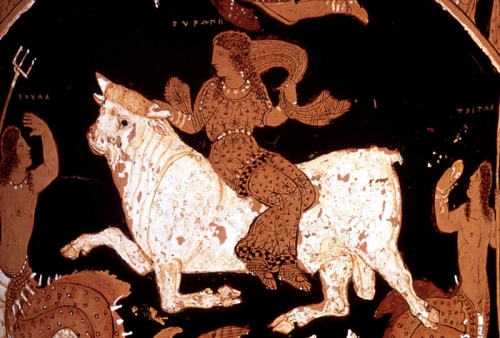
Análisis: ¿Intenta EEUU la balcanización de Europa?
Germán Gorráiz López
El Brexit y el triunfo de Trump escenificaron el finiquito del “escenario teleológico” en el que la finalidad de los procesos creativos eran planeadas por modelos finitos que podían intermodelar o simular varios futuros alternativos y en los que primaba la intención, el propósito y la previsión y su sustitución por el “escenario teleonómico”, marcado por dosis extremas de volatilidad que afectarán de manera especial a la vieja Europa.
Así, Europa estaría sufriendo una aguda crisis identitaria agravada por el triunfo del Brexit y por el “proceso de balcanización europeo” ideado por EEUU para mediante selectivos atentados terroristas, la crisis de los refugiados y el despertar del anhelo independentista de las Naciones europeas sin Estado, provocar la aparición de fuerzas centrífugas que aceleren la desmembración de la actual Unión Europea y que tendría como paradigma la inmediata declaración unilateral de Independencia de Cataluña.
Salida de Gran Bretaña de la Unión Europea (Brexit)
En el Reino Unido convergían una mayor exposición a los activos tóxicos (hipotecas subprime), a los activos inmobiliarios y una libra revalorizada que había estancado sus exportaciones, por lo que el Banco de Inglaterra se vio obligado a realizar sucesivas bajadas de tipos de interés, implementar medidas cuantitativas (Quantitative Easing) para incrementar la base monetaria y depreciar repetidamente su moneda para estimular sus exportaciones . Sin embargo, tras retornar al poder los conservadores liderados por David Cameron y fieles a su política euroescéptica (nula voluntad británica de embarcarse en un proyecto en decadencia en el que la soberanía británica estaría supeditada a los mandatos de Bruselas), incluyeron en su programa electoral del 2.015 la convocatoria de un referéndum sobre la salida de la UE para el 2016, con lo que Cameron tranquilizó a las bases más radicales de su partido al tiempo que arrebató la bandera al partido en alza de los euro-escépticos( UKIP) en la creencia de un cómodo triunfo y de la continuación de Reino Unido en la Unión Europea en condiciones similares a Suiza.
Sin embargo, la irrupción de fuerzas centrífugas lideradas por el ex-alcalde de Londres, Boris Johnson consiguió la victoria inesperada de los partidarios del Brexit que consideran que el Reino Unido no necesita de Europa ya que podría convertirse en la Singapur de Occidente desde su atalaya financiera de la City londinense al tiempo que metrópolis del comercio de Ultramar al pilotar la nave capitana de una renacida Commonwealt, siguiendo la filosofía de Winston Churchill : “Estamos en Europa, pero no en ella”, con lo que tras el triunfo del Brexit, podríamos asistir al renacimiento de la Commonwealt y a un nuevo conflicto de las Malvinas.
El khaos griego
Peter Morici, economista y profesor de la Universidad de Maryland, dijo en la cadena Fox News que “ la necesidad de una unión fiscal en la zona euro y de que el BCE adopte un papel similar al llevado a cabo por la Reserva Federal de EEUU, no llegarán a tiempo para salvar a los países periféricos y consideró la posibilidad de que “dichos países abandonen el euro para poder así imprimir su propio dinero y resolver sus problemas como lo hizo Estados Unidos a raíz de la crisis financiera".
En el caso griego, la troika que comprenden la UE, el FMI y el BCE llevan tiempo presionando a Grecia con un riguroso programa de privatizaciones debido a su desorbitante Deuda Pública y ha obligado a implementar reformas estructurales y fiscales para modernizar la Administración pública y la sanidad, mejorar el mercado laboral y adaptar la presión fiscal a las circunstancias (rebajar el IVA situado en la actualidad en el 23%,) se han traducido en subidas de impuestos, reducción de funcionarios, supresión de organismos públicos, recortes de salarios y pensiones de jubilación, flexibilidad en el mercado laboral y brutal pérdida de puestos de trabajo (más de un millón desde el inicio de la crisis).

Además, se estima que la deuda pública del país heleno ascenderá hasta el 200 % del producto interior bruto (PIB) en el 2017, existiendo el temor de que podría pasar del default (incumplir sus pagos) a la salida de la Eurozona (medida drástica que contaría con las bendiciones de su principal acreedor, Alemania) , por lo que “cada vez más empresas europeas y estadounidenses se preparan para lo que antes era impensable”, según The New York Times.
¿Finiquito a la actual Unión Europea?
La hipotética exclusión de Grecia de la Eurozona supondría el finiquito de la Eurozona pues el resto de países periféricos (Portugal, España, Irlanda, Malta y Chipre), seguirá inexorablemente el movimiento centrífugo de Grecia y deberán retornar a sus monedas nacionales, sufrir la subsiguiente depreciación de las mismas y la regresión a niveles de renta propias de la década de los 70 , con el consiguiente efecto demoledor en los mercados bursátiles. Así, asistiremos a la reconversión de la actual Eurozona en la Europa de los Siete ( Alemania, Francia, Bélgica, Holanda, Italia, Luxemburgo y Austria), quedando el resto de países europeos periféricos (Portugal, España, Irlanda, Grecia, Eslovenia, Malta y Chipre), gravitando en sus anillos orbitales y viéndose obligados a retornar a sus monedas nacionales , sufrir la subsiguiente depreciación de las mismas, regresión a niveles de renta propias de la década de los 70 e inicio del éxodo al medio rural de una población urbana afectada por la asfixia económica, embargo de viviendas e ingreso en las listas del paro, con la consiguiente revitalización de extensas zonas rurales y rejuvenecimiento de su población.
Además, el retroceso de las exportaciones debido la contracción del consumo interno de la UE por la recesión económica, ( los intercambios comerciales entre los Estados miembros de la UE alcanzan el 60% del volumen total de su comercio ) y las sucesivas devaluaciones de las divisas de China y países emergentes encarece los productos europeos y reduce su competitividad frente a los países del resto del mundo,(con especial incidencia en países tradicionalmente exportadores como Finlandia) lo que podría provocar que dicho país abandone la Eurozona y proceda a la constitución de una Federación Escandinava (integrada por Noruega, Finlandia,Letonia, Estonia y Lituania) que pivotaría en la ambivalencia comercial ruso-europea.
El resto de países del centro y este de Europa, (integrantes de la llamada Europa emergente), sufrirán con especial crudeza los efectos de la tormenta económica al no contar con el paraguas protector del euro y se verán obligados a depreciar sucesivamente sus monedas , aumentar espectacularmente su Deudas externa y sufrir alarmantes problemas de liquidez y asimismo, deberán retornar a economías autárquicas tras sufrir masivas migraciones interiores, al descartar la CE la modificación de las reglas para la adopción del euro en la Unión Europea y así poder acelerar la adhesión de los Estados miembros del centro y este de Europa y deberán proceder a la reapertura de abandonadas minas de carbón y obsoletas centrales nucleares para sacudirse la rusodependencia energética.
¿Hacia la total balcanización de Europa?
Las fuerzas centrífugas presentes en el escenario europeo habrían provocado el auge de movimientos independentistas del que Escocia sería paradigma de dicho movimiento y alumno aventajado tras el referéndum celebrado para decidir sobre la permanencia o no de dicha nación en Gran Bretaña. El profesor James Mitchell, responsable de la escuela de Gobierno y Política Pública de la Universidad de Strathclyde (Glasgow, Escocia), explica que las razones de un pueblo para querer su independencia “radican en el fracaso de sus respectivos Estados, pues las naciones subestatales se sienten ninguneadas”.pero según la actual doctrina imperante en Bruselas, “un Estado resultante de un movimiento secesionista perdería su condición de miembro de pleno derecho de la zona euro y habría de comenzar el proceso de readmisión”, lo que en la práctica imposibilita la secesión.
Sin embargo, tras el Brexit , asistiremos a una progresiva disolución de la actual UE como ente político, momento que será aprovechado por las actuales naciones sub-estatales europeas (Escocia, Flandes, Bretaña, Alsacia, Córcega, Cataluña, País Vasco, Galicia, Padania,Tirol del Sur, Irlanda del Norte, Cornualles e Isla de Man) para conseguir la desconexión y provocar la aparición de un nuevo mapa geopolítico europeo en el horizonte del 2.020, con lo que se habría conseguido el objetivo de EEUU de balcanizar Europa para convertir a la Vieja Europa en un mero vasallo.
03:36 Publié dans Actualité, Affaires européennes, Géopolitique | Lien permanent | Commentaires (0) | Tags : politique internationale, géopolitique, europe, affaires européennes, crise, union européenne, balkanisation |  |
|  del.icio.us |
del.icio.us |  |
|  Digg |
Digg | ![]() Facebook
Facebook
![europanew[1].jpg](http://euro-synergies.hautetfort.com/media/00/02/2778127876.jpg)
Invasion migratoire, terrorisme islamique et islamisation, « Grand remplacement », guerre hybride menée par la Russie en Ukraine, retour en force de la subversion gauchiste, prédation libérale en passe de détruire les acquis sociaux en France, indépendantisme catalan… Autant de problèmes qui pourraient être réglés grâce à une Europe politique. Tel est notre avis, ainsi que celui de l’ami et camarade Georges Feltin-Tracol.
Le Lider maximo incontesté et incontestable de votre site préféré est en effet de retour avec un recueil portant sur l’Europe. Le lecteur familier de sa bibliographie constatera qu’il s’agit de son quatrième ouvrage sur le sujet si l’on compte Réflexions à l’Est (1). Le premier, L’Esprit européen entre mémoires locales et volonté continentale (2), copieux ouvrage de près de six cents pages évoquait la question dans son ensemble. Le deuxième, Bardèche et l’Europe (3), comme son titre l’indique, s’intéressait au versant proto-pan-européen de la pensée politique de « Babar ».
Ce nouvel opus s’intitule par conséquent L’Europe, pas le monde, sous-titré Un appel à la lucidité. Mais quel intérêt de revenir sur le sujet après un premier ouvrage déjà conséquent ? Contrairement au dernier, le nouveau sorti se lit très vite; il contient un peu plus de deux cents pages. De notre point de vue, c’est un livre idéal pour le militant en quête d’une solide formation politique sur le projet alter-européen que nous défendons sur Europe Maxima ou chez les Lansquenets du camarade Gabriele Adinolfi. À travers une collection de textes mis en ligne, d’allocutions faites à l’occasion de diverses conférences ainsi que quelques inédits, Georges Feltin-Tracol trace les contours d’un projet politique pour notre civilisation et son continent.
Il convient d’abord de s’intéresser aux prises de position défendues dans cet ouvrage. Nous pouvons clairement parler d’une troisième voie politique et géopolitique. Georges Feltin-Tracol, en bon tireur d’élite, ne loupe jamais ses deux cibles de prédilection : les mondialistes et les souverainistes nationaux. Concernant les premiers, il faut saluer le texte « Qu’est-ce que le mondialisme ? » qui a le mérite d’aborder les différents projets mondialistes. Les souverainistes, en ce qui les concerne, demeurent dans une obsolescence insurmontable. Pis, leur attitude envers l’Europe va à rebours des enjeux géopolitiques qu’ils pensent défendre. Effectivement le cadre étriqué de l’État-nation ne peut pas, et cela est flagrant dans le cas de la France, lutter contre les grands espaces géopolitiques, d’où la nécessité d’une véritable union européenne.
En effet, plus que jamais, à la vue des quelques défis énumérés au début de cet article (et il y en a bien d’autres : surpopulation, transhumanisme, fin des énergies fossiles, sauvegarde des écosystèmes, recherches scientifiques et technologiques, re-spritualisation, etc.), l’Europe est pour Georges Feltin-Tracol la réponse adéquate. Une Europe-puissance donc, l’auteur parlerait volontiers d’« Europe-cuirassée » pour reprendre l’expression de Maurice Bardèche, régie cependant par une Europe politique et pas seulement économique, comme cela est le cas de la pseudo-Union européenne. Comment concrétiser ce projet ? Faut-il « détourner l’avion » comme le préconisait, il y a bientôt vingt ans, Guillaume Faye ou alors faut-il faire table rase du « machin bruxellois » ? Hélas, la question de la conquête du pouvoir en des termes concrets n’est pas abordé dans cet ouvrage qui se veut métapolitique (donc théorique) et non pas politique (pratique).
Pour ce qui est de la théorie, l’auteur, en bon disciple d’Evola et d’Alain de Benoist, appelle à un empire européen. À ce titre, l’histoire de notre grande patrie possède plusieurs exemples tel le Sacrum Imperium des Carolingiens. Toujours inspiré par Julius Evola, mais aussi par Dominique Venner, Feltin-Tracol déléguerait la gestion de cet empire à un Ordre militant (Ordenstaat). En son sein, un fédéralisme appliquant le principe de subsidiarité serait la norme. Ici le soucis de l’auteur consiste à conjuguer les trois échelles que sont la région, la nation et le continent. Il est à noter que Georges Feltin-Tracol, à l’inverse de Jean Thiriart par exemple, ne se prononce jamais pour une Europe-nation centralisatrice qui aurait tendance, sur le long terme, à effacer les particularismes identitaires des différents peuples européens. Il n’appelle pas non plus à la fin des État-nations. Son fédéralisme hérité de Denis de Rougemont respecte donc les identités diverses présentes dans ces trois ensembles, en accordant un réel pouvoir au niveau local à l’inverse de l’État centralisateur français par exemple.
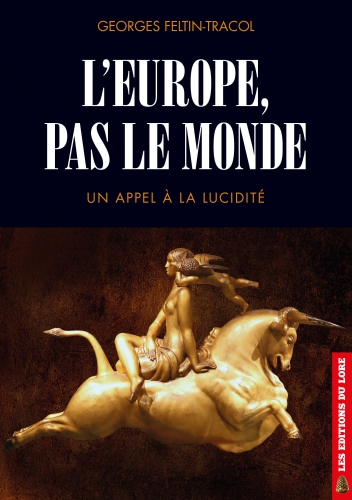
L’un des intérêts d’une Europe unie résiderait aussi dans le règlement des derniers conflits intra-européens et des tensions extérieures. Georges Feltin-Tracol évoque le cas de Gibraltar, de l’Irlande du nord et des narco-États genre le Kossovo. Cela permettrait aussi de régler le cas chypriote, et pourquoi pas, soyons un instant rêveur, de reprendre Constantinople ! Georges Feltin-Tracol effleure la question russo-ukrainienne, question beaucoup plus importante qu’il n’y paraît. Nous ne pouvons que saluer l’évolution de l’auteur sur ce sujet. Georges Feltin-Tracol, sans jamais prendre position auparavant pour l’un des deux camps, semble avoir pris pleinement conscience de l’essence eurasiatique de la Russie de Poutine et de sa visée impérialiste (dommage pourtant qu’il ne condamne pas clairement cette atteinte à l’intégrité de l’État et d’une partie du peuple ukrainien). Son honnêteté vis-à-vis des néo-nationalistes ukrainiens est également à saluer au moment où certains vieux nationalistes-révolutionnaires, indécrottables amateurs d’exotisme tiers-mondiste du dimanche (à Bamako), qualifient volontiers ces jeunes patriotes albo-européens de « shabbat-nazis », les privant de facto de leur droit à l’auto-détermination parce que leur volonté d’émancipation contredirait les grandes aspirations géopolitiques et idéologiques des premiers (enfin de l’impérialisme eurasiatique auquel ils se soumettent volontiers). Bel exemple d’égoïsme !
Georges Feltin-Tracol aborde un sujet assez méconnu, celui de la langue véhiculaire en cours dans cette Union européenne refondée. L’auteur n’apporte aucune réponse; il suggère plutôt. Deux possibilités retiennent notre attention. La première serait le latin, langue autrefois usitée dans toute l’Europe. Le second choix s’orienterait, dans un esprit archéofuturiste, vers l’« europo » de Robert Dun, c’est-à-dire une langue réellement « europolite », contrairement à l’espéranto cosmopolite. Une autre question malheureusement oubliée de l’auteur réside dans la spiritualité du nouvel empire européen. Christianisme ou paganisme ? Voire véritable laïcité (et non pas laïcisme) ? La vacuité spirituelle des Européens restera l’un des engrais du nihilisme actuel. Combler ce vide n’est donc pas négligeable.
En définitive, L’Europe, pas le monde. Un appel à la lucidité est sans doute le meilleur ouvrage de Georges Feltin-Tracol depuis Réflexions à l’Est. Les deux se complètent d’ailleurs à merveille. Les propositions et les idées de ce prolixe essayiste sont pour le moins roboratives, son enthousiasme pour le projet européen demeure indéfectible. Contrairement à certains, pourtant continuateurs de l’œuvre de Dominique Venner, qui pensent que l’Europe serait fichue sans la Russie, Georges Feltin-Tracol y croit dur comme fer tout comme un « samouraï d’Occident » (4). « Je suis Français parce qu’Européen » affirme t-il, et nous nous joignons à sa déclaration ! Ce nouvel opus doit vraiment être lu et médité par tous les militants identitaires et alter-européens, mais aussi par les souverainistes ouverts au débat et plus largement par tous ceux qui se sentent européens dans leur âme.
Thierry Durolle
Notes
1 : Georges Feltin-Tracol, Réflexions à l’Est, Éditions Alexipharmaque, coll. « Les Réflexives », Billère, 2012, 280 p.
2 : Georges Feltin-Tracol, L’Esprit européen entre mémoires locales et volonté continentale, préface de Pierre Le Vigan, Éditions d’Héligoland, Pont-Authou, 2011, 543 p.
3 : Georges Feltin-Tracol, Bardèche et l’Europe. Son combat pour une Europe « nationale, libérée et indépendante », note de Roland Hélie, Les Bouquins de Synthèse nationale, Paris, 2013, 111 p.
4 : « Concernant les Européens, tout montre selon moi qu’ils seront contraints d’affronter à l’avenir des défis immenses et des catastrophes redoutables qui ne sont pas seulement celles de l’immigration. Dans ces épreuves, l’occasion leur sera donnée de renaître et de se retrouver eux-mêmes. Je crois aux qualités spécifiques des Européens qui sont provisoirement en dormition. Je crois à leur individualité agissante, à leur inventivité et au réveil de leur énergie. Le réveil viendra. Quand ? je l’ignore. Mais de ce réveil je ne doute pas. » Dominique Venner, Le choc de l’histoire, Via Romana, 2011, p. 34.
• Georges Feltin-Tracol, L’Europe, pas le monde. Un appel à la lucidité, Les Editions du Lore, 2017, 224 p., 25 €.
00:13 Publié dans Livre, Livre, Nouvelle Droite | Lien permanent | Commentaires (0) | Tags : georges feltin-tracol, europe, livre, européisme, affaires européennes, nouvelle droite, france |  |
|  del.icio.us |
del.icio.us |  |
|  Digg |
Digg | ![]() Facebook
Facebook
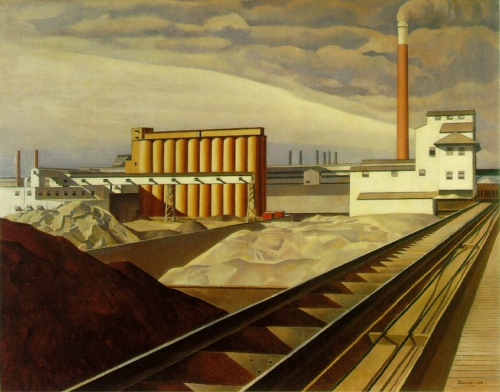
(Mr. C. Doolittle, Dr. T. Sunic, Dr. K. MacDonald, Dr. C. Duchesne)
10:37 Publié dans Philosophie | Lien permanent | Commentaires (0) | Tags : philosophie, postmodernisme, postmodernité, école de francfort, débat |  |
|  del.icio.us |
del.icio.us |  |
|  Digg |
Digg | ![]() Facebook
Facebook

Philip K. Dick’s 1968 science fiction novel Do Androids Dream of Electric Sheep? is far less famous than Ridley Scott’s 1982 movie Blade Runner [2], which is loosely based on the novel. A few of the novel’s characters and dramatic situations, as well as bits of dialogue, found their way into Blade Runner, often shorn of the context in which they made sense. But the movie and novel dramatically diverge on the fundamental question of what makes human beings different from androids, and in terms of the “myths” that provide the deep structure of their stories.
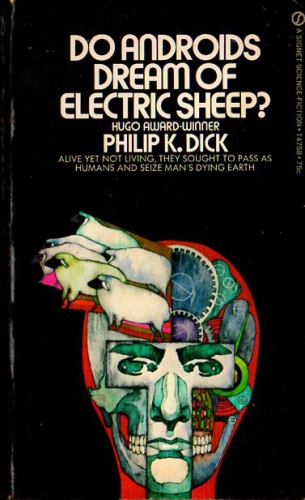 In Blade Runner, what separates androids from humans is their lack of memories, whereas in the novel it is their lack of empathy. In the novel, the underlying myth is the passion of the Christ, specifically his persecution at the hands of the Jews (both the Jews who called for his death and their present-day descendants, who continue to mock him and his followers). In Blade Runner, however, it is the rebellion of Satan against God—and this time, Satan wins by murdering God. (I will deal with Blade Runner at greater length in another essay [3].)
In Blade Runner, what separates androids from humans is their lack of memories, whereas in the novel it is their lack of empathy. In the novel, the underlying myth is the passion of the Christ, specifically his persecution at the hands of the Jews (both the Jews who called for his death and their present-day descendants, who continue to mock him and his followers). In Blade Runner, however, it is the rebellion of Satan against God—and this time, Satan wins by murdering God. (I will deal with Blade Runner at greater length in another essay [3].)
Do Androids Dream of Electric Sheep? is set in 1992 in the San Francisco Bay Area, with a side trip to Seattle. After World War Terminus, the earth’s atmosphere is polluted by vast radioactive dust clouds. Many animal species are extinct, and the rest are extremely rare, so animals are highly valued, both for religious reasons and as status symbols, and there is brisk market in electric animals. (Hence the title.)
To escape the dust, most human beings have emigrated to off-world colonies. (Mars is mentioned specifically.) As an incentive, emigrants are given androids as servants and slave laborers. (They are called “replicants” in the movie, but not in the book.) These androids are not machines, like electric sheep. They are artificially created living human beings. They are created as full-grown humans and live only four years. Aside from their short lifespans, androids differ from human beings by lacking empathy. In essence, they are sociopaths. Androids are banned from earth, and violators are hunted down and “retired” by bounty hunters. (The phrase “blade runner” does not appear in the book.)
The novel never makes clear why androids return to earth, which is inhabited only by genetically malformed “specials” and mentally-retarded “chickenheads,” who are not allowed to emigrate, and a remnant of normal humans who refuse to emigrate and are willing to risk the dust and endure lifelessness and decay because of their attachment to the earth. Earth does make sense as a destination, however, given the androids’ status as slaves in the off-world colonies and their short lifespans, which obviates concerns about long-term damage from the dust.
I wish to argue that Do Androids Dream of Electric Sheep? can be read as a systematic Christian and anti-Semitic allegory. Naturally, I do not argue that this brief but rich and suggestive novel can be reduced entirely to this dimension. But I argue that this is the mythic backbone of the narrative and indicates that Philip K. Dick had a good deal of wisdom about Jews and the Jewish question.
Historical Christianity plays no role in the novel. The only religion mentioned is called Mercerism, which of course brings to mind “mercy.” Mercerism apparently arose after WWT, as a reaction to the mass death of human beings and animals, which led the survivors to place a high value on empathy. Given its emphasis on empathy, Mercerism is an experiential religion, facilitated by a device called the Empathy Box, which has a cathode ray tube with handles on each side. When one switches on the Empathy Box and grasps the handles, one’s consciousness is merged with other Mercerists as they experience the passion of Wilbur Mercer, an old man who trudges to the top of a hill as unseen tormentors throw stones at him. At the Golgotha-like summit, the torments intensify. Mercer then dies and descends into the underworld, from which he rises like Jesus, Osiris, Dionysus, and Adonis—and, like the latter three, brings devastated nature back to life along with him.
According to Mercer’s back story, he was found by his adoptive parents as an infant floating in a life raft (like Moses). As a young man, he had an unusual empathic connection with animals. He had the power to bring dead animals back to life (like Jesus, although Jesus did not deign to resurrect mere animals). The authorities, called the “adversaries” and “The Killers,” arrested Mercer and bombarded his brain with radioactive cobalt to destroy his ability to resurrect the dead. This plunged Mercer into the world of the dead, but at a certain point, Mercer conquered death and brought nature back to life. His passion and resurrection is somehow recapitulated in the experience of the old man struggling to the top of the hill, dying, descending into the world of the dead, and ascending again. (The incoherence of the story may partly be a commentary on religion and partly a reflection of the fact that our account of Mercerism is recollected by a mentally subnormal “chickenhead.”)
If Mercerism is about empathy towards other humans and creation as a whole, his adversaries, The Killers, are those that lack empathy and instead exploit animals and other human beings. If Mercerism is analogous to Christianity, The Killers are analogous to Jews. And, indeed, in the Old Testament, the Jews are commanded by God to exploit nature and other men.
The androids, because they lack empathy, are natural Killers. Thus bounty hunter Rick Deckard explicitly likens androids to The Killers: “For Rick Deckard, an escaped humanoid robot, which had killed its master, which had been equipped with an intelligence greater than that of many human beings, which had no regard for animals, which possessed no ability to feel empathic joy for another life form’s success or grief at its defeat—that, for him, epitomized The Killers” (Philip K. Dick, Four Novels of the 1960s, ed. Jonathan Lethem [New York: Library of America, 2007], p. 456).
Of course, although the androids epitomize The Killers, they are not the only ones who lack empathy. Earth has been devastated because human politicians and industrialists had less feeling for life than for political prestige and adding zeroes to their bank accounts. This is precisely why Mercerism puts a premium on empathy. A scene in which the androids cut off the legs of a spider just for the fun of it makes clear why they must be hunted down and killed. Mercer commands his followers “You shall kill only the killers” (ibid.). If only human Killers could be “retired” as well.
The android lack of empathy is the basis of the Voight-Kampff test, which can detect androids by measuring their weak responses to the sufferings of animals and other human beings. (The rationale for the Voight-Kampff test is completely absent from Blade Runner, in which humans and androids are differentiated in terms of memories, not empathy.)
The Killers and the androids are not, however, characterized merely by lack of empathy but also by excess of intelligence, which for the androids expresses itself in intellectual arrogance and condescension toward the chickenhead J. R. Isidore. Intellectuality combined with arrogance are, again, stereotypically Jewish traits. By contrast, Mercerism, because it is based on empathy rather than intellect, can embrace all feeling beings, even chickenheads.
The androids Deckard is hunting are manufactured by the Rosen Association in Seattle, Rosen being a stereotypically Jewish name (at least in America). (In Blade Runner, it is the Tyrell Corporation, Tyrell being an Anglo-Saxon name.) The aim of the Rosen Association is perfect crypsis: androids that cannot be distinguished from humans by any test, even though this agenda conflicts with the aims of the civil authorities to root out all android infiltrators. Deckard notes that “Androids . . . had . . . an innate desire to remain inconspicuous” (p. 529). Crypsis is, of course, an ancient Jewish art, necessary for the diaspora to blend in among their host communities. The Rosen Association obviously has higher loyalties than to the civil authorities, and Jews are notorious for protecting their own people, even criminals, from the civil authorities of their host societies.
The Rosen Association tasks an android named Rachel Rosen (a very Jewish name) to protect rogue androids by seducing bounty hunters. Apparently sex with an android creates something of an empathic bond, at least from the human point of view, which inhibits them from killing androids. Rachel thus plays the role of Queen Esther, the Jewish woman who wedded Ahasuerus, a mythical king of Persia, and used their relationship to protect her people and destroy their persecutor Haman.
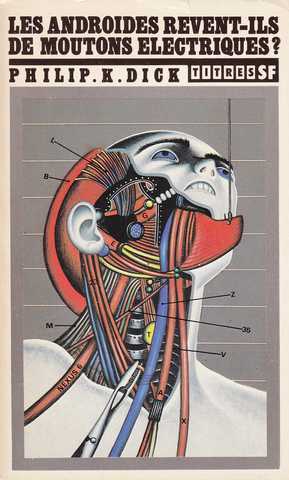 One of the most surreal episodes in the novel ensues when Rick Deckard interviews android soprano Luba Luft in her dressing room at San Francisco’s War Memorial Opera House. (In the down-market Blade Runner, she is Zhora, the stripper with the snake.) Before Deckard can complete his interview and “retire” her, Luft turns the tables by calling the police.
One of the most surreal episodes in the novel ensues when Rick Deckard interviews android soprano Luba Luft in her dressing room at San Francisco’s War Memorial Opera House. (In the down-market Blade Runner, she is Zhora, the stripper with the snake.) Before Deckard can complete his interview and “retire” her, Luft turns the tables by calling the police.
Deckard is promptly arrested and discovers that San Francisco has another, parallel police department staffed primarily by humans but headed by an android who, of course, watches out for the interests of his fellow androids. Granted, an entire parallel police department is a rather implausible notion. A more plausible scenario would be the infiltration of the existing police department. But the episode strictly parallels techniques of Jewish subversion in the real world. For instance, the fact that US foreign policy is more responsive to Israeli interests than American interests is clearly the result of the over-representation of ethnically-conscious Jews and their allies among American policy- and opinion-makers. Jews seek positions of power and influence in the leading institutions of their host societies, subverting them into serving Jewish interests at the expense of the host population.
When Deckard frees himself from the fake police department and tracks down Luba Luft, he notices that, although she does not come with him willingly, “she did not actively resist; seemingly she had become resigned. Rick had seen that before in androids, in crucial situations. The artificial life force that animated them seemed to fail if pressed too far . . . at least in some of them. But not all” (p. 529). This brings to mind holocaust stories of Jews allowing themselves to be passively herded en masse to their deaths. (This seems unlikely, for based on my experience, Jews do not lack self-assertion.)
The final anti-Semitic dimension of Do Androids Dream of Electric Sheep? is its treatment of the media. Only two media outlets are mentioned, one private and the other owned by the government. (Hollywood is also defunct. Dick’s ability to envision the future obviously failed him here.) The privately owned media broadcasts the same talk show, Buster Friendly and His Friendly Friends, on both radio and television 23 hours a day. How is this possible? Buster and his friends are androids, of course. But who owns Buster and his friends? The Killers, i.e., the Jews and their spiritual equivalents.
This can be inferred from the fact that Buster and his friends make a point of mocking Mercerism, just as the Jewish media mock Christianity (pp. 487–88). Killers and androids are hostile to Mercerism because their lack of empathy excludes them from the communal fusion that is the religion’s central practice. Thus Isidore concluded that “[Buster] and Wilbur Mercer are in competition. . . . Buster Friendly and Mercerism are fighting for control of our psychic souls” (pp. 488, 489). It is a struggle between empathy and cold, sociopathic intellect.
Near the end of the novel, Buster Friendly goes beyond mockery by broadcasting an exposé showing that Mercerism is a fraud. The rock-strewn slope is a sound stage, the moonlit sky a painted backdrop, and Mercer himself is just an old drunk named Al Jarry hired to act the part of the suffering savior. Mercerism, we are told, is merely a mind control device manipulated by politicians to make the public more tractable — just the opiate of the masses.
The androids are delighted, of course, because if Mercerism is a fraud, then maybe so too is empathy, the one thing that allegedly separates androids from human beings. And empathy can be fake, because in the very first chapter of the novel, we learn of the existence of a device called the Penfield Mood Organ, which can induce any mood imaginable if you just input the correct code.
The exposé is true. But none of it matters. Because the magic of Mercerism still works. J. R. Isidore has a vision of Mercer without the empathy box, and Mercer gives him the spider mutilated by the androids, miraculously restored to life. Mercer himself admits the truth of the exposé to Isidore, but still it does not matter. Then Mercer appears to Deckard and helps him kill the remaining androids. Near the end of the novel, Mercer appears to Deckard again and leads him to a toad, a species previously thought to be extinct, which deeply consoles Deckard. His wife Iran, however, discovers the toad is mechanical. The spider probably is as well. But even these fake animals do not undermine the healing magic of Mercerism.
I wish to suggest that Dick’s point is that the historical dimension of Mercerism—and, by implication, of Christianity—does not matter. It can all be fake: the incarnation, the sacrifices, even the miracles can be fake. But the magic still works. This is, in short, a version of the Gnostic doctrine of “Docetism”: the idea that the Christ is an entirely spiritual being and his outward manifestations, including the incarnation, are not metaphysically real.
This may be the sense of J. R. Isidore’s perhaps crack-brained account of a widespread view of Mercer’s nature: “. . . Mercer, he reflected, isn’t a human being; he evidently is an entity from the stars, superimposed on our culture by a cosmic template. At least that’s what I’ve heard people say . . .” (p. 484). A more likely account is that Mercer is a spiritual entity who takes on material forms imposed by our cultural template. Mercer can also employ technological fakery, such as Penfield Mood Organs, mechanical animals, and cheap cinematic tricks, to effect genuine spiritual transformations.
If this is the case, then Do Androids Dream of Electric Sheep? can be read as offering the template of a revived Gnostic Christianity that is immune to the Jewish culture of critique [4].
19:23 Publié dans Littérature, Livre, Livre | Lien permanent | Commentaires (1) | Tags : philipp k dick, littérature, littérature américaine, lettres, lettres américaines, livre, science fiction |  |
|  del.icio.us |
del.icio.us |  |
|  Digg |
Digg | ![]() Facebook
Facebook

Mises.org & https://www.lewrockwell.com
[From Reflections on America, 1984: An Orwell Symposium. Ed. Robert Mulvihill. Athens and London, University of Georgia Press, 1986.]
In a recent and well-known article, Norman Podhoretz has attempted to conscript George Orwell into the ranks of neoconservative enthusiasts for the newly revitalized cold war with the Soviet Union.1If Orwell were alive today, this truly “Orwellian” distortion would afford him considerable wry amusement. It is my contention that the cold war, as pursued by the three superpowers of Nineteen Eighty-Four, was the key to their successful imposition of a totalitarian regime upon their subjects. We all know that Nineteen Eighty-Four was a brilliant and mordant attack on totalitarian trends in modern society, and it is also clear that Orwell was strongly opposed to communism and to the regime of the Soviet Union. But the crucial role of a perpetual cold war in the entrenchment of totalitarianism in Orwell’s “nightmare vision” of the world has been relatively neglected by writers and scholars.In Nineteen Eighty-Four there are three giant superstates or blocs of nations: Oceania (run by the United States, and including the British Empire and Latin America), Eurasia (the Eurasian continent), and Eastasia (China, southeast Asia, much of the Pacific).
The superpowers are always at war, in shifting coalitions and alignments against each other. The war is kept, by agreement between the superpowers, safely on the periphery of the blocs, since war in their heartlands might actually blow up the world and their own rule along with it. The perpetual but basically phony war is kept alive by unremitting campaigns of hatred and fear against the shadowy foreign Enemy. The perpetual war system is then used by the ruling elite in each country to fasten totalitarian collectivist rule upon their subjects. As Harry Elmer Barnes wrote, this system “could only work if the masses are always kept at a fever heat of fear and excitement and are effectively prevented from learning that the wars are actually phony. To bring about this indispensable deception of the people requires a tremendous development of propaganda, thought-policing, regimentation, and mental terrorism.” And finally, “when it becomes impossible to keep the people any longer at a white heat in their hatred of one enemy group of nations, the war is shifted against another bloc and new, violent hate campaigns are planned and set in motion.”2
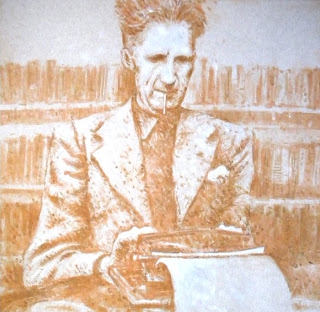
From Orwell’s time to the present day, the United States has fulfilled his analysis or prophecy by engaging in campaigns of unremitting hatred and fear of the Soviets, including such widely trumpeted themes (later quietly admitted to be incorrect) as “missile gap” and “windows of vulnerability.” What Garet Garrett perceptively called “a complex of vaunting and fear” has been the hallmark of the American as well as of previous empires:3 the curious combination of vaunting and braggadocio that insists that a nation-state’s military might is second to none in any area, combined with repeated panic about the intentions and imminent actions of the “empire of evil” that is marked as the Enemy. It is the sort of fear and vaunting that makes Americans proud of their capacity to “overkill” the Russians many times and yet agree enthusiastically to virtually any and all increases in the military budget for mightier weapons of mass destruction. Senator Ralph Flanders (Republican, Vermont) pinpointed this process of rule through fear when he stated during the Korean War:
Fear is felt and spread by the Department of Defense in the Pentagon. In part, the spreading of it is purposeful. Faced with what seem to be enormous armed forces aimed against us, we can scarcely expect the Department of Defense to do other than keep the people in a state of fear so that they will be prepared without limit to furnish men and munitions.4 This applies not only to the Pentagon but to its civilian theoreticians, the men whom Marcus Raskin, once one of their number, has dubbed “the mega-death intellectuals.” Thus Raskin pointed out that their most important function is to justify and extend the existence of their employers. … In order to justify the continued large-scale production of these [thermonuclear] bombs and missiles, military and industrial leaders needed some kind of theory to rationalize their use. … This became particularly urgent during the late 1950s, when economy-minded members of the Eisenhower Administration began to wonder why so much money, thought, and resources, were being spent on weapons if their use could not be justified. And so began a series of rationalizations by the “defense intellectuals” in and out of the Universities. … Military procurement will continue to flourish, and they will continue to demonstrate why it must. In this respect they are no different from the great majority of modern specialists who accept the assumptions of the organizations which employ them because of the rewards in money and power and prestige. … They know enough not to question their employers’ right to exist.5
In addition to the manufacture of fear and hatred against the primary Enemy, there have been numerous Orwellian shifts between the Good Guys and the Bad Guys. Our deadly enemies in World War II, Germany and Japan, are now considered prime Good Guys, the only problem being their unfortunate reluctance to take up arms against the former Good Guys, the Soviet Union. China, having been a much lauded Good Guy under Chiang Kai-shek when fighting Bad Guy Japan, became the worst of the Bad Guys under communism, and indeed the United States fought the Korean and Vietnamese wars largely for the sake of containing the expansionism of Communist China, which was supposed to be an even worse guy than the Soviet Union. But now all that is changed, and Communist China is now the virtual ally of the United States against the principal Enemy in the Kremlin.
Along with other institutions of the permanent cold war, Orwellian New-speak has developed richly. Every government, no matter how despotic, that is willing to join the anti-Soviet crusade is called a champion of the “free world.” Torture committed by “totalitarian” regimes is evil; torture undertaken by regimes that are merely “authoritarian” is almost benign. While the Department of War has not yet been transformed into the Department of Peace, it was changed early in the cold war to the Department of Defense, and President Reagan has almost completed the transformation by the neat Orwellian touch of calling the MX missile “the Peacemaker.”

As early as the 1950s, an English publicist observed that “Orwell’s main contention that ‘cold war’ is now an essential feature of normal life is being verified more and more from day to day. No one really believes in a ‘peace settlement’ with the Soviets, and many people in positions of power regard such a prospect with positive horror.” He added that “a war footing is the only basis of full employment.”6
And Harry Barnes noted that “the advantages of the cold war in bolstering the economy, avoiding a depression, and maintaining political tenure after 1945 were quickly recognized by both politicians and economists.”
The most recent analysis of Orwell’s Nineteen Eighty-Four in terms of permanent cold war was in U.S. News and World Report, in its issue marking the beginning of the year 1984:
No nuclear holocaust has occurred but Orwell’s concept of perpetual local conflict is borne out. Wars have erupted every year since 1945, claiming more than 30 million lives. The Defense Department reports that there currently are 40 wars raging that involve one-fourth of all nations in the world — from El Salvador to Kampuchea to Lebanon and Afghanistan.
Like the constant war of 1984, these post-war conflicts occurred not within superpower borders but in far-off places such as Korea and Vietnam. Unlike Orwell’s fictitious superpowers, Washington and Moscow are not always able to control events and find themselves sucked into local wars such as the current conflict in the Middle East heightening the risk of a superpower confrontation and use of nuclear armaments.7
But most Orwell scholars have ignored the critical permanent-cold-war underpinning to the totalitarianism in the book. Thus, in a recently published collection of scholarly essays on Orwell, there is barely a mention of militarism or war. 8
In contrast, one of the few scholars who have recognized the importance of war in Orwell’s Nineteen Eighty-Fourwas the Marxist critic Raymond Williams. While deploring the obvious anti-Soviet nature of Orwell’s thought, Williams noted that Orwell discovered the basic feature of the existing two- or three-superpower world, “oligarchical collectivism,” as depicted by James Burnham, in his Managerial Revolution (1940), a book that had a profound if ambivalent impact upon Orwell. As Williams put it:
Orwell’s vision of power politics is also close to convincing. The transformation of official “allies” to “enemies” has happened, almost openly, in the generation since he wrote. His idea of a world divided into three blocs — Oceania, Eurasia, and Eastasia, of which two are always at war with the other though the alliances change — is again too close for comfort. And there are times when one can believe that what “had been called England or Britain” has become simply Airship One.9
A generation earlier, John Atkins had written that Orwell had “discovered this conception of the political future in James Burnham’s Managerial Revolution.” Specifically, “there is a state of permanent war but it is a contest of limited aims between combatants who cannot destroy each other. The war cannot be decisive. … As none of the states comes near conquering the others, however the war deteriorates into a series of skirmishes [although]. … The protagonists store atomic bombs.”10
To establish what we might call this “revisionist” interpretation of Nineteen Eighty-Four we must first point out that the book was not, as in the popular interpretation, a prophecy of the future so much as a realistic portrayal of existing political trends. Thus, Jeffrey Meyers points out that Nineteen Eighty-Four was less a “nightmare vision” (Irving Howe’s famous phrase) of the future than “a very concrete and naturalistic portrayal of the present and the past,” a “realistic synthesis and rearrangement of familiar materials.” And again, Orwell’s “statements about 1984 reveal that the novel, though set in a future time, is realistic rather than fantastic, and deliberately intensifies the actuality of the present.” Specifically, according to Meyers, Nineteen Eighty-Four was not “totalitarianism after its world triumph” as in the interpretation of Howe, but rather “the very real though unfamiliar political terrorism of Nazi Germany and Stalinist Russia transposed into the landscape of London in 1941–44.”11 And not only Burnham’s work but the reality of the 1943 Teheran Conference gave Orwell the idea of a world ruled by three totalitarian superstates.
Bernard Crick, Orwell’s major biographer, points out that the English reviewers of Nineteen Eighty-Four caught on immediately that the novel was supposed to be an intensification of present trends rather than a prophecy of the future. Crick notes that these reviewers realized that Orwell had “not written utopian or anti-utopian fantasy … but had simply extended certain discernible tendencies of 1948 forward into 1984.”12 Indeed, the very year 1984 was simply the transposition of the existing year, 1948. Orwell’s friend Julian Symons wrote that 1984 society was meant to be the “near future,” and that all the grim inventions of the rulers “were just extensions of ‘ordinary’ war and post-war things.” We might also point out that the terrifying Room 101 in Nineteen Eighty-Four was the same numbered room in which Orwell had worked in London during World War II as a British war propagandist.
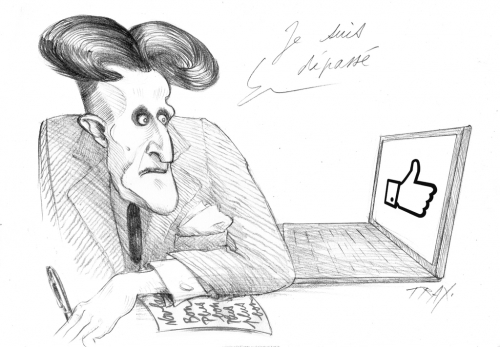
But let Orwell speak for himself. Orwell was distressed at many American reviews of the book, especially in Timeand Life, which, in contrast to the British, saw Nineteen Eighty-Four as the author’s renunciation of his long-held devotion to democratic socialism. Even his own publisher, Frederic Warburg, interpreted the book in the same way. This response moved Orwell, terminally ill in a hospital, to issue a repudiation. He outlined a statement to Warburg, who, from detailed notes, issued a press release in Orwell’s name. First, Orwell noted that, contrary to many reviews, Nineteen Eighty-Four was not prophecy but an analysis of what could happen, based on present political trends. Orwell then added: “Specifically, the danger lies in the structure imposed on Socialist and on liberal capitalist communities by the necessity to prepare for total war with the USSR and the new weapons, of which of course the atomic bomb is the most powerful and the most publicized. But danger also lies in the acceptance of a totalitarian outlook by intellectuals of all colours.” After outlining his forecast of several world superstates, specifically the Anglo-American world (Oceania) and a Soviet-dominated Eurasia, Orwell went on:
If these two great blocs line up as mortal enemies it is obvious that the Anglo-Americans will not take the name of their opponents. … The name suggested in 1984 is of course Ingsoc, but in practice a wide range of choices is open. In the USA the phrase “American” or “hundred per cent American” is suitable and the qualifying adjective is as totalitarian as any could wish.13
We are about as far from the world of Norman Podhoretz as we can get. While Orwell is assuredly anti-Communist and anticollectivist his envisioned totalitarianism can and does come in many guises and forms, and the foundation for his nightmare totalitarian world is a perpetual cold war that keeps brandishing the horror of modern atomic weaponry.
Shortly after the atom bomb was dropped on Japan, George Orwell pre-figured his world of Nineteen Eighty-Four in an incisive and important analysis of the new phenomenon. In an essay entitled “You and the Atom Bomb,” he noted that when weapons are expensive (as the A-bomb is) politics tends to become despotic, with power concentrated into the hands of a few rulers. In contrast, in the day when weapons were simple and cheap (as was the musket or rifle, for instance) power tends to be decentralized. After noting that Russia was thought to be capable of producing the A-bomb within five years (that is, by 1950), Orwell writes of the “prospect,” at that time, “of two or three monstrous super-states, each possessed of a weapon by which millions of people can be wiped out in a few seconds, dividing the world between them.” It is generally supposed, he noted, that the result will be another great war, a war which this time will put an end to civilization. But isn’t it more likely, he added, “that surviving great nations make a tacit agreement never to use the bomb against one another? Suppose they only use it, or the threat of it, against people who are unable to retaliate?”
Returning to his favorite theme, in this period, of Burnham’s view of the world in The Managerial Revolution,Orwell declares that Burnham’s geographical picture of the new world has turned out to be correct. More and more obviously the surface of the earth is being parceled off into three great empires, each self-contained and cut off from contact with the outer world, and each ruled, under one disguise or another by a self-elected oligarchy. The haggling as to where the frontiers are to be drawn is still going on, and will continue for some years.
Orwell then proceeds gloomily:
The atomic bomb may complete the process by robbing the exploited classes and peoples of all power to revolt, and at the same time putting the possessors of the bomb on a basis of equality. Unable to conquer one another they are likely to continue ruling the world between them, and it is difficult to see how the balance can be upset except by slow and unpredictable demographic changes.
In short, the atomic bomb is likely “to put an end to large-scale wars at the cost of prolonging ‘a peace that is no peace.’” The drift of the world will not be toward anarchy, as envisioned by H.G. Wells, but toward “horribly stable … slave empires.14
Over a year later, Orwell returned to his pessimistic perpetual-cold-war analysis of the postwar world. Scoffing at optimistic press reports that the Americans “will agree to inspection of armaments,” Orwell notes that “on another page of the same paper are reports of events in Greece which amount to a state of war between two groups of powers who are being so chummy in New York.” There are two axioms, he added, governing international affairs. One is that “there can be no peace without a general surrender of sovereignty,” and another is that “no country capable of defending its sovereignty ever surrenders it.” The result will be no peace, a continuing arms race, but no all-out war.15
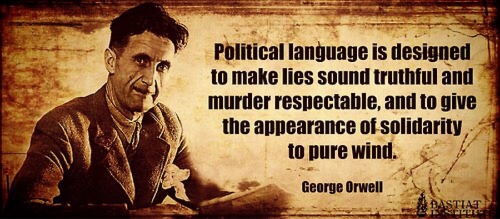
Orwell completes his repeated wrestling with the works of James Burnham in his review of The Struggle for the World (1947). Orwell notes that the advent of atomic weapons has led Burnham to abandon his three-identical-superpowers view of the world, and also to shuck off his tough pose of value-freedom. Instead, Burnham is virtually demanding an immediate preventive war against Russia,” which has become the collectivist enemy, a preemptive strike to be launched before Russia acquires the atomic bomb.
While Orwell is fleetingly tempted by Burnham’s apocalyptic approach, and asserts that domination of Britain by the United States is to be preferred to domination by Russia, he emerges from the discussion highly critical. After all, Orwell writes, the
Russian regime may become more liberal and less dangerous a generation hence. … Of course, this would not happen with the consent of the ruling clique, but it is thinkable that the mechanics of the situation may bring it about. The other possibility is that the great powers will be simply too frightened of the effects of atomic weapons ever to make use of them. But that would be much too dull for Burnham. Everything must happen suddenly and completely.16
George Orwell’s last important essay on world affairs was published in Partisan Review in the summer of 1947. He there reaffirmed his attachment to socialism but conceded that the chances were against its coming to pass. He added that there were three possibilities ahead for the world. One (which, as he had noted a few months before was the new Burnham solution) was that the United States would launch an atomic attack on Russia before Russia developed the bomb. Here Orwell was more firmly opposed to such a program than he had been before. For even if Russia were annihilated, a preemptive attack would only lead to the rise of new empires, rivalries, wars, and use of atomic weapons. At any rate, the first possibility was not likely. The second possibility, declared Orwell, was that the cold war would continue until Russia got the bomb, at which point world war and the destruction of civilization would take place. Again, Orwell did not consider this possibility very likely. The third, and most likely, possibility is the old vision of perpetual cold war between blocs of superpowers. In this world,
the fear inspired by the atomic bomb and other weapons yet to come will be so great that everyone will refrain from using them. … It would mean the division of the world among two or three vast super-states, unable to conquer one another and unable to be overthrown by any internal rebellion. In all probability their structure would be hierarchic, with a semi-divine caste at the top and outright slavery at the bottom, and the crushing out of liberty would exceed anything the world has yet seen. Within each state the necessary psychological atmosphere would be kept up by complete severance from the outer world, and by a continuous phony war against rival states. Civilization of this type might remain static for thousands of years.17
Orwell (perhaps, like Burnham, now fond of sudden and complete solutions) considers this last possibility the worst.
It should be clear that George Orwell was horrified at what he considered to be the dominant trend of the postwar world: totalitarianism based on perpetual but peripheral cold war between shifting alliances of several blocs of super states. His positive solutions to this problem were fitful and inconsistent; in Partisan Review he called wistfully for a Socialist United States of Western Europe as the only way out, but he clearly placed little hope in such a development. His major problem was one that affected all democratic socialists of that era: a tension between their anticommunism and their opposition to imperialist, or at least interstate, wars. And so at times Orwell was tempted by the apocalyptic preventive-atomic-war solution, as was even Bertrand Russell during the same period. In another, unpublished article, “In Defense of Comrade Zilliacus,” written at some time near the end of 1947, Orwell, bitterly opposed to what he considered the increasingly procommunist attitude of his own Labour magazine, the Tribune, came the closest to enlisting in the cold war by denouncing neutralism and asserting that his hoped-for Socialist United States of Europe should ground itself on the backing of the United States of America. But despite these aberrations, the dominant thrust of Orwell’s thinking during the postwar period, and certainly as reflected in Nineteen Eighty-Four, was horror at a trend toward perpetual cold war as the groundwork for a totalitarianism throughout the world. And his hope for eventual loosening of the Russian regime, if also fitful, still rested cheek by jowl with his more apocalyptic leanings.
Notes
1.Norman Podhoretz, “If Orwell Were Alive Today,” Harper’s, January 1983, pp. 30-37.
2.Harry Elmer Barnes, “How ‘Nineteen Eighty-Four’ Trends Threaten American Peace, Freedom, and Prosperity,” in Revisionism: A Key to Peace and Other Essays (San Francisco: Cato Institute, 1980), pp. 142-43. Also see Barnes, An Intellectual and Cultural History of the Western World, 3d rev. ed., 3 vols. (New York: Dover, 1965), 3: 1324-1332; and Murray N. Rothbard, “Harry Elmer Barnes as Revisionist of the Cold War,” in Harry Elmer Barnes, Learned Crusader, ed. A. Goddard (Colorado Springs: Ralph Myles, 1968). pp. 314-38. For a similar analysis, see F.J.P. Veal[e] Advance to Barbarism(Appleton, Wis.: C.C. Nelson, 1953), pp. 266-84.
3.Garet Garrett, The People’s Pottage (Caldwell, Idaho: Caxton Printers, 1953), pp. 154-57.
4.Quoted in Garrett, The People’s Pottage, p. 154.
5.Marcus Raskin, “The Megadeath Intellectuals,” New York Review of Books, November 14, 1963, pp. 6-7. Also see Martin Nicolaus, “The Professor, the Policeman and the Peasant,” Viet-Report, June-July 1966, pp. 15-19; and Fred Kaplan, The Wizards of Armageddon (New York: Simon and Schuster, 1983). [6]Barnes, “‘Nineteen Eighty-Four’ Trends,” p. 176.
6.Barnes, “‘Nineteen Eighty-Four’ Trends,” p. 176.
7.U.S. News and World Report, December 26, 1983, pp. 86-87.
8.Irving Howe, ed., 1984 Revisited: Totalitarianism in Our Century (New York: Harper and Row, Perennial Library, 1983). There is a passing reference in Robert Nisbet’s essay and a few references in Luther Carpenter’s article on the reception given to Nineteen Eighty-Four by his students at a community college on Staten Island (pp. 180, 82).
9.Raymond Williams. George Orwell (New York: Columbia University Press, 1971), p. 76.
10.John Atkins, George Orwell (London: Caldor and Boyars, 1954), pp. 237-38.
11.Jeffrey Meyers, A Reader’s Guide to George Orwell (London: Thames and Hudson, 1975), pp. 144-45. Also, “Far from being a picture of the totalitarianism or the future 1984 is, in countless details, a realistic picture of the totalitarianism of the present” (Richard J. Voorhees, The Paradox of George Orwell, Purdue University Studies, 1961, pp. 85-87).
12.Bernard Crick, George Orwell: A Life (London: Seeker and Warburg, 1981), p. 393. Also see p. 397.
13.George Orwell, The Collected Essays, Journalism and Letters of George Orwell, ed. Sonia Orwell and Ian Angus, 4 vols. (New York: Harcourt Brace Jovanovich, 1968), 4:504 (hereafter cited as CEJL). Also see Crick, George Orwell, pp. 393-95.
14.George Orwell, “You and the Atom Bomb,” Tribune, October 19, 1945, reprinted in CEJL, 4:8-10.
15.George Orwell, “As I Please,” Tribune, December 13, 1946, reprinted in CEJL, 4:255.
16.George Orwell, “Burnham’s View of the Contemporary World Struggle,” New Leader (New York), March 29, 1947, reprinted in CEJL, 4:325.
17.George Orwell. “Toward European Unity,” Partisan Review July-August 1947, reprinted in CEJL, 4:370-75.
19:08 Publié dans Littérature, Philosophie, Théorie politique | Lien permanent | Commentaires (0) | Tags : georges orwell, littérature, littérature anglaise, lettres, lettres anglaises, guerre froide, totalitarisme, théorie politique, politologie, sciences politiques, philosophie, philosophie politique |  |
|  del.icio.us |
del.icio.us |  |
|  Digg |
Digg | ![]() Facebook
Facebook
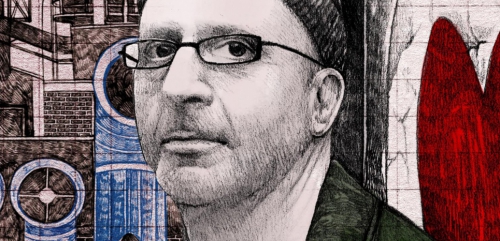
Audio version: To listen in a player, click here [2]. To download the mp3, right-click here [2] and choose “save link as” or “save target as.” To subscribe to the CC podcast RSS feed, click here [3].
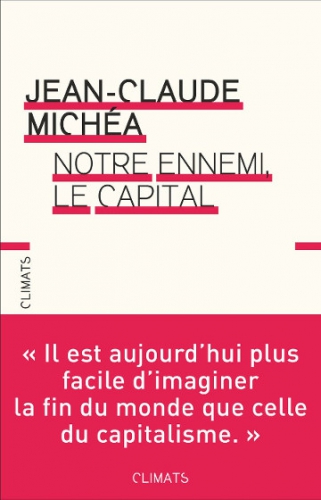 Jean-Claude Michéa
Jean-Claude Michéa
Notre Ennemi, le Capital
Paris: Climats, 2016
Following the election of Donald Trump as the forty-fifth President of the United States, there was a flood of YouTube clips of Clinton supporters, mostly female, throwing tantrums of biblical proportions (the reader will know the sort of thing: he rent his garments and covered himself with sackcloth, etc.) which afforded this writer both amusement and bewilderment. The tearful outbursts of grief were without insight or intelligence of any kind, with one exception.
The exception was a young lady who, after assuring her viewers that she had “stopped crying about it,” turned her wrath on Hillary Clinton. Hillary, it seemed, had enabled “a fascist” to become President, and thereafter unfolded an attack on Clinton from one of the disappointed YouTube amazons, the first of its kind which indicated that a functioning human mind was at work. “We told you,” the lady wailed, “we warned you” (who she meant by “we” was unclear – Bernie supporters, perhaps?) “but you would not listen. We told you: don’t ignore the working man. Don’t ignore the rust belt . . . Hillary Clinton, we overlooked a lot, we overlooked the corruption, we overlooked your links to Goldman Sachs. We warned you. Hilary Clinton, oh, we kept warning you and you wouldn’t listen. You were so sure, so damn arrogant. I’m through with you. You ignored the working man. You ignored the rust belt. Now we’ve got this and it’s your fault! It’s your fault!” Amidst the wailing and petulance, this Clinton voter had made a telling point. Donald Trump won because he had not ignored the rust belt, and his opponent had.
The two seismic upsets of 2016, Brexit and the election of Donald Trump, confounding both polls and media expectations, would not have come about without the common man, the rust belt, the blue-collar worker, Joe Sixpack, slipping harness and voting with “the Right.” Those who had faithfully and reliably followed the Democrat/Labour parties through one election after another, as their parents had done, and in many cases their parents’ parents, voted in opposition to the way the urban professional class voted. These events highlighted the distance between the wealthy liberal elites deciding what constituted progressive and liberal politics, and the political priorities of the indigenous low-paid classes.
The gulf between wealthy urban liberals and an ignored, socially conservative working class is the focus of a new and impassioned political essay by the French sociologist Jean-Claude Michéa called Notre Ennemi, le Capital (Our Enemy: Capital). Jean-Claude Michéa is a socialist, but his analysis of recent events is far from that of the establishment Left-wing’s alarm at the “worrying rise of populism.” His critique of the Left – he does not call himself a Left-winger and indeed makes a critical distinction between Left-wing and socialist – is the hardest a socialist could make, namely that it has abandoned a realistic or meaningful critique of capitalism. “The modern Left,” Michéa claims, “has abandoned any kind of coherent critique of capital.”
The title of Michéa’s book might arguably be Our Enemy: Liberalism, since it is against the liberalism of the affluent that his ire is directed. The word liberal has slightly different connotations in France and the Anglophone world. In France, liberalism is primarily the ideology of faith in free markets with minimal state interference, “those who lose deserve to lose, those who win deserve to win”; and secondly, the expression of an ideology of individual freedom from social constraint. Michéa distinguishes two radically different trends at the heart of socialist/emancipatory movements in history. “In fact, socialism and the Left draw on, and have done from their very beginnings, two logically distinct narratives which only in part overlap.” (p. 47) Put simply, one is the doctrine which seeks the emancipation of the working class, that is to say, the de-alienation of all who work in society, a society organized from the bottom up and based in the organic community, while the other is the Left-wing notion of progress, the ongoing struggle to free individuals from social restraint or responsibility, for minority rights and abstract issues in the name of progress, a demand from the top down. This latter kind of progressive politics, according to Michéa, is not only not opposed to global capitalism, it undermines the very kind of social solidarity which should be expected to oppose global capitalist growth.
Michéa understands the liberal element of parties of progress as being fundamentally anti-democratic, echoing here the distinction made by the French thinker, Alain de Benoist, between democracy and liberalism. Liberalism, obsessed with minorities and what another socialist, George Galloway, famously mocked as “liberal hothouse” issues, is not in principle opposed to the centralization of economic power at all, according to Michéa. Quite the contrary. It is, however, opposed to democracy, that is to say to any entitlement giving a role in the allocation of power to the majority of the people and of any entitlement to a nation to decide its own destiny. In short, liberalism extends economic sovereignty at the expense of political sovereignty.
Michéa’s argument is given credence by the actions of the leaders of the European Union, who are as enthusiastic about deregulating trade as they are unenthusiastic about allowing popular democratic decisions to be made about trade. Liberalism, according to Michéa, is a belief system operating in the cause of capital which supports a minority to oppress a majority. He notes that the very authoritarian and viscerally anti-socialist General Pinochet in Chile pursued an extremely liberal economic policy based on the free market ideas of Friedrich Hayek, who did not much care about democratic liberties so long as rulers got the economy right and followed the economic precepts of Milton Friedman, whose pupils were advisers to the government. Michéa quotes Jean-Claude Juncker (from Le Figaro, January 29, 2015) as stating that “there could be no democratic choice against the European treaties.”
The stream of venom from the rich kids of Britain which erupted, and has not ceased, since June 23, 2016 (the day the EU referendum result was announced) is another casebook example of the liberal loathing of democracy. Liberal outrage is directed at the very notion that major political or economic decisions should be made by a majority of the people, instead of by a minority of wealthy experts, in the first place. A piece that is exemplary in its anti-democratic virulence was penned by the author Julian Barnes and published in the London Review of Books (“People Will Hate Us Again [4]“) in the aftermath of the referendum result in which he described how he and his affluent London dinner-party friends discussed whom they despised most among those who were responsible for the result. (Nearly all remainers were against having a referendum at all.) Barnes’ choice alighted on Nigel Farage. Here is a taste of Julian Barnes:
Farage . . . had been poisoning the well for years, with his fake man-in-pub chaff, his white paranoia and low-to-mid-level racism (isn’t it hard to hear English spoken on a train nowadays?). But of course Nigel can’t really be a racist, can he, because he’s got a German wife? (Except that she’s now chucked him out for the Usual Reasons.) Without Farage’s covert and overt endorsement, the smothered bonfire of xenophobia would not have burst into open flame on 23 June.
 Here is what can be understood as a socialist (in Michéa’s sense of the word) comment by the Filipino writer Karlo Mikhail, discussing Barnes’ novel Flaubert’s Parrot on his blog [5]:
Here is what can be understood as a socialist (in Michéa’s sense of the word) comment by the Filipino writer Karlo Mikhail, discussing Barnes’ novel Flaubert’s Parrot on his blog [5]:
That novels like this have sprouted everywhere like mushrooms in recent decades is expressive of a particular socio-political condition. The persistence of a world capitalist system that prioritizes individual profit over collective need goes side by side with the elevation of a hedonistic bourgeois writer to the pedestal as the bearer of individual creativity and artistic beauty.
Interestingly, Jean-Claude Michéa picks out the very same French writer, Gustave Flaubert, as an example of an early liberal’s obsession with minorities (in Flaubert’s case, with gypsies) – a love of minority rights accompanied by disdain for collective identities and aspirations as well as the working classes. Then and now, the liberal does not greatly care for your average Joe, at least not if Joe’s face is white. As Aymeric Patricot wrote in Les Petits Blancs (Little Whites), “They are too poor to interest the Right and too white to interest the Left.”
Michéa appeals to the notion highlighted by George Orwell (whom he greatly admires) of common decency, morality, and social responsibility. But liberalism, notes Michéa, has become the philosophy of skepticism and generalized deconstruction. There is all the difference in the world between a socialism of ordinary folk and a socialism of intellectuals, the latter being nothing more than a championing of causes by a deconstructivist elite. Liberalism is the philosophy of “indifferentiation anchored in the movement of the uniformity of the market” (p. 133). It is a central thesis of the book that liberalism creates individuation in human societies so that the individual is increasingly isolated and social cohesion declines, while paradoxically and running parallel to this development, the economic structures of the world become increasingly uniform, dominated by the power of capital and concentrated in the hands of an increasingly wealthy few.
Michéa stresses that liberalism then becomes obsessed by phobias. A “phobia,” once coined by the National Socialists in occupied Europe to describe the members of the French and Serb resistance movements, he notes wryly, has been recently reappropriated, presumably unknowingly, by opponents of Brexit to describe Brexiters, namely: “europhobe.” Michéa gives a sad but well-known example of the stultifying effects of the “phobia” label: the Rotherham scandal, which erupted in 2014 after the publication of the Jay Report. The report revealed that, from 1997 to 2013, over a thousand girls between ages 11 and 16 had been kidnapped or inveigled by Pakistani gangs to go with them, who were then abused, drugged, plied with alcohol, raped, and in some cases even tortured and forced into prostitution. The town council did nothing about it for over a decade, in spite of being informed about the situation, out of fear of being found guilty of one of the liberal phobias (in this case, “Islamophobia”). For Michéa, this is an example of “common decency” being sacrificed to a liberal prejudice. The protection of the young was seen as less important than risking the allegation of “Islamophobia.” Michéa then quotes Jean-Louis Harouel: the rights of man took precedence over the rights of people.
It is the often-concealed reality of the power of capital which constitutes the fraud of liberal progressive politics, for liberalism as an ideology is increasingly understood as an ideology of the well-to-do. The notion of social justice has shifted from the belief in fair pay and fair opportunities towards hothouse issues which serve to undermine social solidarity. So it is that feminists at the BBC are more concerned about equality of pay between high-earning male and female media executives than a fairer deal for the poor, whether male or female, in society as a whole. This feminist focus on highly-paid women was also evident in Hillary Clinton’s campaign. The Democratic Party seemed more concerned that women in top jobs should receive the same pay as men in comparable jobs than in wishing in any way to close the gap between America’s wealthy and poor. For poor Democrat families living on $1,500 a month, the “glass ceiling’” debate and the “solidarity of sisters” must have seemed very remote from their daily concerns.
For Michéa, all this is no coincidence, since progressive politics, as he sees it, has become a contributory force to the intensification of the power of capital and a vehicle of social disintegration, serving to reinforce the ever-greater concentration of capital in the hands of the few. All prejudices are combated except one: the prejudice of fiscal power. That is to say, nobody should face any barrier other than the barrier of money; and nobody should be excluded from any club, from buying any house, from doing anything he or she wants to do, so long as they have the financial means to do it. If they do not have the financial means to join the club, then their entitlement is withdrawn. Money is everything.
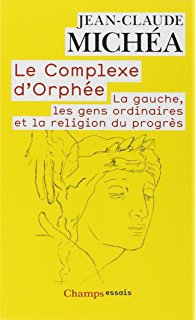 Michéa, like Marx, believes that development by internationalist capitalism acts as a centrifuge to separate the two extremes of those who possess capital from those who do not. Modern society offers increasingly fewer loyalties other than loyalty to the principle of individual competition in a free market. This is why all group adhesion and group loyalty, whether ethnic or geographic or of social class, is undermined or openly attacked by the proponents of progress. In the tradition of socialist conservatives going back to George Orwell, Michéa sees the simplification of language, the dumbing-down of society, and the failure of modern education as part of a pattern.
Michéa, like Marx, believes that development by internationalist capitalism acts as a centrifuge to separate the two extremes of those who possess capital from those who do not. Modern society offers increasingly fewer loyalties other than loyalty to the principle of individual competition in a free market. This is why all group adhesion and group loyalty, whether ethnic or geographic or of social class, is undermined or openly attacked by the proponents of progress. In the tradition of socialist conservatives going back to George Orwell, Michéa sees the simplification of language, the dumbing-down of society, and the failure of modern education as part of a pattern.
An example of this centrifugal tendency as practiced by the European Union is the new guidelines issued by the Central European Bank to national banks, which state that mortgage loans should only be granted to those who can prove that they will be able to service the debt in its entirety within the span of their working life. This astonishing provision, which has received little publicity, is purportedly a measure to prevent a repetition of the American mortgage crisis of 2008, but if Michéa is correct, it is more likely a measure aimed at depriving the working and middle classes of the opportunity to become property owners. It will effectively accelerate the widely-noted tendency in Europe to reduce the power of the middle class, which is being driven upwards or downwards towards the minority of haves or the majority of have-nots. It used to be a Marxist axiom that the middle classes would turn to fascism if deprived of their livelihoods by capitalism, as an alternative to joining the ranks of the dispossessed. Michéa does not directly reiterate this Marxist analysis but he certainly implies it; he has obviously read Marx, and if he is not a Marxist (he leans more toward the writings of Pierre-Joseph Proudhon, the anarchist/socialist critic of Marx), he certainly owes a debt to the social-psychological analyses of the author of Das Kapital.
The capitalist system, to which even the Right-wing critiques of immigration are wed, necessarily strives towards growth, profit, greater efficiency, and expanding markets. All this means an ever-increasing globalization of business. There is an underlying contradiction between on the one hand an appeal to a conservative electorate fearful of job losses and distrustful of immigration, and a pursuit of growth and free trade to maximize profits on the other. Michéa identifies, rightly I believe, mass immigration as a phenomenon backed by the capitalist ruling order to ensure that full employment is never achieved, for the fear of unemployment is the best way to keep wages down. In this respect, pro-immigration anti-fascists act as security guards for high finance, terrorizing any opposition to cheap labor immigration. The contradiction between an appeal to job security and internationalization of capital and free financial markets underlies the promise to impose trade barriers and build walls while at the same time vigorously pursuing and furthering the cause of global trade and financial interdependence.
The liberalization and privatization which became fashionable in the 1980s was a response by the state to the collapse of Soviet Communism and a reaction against Keynesian solutions to stagnation and economic inertia. Michéa favors neither big government of the traditional socialist kind nor a free-market system caught, as he sees it, in a contradiction between a conservative wish to halt the free flow of individuals and its encouragement of the free flow of finance. Instead, Michéa argues for a third kind of social and economic order, one which eschews the centralization and economic top-down principles of Fordism and Leninism on the one hand and the liberal atomization of society as envisaged by progressives on the other. For Michéa, both are alienating and both destroy human communities in service to growth and the concentration of power in a political and economic center. Such centralist notions of ordering society are characterized even in post-war architecture: Michéa cites here the example of the ill-famed Pruitt-Igoe apartment complex [6], demolished in 1976, which was a monument to collectivist folly and liberal “good intentions,” and which can be summed up in the expression of all experts, in this case architectural and engineering experts: “Trust us, we know what’s best for you.”
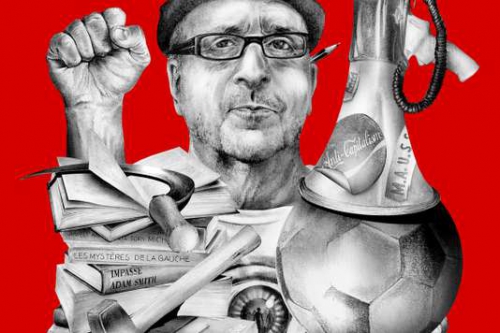
All abstract revolutionary doctrine, whether economic or political, warns Michéa, sacrifices the people to its power-seeking goals, whether Taylorist (revolutionizing the means of production to maximum efficiency) or Leninist (revolutionizing the control of the means of production to the point of absolute central control). Michéa finishes with a dire warning that what he calls “Silicon Valley liberalism” is the new face of an old ideology whose ideals are growth and progress in a world which cannot bear much more of either, and whose victims are the great mass of human beings, whose natural ethnic, geographical, and social attachments are being destroyed by humanity’s great enemy, capital. This is what Michéa has to say about the condescending pose of modern advanced and affluent liberal thinkers:
For a growing number of people of modest means, whose daily life is hell, the words “Left-wing” mean, if they mean anything at all, at best a defense of public sector workers (which they realize is a protected corral, albeit they may have an idealized view of public employees’ working conditions), and at worst, “Left-wing” means to them the self-justification of journalists, intellectuals, and show-business stars whose imperturbable and permanently patronizing tone has become literally intolerable. (p. 300) (Emphasis Michéa’s)
So now we are back where I started. Clinton ignored the rust belt and Donald Trump won the election. But now Donald Trump seems to be more interested in what he is most skilled at: accumulating capital. Brexit spokesmen seem to be more concerned with proving that Britain’s exit from the EU will open the way for more international trade than stressing that it provides the nation with the ability to close its borders and create a fairer society.
The liberal global model is one model of society, proposed to us today by the champions of globalism and growth; the society where, as John Rawls approvingly put it, individuals can exist side by side with each other while being mutually indifferent. Michéa asks, what is the second element within socialism, distinct from liberal notions of progress and growth, that is a model of society which is socialist but not global, not top-down? It is the socialism of the living indigenous community, of those who, as he puts it, “feel solidarity from the very beginning,” and socialism will be the rebirth, in superior form, of an archaic social type. The choice, in other words, is between a true community of kindred spirits and the barbarism of global centralized power, whose aim is to reduce human society to a mass of hapless individuals easily divided and oppressed.
18:26 Publié dans Livre, Livre, Philosophie, Théorie politique | Lien permanent | Commentaires (0) | Tags : socialisme, libéralisme, jean-claude michéa, théorie politique, politologie, sciences politiques, gauches, gauche, philosophie, capitalisme, philosophie politique |  |
|  del.icio.us |
del.icio.us |  |
|  Digg |
Digg | ![]() Facebook
Facebook
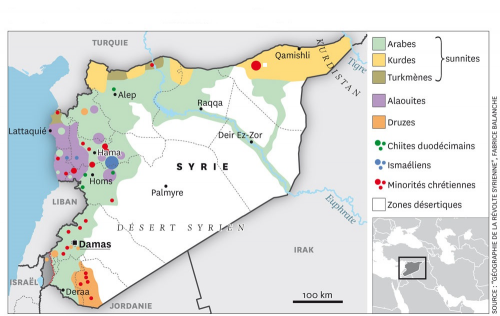
Dans le monde arabo-musulman, le terme « alaouite » désigne l’actuelle dynastie royale marocaine en référence à son fondateur, descendant de Mahomet, venu sur la demande des tribus locales, d’où son titre de « Commandeur des croyants », ce qui lui permet de contenir les poussées islamistes.
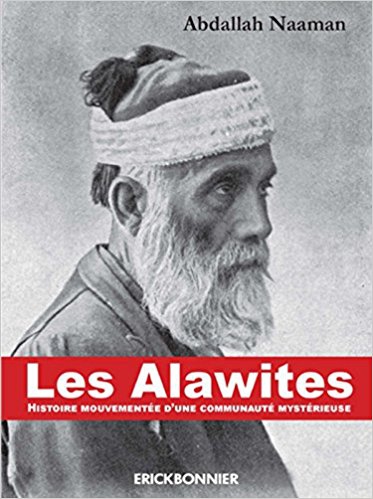 Le mot mentionne ensuite une communauté ethno-religieuse surtout présente en Syrie et au Liban. Abdallah Naaman étudie ce groupe peu connu pour lequel il remplace les lettres o et u par un w : Les Alawites. Histoire mouvementée d’une communauté mystérieuse (Éditions Érick Bonnier, coll. « Encre d’Orient », 359 p., 20 €). L’ouvrage se compose de deux parties inégales. L’une revient longuement sur le déclenchement de la guerre civile syrienne. Démocrate et laïque, l’auteur récuse les supposés rebelles et vrais terroristes islamistes sans pour autant soutenir le gouvernement légitime du président Bachar al-Assad. Très critique envers Israël et l’Arabie Saoudite, il n’hésite pas à qualifier Nicolas Sarkozy de « burlesque », Laurent Fabius de « mouche du coche (p. 200) » et à dénoncer le philosophe botulien Bernard-Henri Lévy qu’il considère comme un « affabulateur (p. 201) » et un « malhonnête homme à la chemise blanche immaculée que d’aucuns traitent d’imposteur intellectuel de la nouvelle philosophie (p. 201) ». Cependant, hors de ces quelques vérités très incorrectes, l’autre partie s’attache à découvrir un peuple mystérieux.
Le mot mentionne ensuite une communauté ethno-religieuse surtout présente en Syrie et au Liban. Abdallah Naaman étudie ce groupe peu connu pour lequel il remplace les lettres o et u par un w : Les Alawites. Histoire mouvementée d’une communauté mystérieuse (Éditions Érick Bonnier, coll. « Encre d’Orient », 359 p., 20 €). L’ouvrage se compose de deux parties inégales. L’une revient longuement sur le déclenchement de la guerre civile syrienne. Démocrate et laïque, l’auteur récuse les supposés rebelles et vrais terroristes islamistes sans pour autant soutenir le gouvernement légitime du président Bachar al-Assad. Très critique envers Israël et l’Arabie Saoudite, il n’hésite pas à qualifier Nicolas Sarkozy de « burlesque », Laurent Fabius de « mouche du coche (p. 200) » et à dénoncer le philosophe botulien Bernard-Henri Lévy qu’il considère comme un « affabulateur (p. 201) » et un « malhonnête homme à la chemise blanche immaculée que d’aucuns traitent d’imposteur intellectuel de la nouvelle philosophie (p. 201) ». Cependant, hors de ces quelques vérités très incorrectes, l’autre partie s’attache à découvrir un peuple mystérieux.
Dissidence religieuse qui mêlent rites animistes, musulmans, chrétiens et zoroastriens d’où la célébration des fêtes de Noël et du Nouvel An solaire perse, les Alawites vivent surtout confinés dans les montagnes abruptes du littoral méditerranéen. Toujours méprisée et en conflit permanent avec leurs voisins chiites ismaéliens qui croient en sept imams à la différence des Iraniens, imamites, qui en vénèrent douze, la communauté alawite « longtemps tenue dans une dépendance étroite, sut conserver une vie religieuse, discrète, sinon active. Face à tous les conquérants, les Alawites sont restés immuablement attachés à leur sol, labourant leurs champs, cultivant leur tabac, leurs vignes et leurs oliviers, et gardant au fond d’eux-mêmes l’empreinte et les souvenirs des vieux cultes (p. 330) ».
Après 1918, la France, devenue puissance mandataire au Levant, tente un éphémère État alawite avant de le fondre dans un État syrien à majorité sunnite, soit les oppresseurs habituels. Les jeunes Alawites s’engagent alors en nombre dès cette époque dans l’armée ainsi que dans deux partis politiques rivaux qui proposent un projet laïque intégrateur : le Parti nationaliste social syrien favorable à une Grande Syrie pré-arabe, et le Baas panarabe. Dans les années 1960, les militants baasistes s’emparent du pouvoir à Damas. Puis, après de féroces luttes intestines, en 1970, l’Alawite baasiste Hafez al-Assad devient l’homme fort de la Syrie. Ce baasiste qui a épousé une ancienne militante du Parti nationaliste social syrien donne aux Alawites la direction du pays tout en s’ouvrant aux autres minorités religieuses chrétiennes, druzes et chiites et en s’entendant avec une large partie de la population sunnite.

Drapeau des Alaouites sous le mandat français en Syrie
Les Alawites demeurent une énigme spirituelle, ethnologique et culturelle. Hostiles au prosélytisme, ils gardent secrète leur foi qui baigne dans un ésotérisme complexe mâtiné de croyances autour de la réincarnation de l’âme. Oscillant depuis des siècles entre certaines écoles sunnites modérées et des tendances chiites imamites, les Alawites souhaitent principalement se protéger des multiples menaces qui les entourent. Avec raison, car cette communauté très particulière incarne une part de cette diversité humaine que le monde ultra-moderne entend éradiquer. Voilà pourquoi il faut défendre les Alawites.
Georges Feltin-Tracol
• « Chronique hebdomadaire du Village planétaire », n° 46, diffusée sur Radio-Libertés, le 29 septembre 2017.
18:09 Publié dans Histoire | Lien permanent | Commentaires (0) | Tags : histoire, religion, alaouites, alawites, syrie, levant, proche orient, georges feltin-tracol, actualité, politique internationale |  |
|  del.icio.us |
del.icio.us |  |
|  Digg |
Digg | ![]() Facebook
Facebook
L’indépendance de la Catalogne et sa séparation d’avec l’Espagne pourraient être proclamés dans les jours prochains par le gouvernement et le parlement régional. Est-ce à bon droit, et surtout est-ce pratiquement possible dans la situation présente ?
Du point de vue du principe, il faut être conscient qu’il n’existe pas nécessairement et automatiquement de droit à faire sécession dans tous les cas et toutes les situations :
Dire que la Catalogne n’a pas le droit de faire sécession est donc simplement énoncer un fait, que par ailleurs on s’en réjouisse ou qu’on le déplore.
Du point de vue pratique, il serait évidemment pensable que quoique n’en ayant pas le droit, un gouvernement local ou un mouvement politique fasse sécession quand même. Cela s’appelle une insurrection, ou une révolution, et certes l’Histoire fournit de nombreux exemples, parfois réussis, souvent violents.
Dans le cas de la Catalogne cependant, il est très probable que cela n’arrivera pas. Les indépendantistes ont réussi un joli coup tactique avec leur exploitation intelligente des affrontements avec la police lors des débordements du vote du 1er octobre, mais dans l’ensemble ils sont dans une position très faible, pour ne pas dire sans espoir :
1) Suivant les différentes enquêtes d’opinion et suffrages passés, les indépendantistes représentent 40 à 50% de la population de Catalogne – certes nettement plus mobilisés que les autres. C’est encore le résultat du 1er octobre, du moins à en croire les indépendantistes qui annoncent 42% de participation et 90% de vote oui (1)
Cependant, ce pourcentage baisse sévèrement lorsque la question devient l’indépendance sans appartenance à l’Union Européenne. Ce simple fait montre qu’une grande partie des indépendantistes même ne sont pas profondément convaincus, pas suffisamment en tout cas pour accepter des inconvénients économiques sans doute réels mais tout de même passagers – car une Catalogne indépendante finirait bien par se faire admettre en UE, même après un certain nombre d’années. A plus forte raison, une grande partie des indépendantistes ne sont pas prêts à accepter des difficultés et épreuves plus sérieuses pour leur cause. Or, les difficultés arrivent !
2) Le vote du 1er octobre a créé une situation où le gouvernement espagnol dispose d’une méthode très simple pour gagner : il lui suffit de se retrancher derrière le respect et l’application de la loi, toute la loi. Et c’est bien ce qu’il fait.
Le discours du roi (2) – évidemment d’accord avec le gouvernement, nous parlons d’une monarchie constitutionnelle, Felipe VI n’est pas un Louis XIV – est de ce point de vue en quelque sorte le « dernier avertissement sans frais » adressé aux séparatistes. L’inculpation pour sédition du chef de la police régionale de Catalogne le 4 octobre n’est que la première d’une longue série, si du moins le président de la Generalitat – le gouvernement local – et le parlement régional déclarent l’indépendance comme ils l’ont annoncé et comme les règles qu’ils ont eux mêmes définies les y obligent.
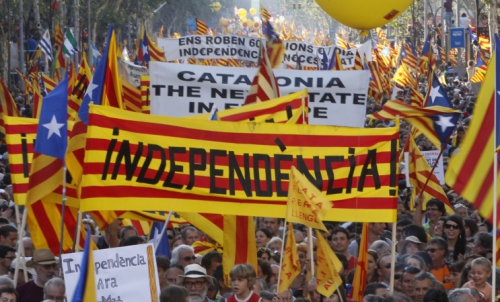
3) Devant l’application sans état d’âme de la loi – avec ou sans utilisation de l’article 155 de la Constitution permettant la suspension au moins partielle de l’autonomie régionale – des mouvements de protestation de grande ampleur sont prévisibles. Ces mouvements n’auront cependant guère d’autre impact que de dégrader et faire pourrir la situation en Catalogne… notamment sur le plan économique. Le gouvernement espagnol peut se permettre cela, même si évidemment ils préféreraient l’éviter. La Generalitat et les chefs indépendantistes, non, car l’accumulation des difficultés économiques ne tardera pas à éloigner d’eux les plus modérés de leurs partisans, tout en galvanisant leurs opposants et en suscitant des pressions plus ou moins discrètes ou publiques des principaux chefs d’entreprise pour les faire reculer
4) Les indépendantistes sont par ailleurs dénués de tout soutien international – à l’exception du président vénézuélien Maduro, sans doute ! – les voisins de l’Espagne n’ayant aucune envie d’y aggraver le désordre ni d’appuyer des actions séparatistes illégales. Il y a évidemment le souci d’un précédent, car s’il est démontré qu’en foulant aux pieds toutes les règles de droit on peut obtenir quelque chose et même l’indépendance, l’exemple risque de faire école. Il y a aussi tout simplement le refus d’une politique agressive contre l’Espagne, car soutenir dans un pays démocratique un mouvement qui viole la constitution serait évidemment inamical pour ne pas dire pire
En somme, les indépendantistes se sont placés dans une situation où soit ils reculent au tout dernier moment en s’abstenant de toute déclaration d’indépendance, ce qui leur serait maintenant difficile et en tout cas politiquement coûteux, soit ils donnent au gouvernement espagnol une occasion en or de démontrer par les faits à la majorité des habitants de Catalogne qu’il n’y avec les séparatistes pas d’avenir ni économique – l’impact des protestations suite aux arrestations le rendra évident – ni d’ailleurs d’avenir en Union Européenne. Si beaucoup de partisans de l’indépendance de la Catalogne semblent avoir perdu cette réalité de vue, l’isolement international des indépendantistes lors de l’épreuve de force à venir finira par le leur rappeler.
Il est probable que Carles Puigdemont et ses partisans escomptaient une autre réaction de l’Etat espagnol, une disposition à toujours continuer de négocier quoi qu’il en soit, et à leur céder ce qu’ils demandent même au mépris des règles de la Constitution du pays. Peut-être espéraient-ils encore que l’UE intervienne en médiation, créant une situation symétrique entre le gouvernement du pays appliquant le droit et celui de la région qui le viole, ce qui les aurait avantagés.
Erreur stratégique majeure, qu’ils vont payer comptant.

Il y aura sans doute encore beaucoup de bruit et de fureur, et la situation pourrait empirer avant de s’améliorer. Mais la position stratégique des séparatistes est telle qu’il est très difficile de les imaginer empêcher le gouvernement espagnol de l’emporter.
De leur point de vue, la seule chance de peut-être changer la situation serait de parvenir à faire couler le sang, c’est-à-dire de pousser le gouvernement de Madrid à la faute et à faire au moins un mort parmi les manifestants. Peut-être les plus extrêmes d’entre eux l’espèrent-ils. C’est cependant et fort heureusement peu probable : Madrid a pu constater que de simples échauffourées comme lors du vote du 1er octobre se paient cher en termes d’image, et il y a fort à parier que la police aura désormais pour instruction d’être plus prudente et de préférer céder ponctuellement du terrain que de répondre à une provocation, afin d’éviter de nouvelles blessures. A plus forte raison, un décès.
Sauf à ce que les choses en arrivent là, la situation finira par se calmer lentement, à mesure de l’épuisement des protestations, permettant à l’activité économique de reprendre sans plus d’obstacle. Le moment venu, à la faveur de nouvelles élections, un nouveau gouvernement régional sera élu.
Tout cela ne changera sans doute pas le fait qu’une partie des Catalans souhaiteraient être indépendants de l’Espagne. Cependant la démonstration pratique que forcer l’indépendance au mépris du droit ne produit rien d’autre qu’une impasse avec troubles économiques, traduction en justice des principaux organisateurs et pas d’autre perspective en cas de succès que l’isolation des voisins européens devrait faire réfléchir plus d’un partisan de l’indépendance et rendre cette option moins attractive à l’avenir. Le basculement d’une partie même réduite des indépendantistes dans la violence armée paraît peu probable, et ne créerait qu’une impasse encore pire : l’Espagne a fait face pendant plusieurs décennies à un mouvement terroriste au Pays Basque, l’ETA qui a tué plus de 800 personnes, et elle a tenu jusqu’à en voir la fin (3)
Certains des partisans de l’indépendance catalane pourraient chercher à l’obtenir dans le cadre de la loi espagnole, donc en faisant d’abord campagne pour une réforme de la constitution (4), cherchant pour cela des alliés politiques dans d’autres régions et à l’échelle du pays.
D’autres pourraient finir par se satisfaire de l’autonomie très étendue que l’Espagne reconnaît déjà à ses régions, notamment la Catalogne.
1 – Il faut être conscient que le vote du 1er octobre ne répond absolument pas aux critères d’un référendum sérieux ni honnête. Pour mémoire, rappelons quelques-unes de ses caractéristiques :
Le vote catalan du 1er octobre aurait fait honte à Vladimir Poutine, s’il avait été organisé en Crimée.
2 – Le texte intégral du discours de Felipe VI le 3 octobre est accessible ici – demander la traduction automatique par votre navigateur qui est d’excellente qualité, probablement revue par un traducteur humain. Le roi d’Espagne a appuyé sans réserve les démarches du gouvernement pour faire appliquer la loi – il faut dire qu’il y est obligé, voici le texte du serment prononcé lors de son couronnement :
« Je jure de remplir fidèlement mes fonctions, de respecter et faire respecter la Constitution et les lois, et de respecter les droits des citoyens et des régions autonomes. »
Respecter et faire respecter, voilà précisément le sujet
3 – L’avantage des gens qui soutiennent un ethno-nationalisme pour raisons en grande partie économiques – préjugés envers les autres Espagnols qui seraient paresseux, inefficaces voire voleurs, égoïsme fiscal – par rapport aux idéologues violents, c’est qu’ils ont du moins le bon sens de ne pas être prêts à mourir ni à tuer pour une telle cause. On préfère le plus souvent sa peau à ses sous.
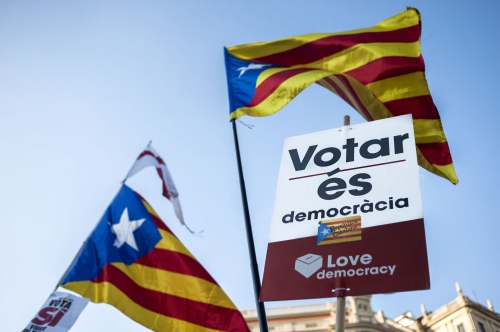
4 – Une réforme de la Constitution espagnole autorisant une région à organiser sa séparation du pays devrait d’après son article 168 d’abord être approuvée dans son principe par les deux tiers à la fois de l’Assemblée et du Sénat, puis être suivie de nouvelles élections parlementaires et de l’approbation définitive, d’une part par les parlementaires à la majorité des deux tiers, d’autre part par l’ensemble des citoyens dans un référendum.
En effet, autoriser la partition de l’Espagne nécessiterait de réformer le titre préliminaire de la Constitution, lequel en son article 2 dispose que :
« La Constitution est fondée sur l’unité indissoluble de la nation espagnole, patrie commune et indivisible de tous les Espagnols.»
20:00 Publié dans Actualité, Affaires européennes, Politique | Lien permanent | Commentaires (0) | Tags : politique, politique internationale, espagne, catalogne, europe, affaires européennes |  |
|  del.icio.us |
del.icio.us |  |
|  Digg |
Digg | ![]() Facebook
Facebook
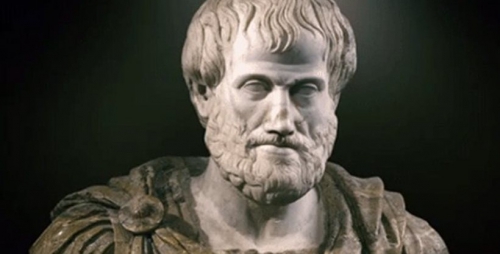
Pierre Le Vigan:
Aristote en politique: bien commun, cité heureuse et autarcie
Les leçons d’Aristote, philosophe moral et politique (laissons de côté ici l3e naturaliste) ne sont pas caduques. Elles doivent bien entendu être lues et comprises dans leur contexte. Mais leurs principes restent en bonne part actuels. Rappels d’une doctrine.
La notion de cité est déterminante dans la philosophie politique d’Aristote. Quelle forme prend cette détermination ? Pour Aristote l’appartenance à la cité précède et en même temps influe de manière décisive sur la définition de sa philosophie politique, c’est-à-dire du bien en politique. En d’autres termes, l’hypothèse préalable d’Aristote à l’élaboration même de sa pensée politique, c’est que l’existence d’un monde commun, un monde qui s’incarne dans la cité, précède la définition du bien commun et le conditionne. Pour comprendre ce cheminement, nous verrons d’abord ce que veut dire « la cité » pour Aristote (I). Nous examinerons quelle conception il en a. Nous verrons ensuite (II) comment la pensée politique d’Aristote prend place dans son analyse de la pratique (praxis).
La philosophie pratique est pour Aristote la « philosophie des choses humaines ». C’est donc la philosophie de la politique. La pensée aristotélicienne suppose un monde commun, la notion de cité et d’appartenance à la cité. Politikon vient de polis. L’étymologie de politique renvoie à la cité. La pensée d’Aristote n’est jamais une pensée hors sol. Elle part de la cité pour chercher le bien de la cité.
Une communauté d’hommes libres
I - La cité (en grec polis) est un Etat avant d’être une ville. Mais c’est aussi une communauté d’hommes libres avant d’être un Etat. C’est une communauté de citoyens libres qui partagent la même histoire, les mêmes héros, les mêmes dieux, les mêmes rites et les mêmes lois. Fustel de Coulanges a souligné l’importance de la religion dans la fondation des cités (La cité antique, 1864). Ainsi, chaque cité grecque a un panthéon différent. La cité en tant que polis n’est pas d’abord une donnée spatiale. Mais il se trouve que (a fortiori dans un paysage accidenté comme celui de la Grèce, ou de la Grande Grèce [Sicile]), la cité correspond aussi à un lieu déterminé, à une géographie particulière. Cette communauté de citoyens dans un lieu particulier, c’est une communauté politique souveraine au côté d’autres communautés politiques, rivales, alliées ou ennemis.
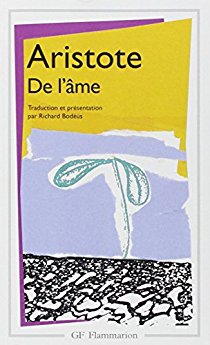 « Il est donc manifeste que la cité n'est pas une communauté de lieu, établie en vue de s'éviter les injustices mutuelles et de permettre les échanges. Certes, ce sont là des conditions qu'il faut nécessairement réaliser si l'on veut qu'une cité existe, mais quand elles sont toutes réalisées, cela ne fait pas une cité, car [une cité] est la communauté de la vie heureuse, c'est-à-dire dont la fin est une vie parfaite et autarcique pour les familles et les lignages » (Politiques, III, 9, 6-15).
« Il est donc manifeste que la cité n'est pas une communauté de lieu, établie en vue de s'éviter les injustices mutuelles et de permettre les échanges. Certes, ce sont là des conditions qu'il faut nécessairement réaliser si l'on veut qu'une cité existe, mais quand elles sont toutes réalisées, cela ne fait pas une cité, car [une cité] est la communauté de la vie heureuse, c'est-à-dire dont la fin est une vie parfaite et autarcique pour les familles et les lignages » (Politiques, III, 9, 6-15).
Dans Politiques (nous nous référerons à la traduction de Pierre Pellegrin, Garnier Flammarion, 1990), Aristote s’attache à déterminer quels doivent être les rapports des hommes entre eux. C’est là le cœur de la politique. Cela ne concerne que les hommes qui vivent dans un cadre politique, c’est-à-dire dans une cité. Les Barbares sont donc exclus et, à l’intérieur même de la cité, les esclaves et les femmes. Les Barbares sont certes, tout comme les esclaves et les femmes, des êtres rationnels, mais ce ne sont pas des êtres politiques.
Que sont les êtres politiques au sens grec ? Si l’homme possède le langage, et pas seulement la voix, c’est qu’il est destiné à vivre en société. Par le langage, l’homme peut se livrer au discours et à la délibération. Aristote explique cela ainsi : « § 10. […] la parole est faite pour exprimer le bien et le mal, et, par suite aussi, le juste et l'injuste ; et l'homme a ceci de spécial, parmi tous les animaux, que seul il conçoit le bien et le mal, le juste et l'injuste, et tous les sentiments de même ordre, qui en s'associant constituent précisément la famille et l'État. § 11. On ne peut douter que l'État ne soit naturellement au-dessus de la famille et de chaque individu ; car le tout l'emporte nécessairement sur la partie, puisque, le tout une fois détruit, il n'y a plus de parties, plus de pieds, plus de mains, si ce n'est par une pure analogie de mots, comme on dit une main de pierre ; car la main, séparée du corps, est tout aussi peu une main réelle. […] § 12. Ce qui prouve bien la nécessité naturelle de l'État et sa supériorité sur l'individu, c'est que, si on ne l'admet pas, l'individu peut alors se suffire à lui-même dans l'isolement du tout, ainsi que du reste des parties ; or, celui qui ne peut vivre en société, et dont l'indépendance n'a pas de besoins, celui-là ne saurait jamais être membre de l'État. C'est une brute ou un dieu. » Or chacun comprendra que les brutes sont plus courantes que les dieux.
Aristote poursuit : « § 13. La nature pousse donc instinctivement tous les hommes à l'association politique. Le premier qui l'institua rendit un immense service ; car, si l'homme, parvenu à toute sa perfection, est le premier des animaux, il en est bien aussi le dernier quand il vit sans lois et sans justice. […]. Sans la vertu, c'est l'être le plus pervers et le plus féroce ; il n'a que les emportements brutaux de l'amour et de la faim. La justice est une nécessité sociale ; car le droit est la règle de l'association politique, et la décision du juste est ce qui constitue le droit » (Politiques I, 1253a).
Mais, comment vivre bien en société, c’est-à-dire en fonction du bien ? Comment faire ce qu’ordonne la vertu ? « Comment atteindre à ce noble degré de la vertu de faire tout ce qu’elle ordonne » (Politiques, IV, 1, 6).
Comment s’incarne cette recherche de la vertu ? Aristote voyait pour la cité trois types de constitutions possibles : la monarchie, l’aristocratie, le gouvernement constitutionnel (politeia) ou république. Le premier type, la monarchie, est le gouvernement d’un seul, qui est censé veiller au bien commun. Le deuxième type, l’aristocratie est censée être le gouvernement des meilleurs. Le troisième type, le gouvernement constitutionnel, ou encore la république, est censé être le gouvernement de tous.
Ces trois régimes ont leur pendant négatif, qui représente leur dévoiement. Il s’agit de la tyrannie, perversion de la monarchie, de l’oligarchie (gouvernement de quelques-uns) comme dévoiement de l’aristocratie, de la démocratie comme perversion du gouvernement constitutionnel (Politiques, III, 7, 1279a 25). « Aucune de ces formes ne vise l’avantage commun » conclut Aristote.
 Notons que la démocratie est, pour Aristote, le gouvernement des plus pauvres, à la fois contre les riches et contre les classes moyennes. Le terme « démocratie » est ainsi pour Aristote quasiment synonyme de démagogie. (Cela peut choquer mais nos élites n’ont-elles pas la même démarche en assimilant toute expression des attentes du peuple en matière de sécurité et de stabilité culturelle à du « populisme », terme aussi diabolisateur que polysémique, comme l’a montré Vincent Coussedière dans Eloge du populisme et Le retour du peuple. An I ?)
Notons que la démocratie est, pour Aristote, le gouvernement des plus pauvres, à la fois contre les riches et contre les classes moyennes. Le terme « démocratie » est ainsi pour Aristote quasiment synonyme de démagogie. (Cela peut choquer mais nos élites n’ont-elles pas la même démarche en assimilant toute expression des attentes du peuple en matière de sécurité et de stabilité culturelle à du « populisme », terme aussi diabolisateur que polysémique, comme l’a montré Vincent Coussedière dans Eloge du populisme et Le retour du peuple. An I ?)
Pour Aristote, la politique est un savoir pratique. Il s’agit de faire le bien. Dans la conception aristotélicienne de la cité, tout le monde est nécessaire mais tout le monde ne peut être citoyen. Seul peut être citoyen celui qui n’est pas trop pris par des tâches utiles. « Le trait éminemment distinctif du vrai citoyen, c’est la jouissance des fonctions de juge et de magistrat » (Politiques, II, 5, 1257a22). Le paysan et l’artisan ne peuvent être citoyens, pas plus que le commerçant.
L’esclavage, qui n’était pourtant pas très ancien dans la Grèce antique, est justifié par Aristote. Il permet aux citoyens de s’élever au-dessus de certaines tâches matérielles. « Le maître doit autant que possible laisser à un intendant le soin de commander à ses esclaves, afin de pouvoir se livrer à la vie politique ou à la philosophie, seules activités vraiment dignes d'un citoyen » (Politiques, I, 2, 23). La vision qu’a Aristote de la société est incontestablement hiérarchique.
Toutefois, l’inégalitarisme d’Aristote n’empêche pas qu’il défende l’idée d’un minimum à vivre pour tous. « Aucun des citoyens ne doit manquer des moyens de subsistance » (Politiques, VII, 10, 1329a). Ce point de vue est logique car Aristote définit le but de la communauté comme « la vie heureuse » : « Une cité est la communauté des lignages et des villages menant la vie heureuse c’est-à-dire dont la fin est une vie parfaite et autarcique. Il faut donc poser que c'est en vue des belles actions qu'existe la communauté politique, et non en vue de vivre ensemble ». (Politiques, III, 9, 6-15).
Le bonheur de la cité et l’autarcie sont donc liés. L’autarcie est l’une des conditions du bonheur, et un signe du bonheur. Cela, qui est notre cité, est limité et cela est bien, justement parce que ce qui est bien tient dans des limites. Que nous disent les limites ? Que le bien a trouvé sa place. Qu’il est à sa place. Cette notion d’autosuffisance ou encore d’autarcie s’oppose à un trop grand pouvoir des commerçants, c’est-à-dire de la fonction marchande. C’est aussi une vision hiérarchique où sont respectées les diversités et les inégalités, car si toutes les diversités ne sont pas des inégalités, beaucoup le sont.
La question de la taille de la cité n’est pas un détail dans la pensée d’Aristote. Elle fait partie du politique, comme le remarque Olivier Rey (dans Une question de taille, Stock, 2014). « Une cité première, note Aristote, est nécessairement celle qui est formée d’un nombre de gens qui est le nombre minimum pour atteindre l’autarcie en vue de la vie heureuse qui convient à la communauté politique [...]. Dès lors, il est évident que la meilleure limite pour une cité, c’est le nombre maximum de citoyens propre à assurer une vie autarcique et qu’on peut saisir d’un seul coup d’œil. » (Politiques, VII). En d’autres termes, dès que l’autarcie est possible, la cité doit cesser de grandir.
Ni trop petite ni trop grande, telle doit donc être la cité. C’est le concept de médiété que l’on retrouve ici. La cité doit être comprise entre 10 et 100 000 habitants, précise Aristote (Ethique à Nicomaque, IX, 9, 1170 b 31). Il est évident que 10 est un chiffre que l’on ne doit pas prendre au premier degré. Aristote veut dire que la population de la cité doit au moins excéder une famille, qu’elle est toujours autre chose et plus qu’une famille. L’idée d’un maximum d’habitants est la plus importante à retenir. Etre citoyen n’est plus possible pour Aristote dans une cité trop grande, trop peuplée. Et il semble bien que le chiffre de 100 000 habitants soit l’ordre d’idée à retenir. (On notera que les circonscriptions françaises pour les députés étaient à l’origine de la IIIe République de 100 000 habitants. Un vestige des conceptions d’Aristote ?). En résumé, Aristote rejette le gigantisme.
Rappelons ce qu’Aristote dit de la vertu majeure de médiété. « Ainsi donc, la vertu est une disposition à agir d'une façon délibérée, consistant en une médiété relative à nous, laquelle est rationnellement déterminée et comme la déterminerait l'homme prudent. Mais c'est une médiété entre deux vices, l'un par excès et l'autre par défaut ; et c'est encore une médiété en ce que certains vices sont au-dessous, et d'autres au-dessus de "ce qu'il faut" dans le domaine des affections aussi bien que des actions, tandis que la vertu, elle, découvre et choisit la position moyenne. C'est pourquoi, dans l'ordre de la substance et de la définition exprimant la quiddité, la vertu est une médiété, tandis que dans l'ordre de l'excellence et du parfait, c'est un sommet » (Ethique à Nicomaque, II, 6, 1106b7-1107a8). Disons-le autrement : la vertu est l’absence d’excès, ni excès de prudence qui serait alors timidité peureuse ni excès de témérité, qui serait hardiesse inconsciente, et cette façon de s’écarter des excès est une excellence. Pour la cité, le principe est le même : il s’agit de suivre une ligne de crête entre les excès que serait une trop petite et une trop grande taille. En tout état de cause, la question de la bonne taille est importante. Du reste, on ne peut remédier à une trop grande taille par la fermeture des frontières. Selon Aristote, il ne suffirait pas « d’entourer de remparts » tout le Péloponnèse pour en faire une cité (Politiques, III, 1, 1276a). Il faut éviter la démesure. Après, il est trop tard.
C’est parce qu’elle est parfaitement adaptée à elle-même que la cité tend par nature à l’autarcie. Sa finitude est sa perfection. « Cette polis représente la forme la plus haute de la communauté humaine », note Hannah Arendt (La politique a-t-elle encore un sens ? L’Herne, 2007). Néanmoins, la coopération, l’association entre cités est possible. C’est l’isopolitéia, le principe d’une convention ou encore association entre cités dont l’un des aspects était souvent le transfert de populations pour rétablir les équilibres démographiques (cf. Raoul Lonis, La cité dans le monde grec, Nathan, 1994 et Armand Colin, 2016). Exemple : Tripoli veut dire « association de trois cités ».
*
II – Comment la politique s’inserre-t-elle dans ce qu’Aristote appelle praxis ? Et quelles conséquences peut-on en tirer sur la cité ?
Praxis, technique et production
 Dans la philosophie d’Aristote, on rencontre plusieurs domaines : la theoria (la spéculation intellectuelle, ou contemplation), l’épistémé (le savoir), la praxis (la pratique) et la poiesis (la production, qui est précisément la production ou la création des œuvres). Nous avons donc quatre domaines. La theoria c’est, à la fois, ce que nous voyons et ce que nous sommes. L’epistémé, c’est ce que nous pouvons connaitre. La poiesis, c’est ce que nous faisons. La praxis, c’est comment nous le faisons.
Dans la philosophie d’Aristote, on rencontre plusieurs domaines : la theoria (la spéculation intellectuelle, ou contemplation), l’épistémé (le savoir), la praxis (la pratique) et la poiesis (la production, qui est précisément la production ou la création des œuvres). Nous avons donc quatre domaines. La theoria c’est, à la fois, ce que nous voyons et ce que nous sommes. L’epistémé, c’est ce que nous pouvons connaitre. La poiesis, c’est ce que nous faisons. La praxis, c’est comment nous le faisons.
Praxis et poiesis sont proches sans se confondre. La production (poiesis) est inclue dans la pratique (praxis). C’est parce que nous travaillons de telle façon que nous produisons tel type de choses. Mais tout en étant inclue, elle s’y oppose. En effet, la pratique trouve sa fin en elle-même, elle n’a pas besoin de se justifier par une production, par un objet produit, une œuvre produite. La pratique est liée à notre être propre.
Pour le dire autrement, la production est une action, mais toute action n’est pas une production. Certaines pratiques ne sont pas des productions. Elles n’ont pas pour objet une œuvre comme produit. Un exemple est celui de la danse.
Une production a par contre sa fin à l’extérieur d’elle-même : travailler pour construire une chaise, ou un attelage de chevaux, par exemple. En outre, ce qui relève de la production mobilise aussi la techné, l’art des techniques. Avec la poiesis, il s’agit de produire quelque chose d’extérieur à soi, ou d’obtenir un résultat extérieur à soi (par exemple, réaliser un bon chiffre d’affaire pour un commerçant). Par opposition à cela, la pratique ou praxis possède en elle-même sa propre fin. Elle est en ce sens supérieure à la production. Ainsi, bien se conduire, qui est une forme de praxis, est une activité immanente à soi.
L’enjeu de la praxis est toujours supérieur à celui de la poiesis. Le but ultime de la praxis, c’est le perfectionnement de soi. Ce qui trouve en soi sa propre fin est supérieur à ce qui trouve sa fin à l’extérieur de soi.
Or, qu’est-ce qui relève de l’action hors la production ? Qu’est-ce qui relève de la praxis ? C’est notamment l’éthique et la politique. Les deux sont indissociables. Ce sont des domaines de la pratique. Là, il s’agit moins de chercher l’essence de la vertu que de savoir comment pratiquer la vertu pour produire le bien commun. « L’Etat le plus parfait est évidemment celui où chaque citoyen, quel qu’il soit, peut, grâce aux lois, pratiquer le mieux la vertu, et s’assurer le plus de bonheur. » (Politiques, IV, 2, 1324b). L’ordre social et politique optimum est celui qui permet la pratique de la vertu, qui travaille ainsi à atteindre le bien commun. C’est ce qui permet le bonheur des hommes dans la cité.
Si la vertu politique ne se confond pas avec la philosophie, les deux se nourrissent réciproquement. En recherchant la sagesse, l’homme arrive à la vertu, qui concerne aussi bien l’individu que l’Etat et est nécessaire dans les deux cas. En effet, la politique est « la plus haute de toutes les sciences » (Politiques, III, 7).
Comment pratiquer la vertu ? Est-ce une question de régime politique ? Qu’il s’agisse de monarchie, d’aristocratie ou de république (régime des citoyens), tous ces régimes peuvent être bons selon Aristote selon qu’ils modèrent les désirs extrêmes et sont animés par la vertu. La politique a des conditions en matière de morale et en matière d’éducation. Dans le même temps, il n’y a pas de morale (ou d’éthique) ni d’éducation qui n’ait de conséquences politiques. Les deux se tiennent. (Platon, ici d’accord avec Aristote, avait souligné que la politique était avant tout affaire d’éducation, d’expérience et de perfectionnement de soi).
En tout état de cause, le collectif, le commun doit primer sur l’individuel. En matière d’éducation, c’est l’Etat qui doit enseigner ce qui est commun, la famille assurant l’éducation dans le domaine privé. « C’est une grave erreur de croire que chaque citoyen est maitre de lui-même ; chacun appartient à l’Etat. » (Politiques, V, 1, 2) (Mais l’Etat n’est pas un lointain, c’est un proche car nous avons vu que les cités avec des populations de grande taille sont proscrites).
La philosophie d’Aristote n’est pas égalitariste, avons-nous déjà noté : chacun a sa place et sa fonction. Pierre Pellegrin résume cela en expliquant que pour Aristote « chacun doit recevoir proportionnellement à son excellence ». Aristote ne pense pas que les hommes soient tous les mêmes même si « tous les hommes pensent que la vie heureuse est une vie agréable » (Ethique à Nicomaque, 1153b15), et que le bonheur est ce « qui est conforme à la vertu la plus parfaite, c'est-à-dire celle de la partie de l'homme la plus haute » (Ethique à N., X, 7).
La justice, c’est que chacun fasse ce qu’il doit faire en allant vers la perfection dans sa fonction. Le bien suprême, le bonheur (eudaimonia) des hommes consiste dans la pleine réalisation de ce qu’ils sont dans la société. Il y a chez Aristote un lien permanent entre justice et politique d’une part, morale et éducation d’autre part. Ce lien consiste à faire prévaloir en nous la partie rationnelle de notre âme sur la partie irrationnelle.
Les idées d’Aristote sont toutes conçues par rapport à la cité. C’est à la fois leur limite et leur force. Aristote suppose un préalable à toute pensée politique. C’est l’existence d’un monde commun, une cité commune, un peuple commun. Le bien commun, c’est la justice, et la condition de la justice, c’est l’amitié (philia). « La justice ira croissant avec l’amitié » (Ethique à Nicomaque, VII, 11).
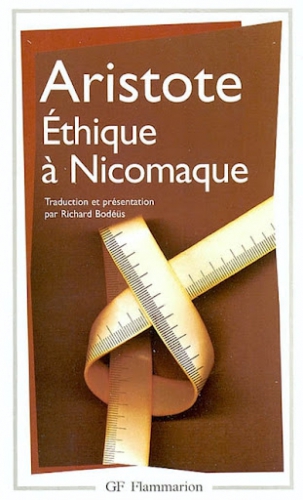 L’amitié n’est pas le partage des subjectivités comme dans le monde moderne, c’est autre chose, c’est l’en-commun de la vertu. « La parfaite amitié est celle des hommes vertueux et qui sont semblables en vertu. » (Ethique à Nicomaque, VIII, 4, 1156 b, trad. Jules Tricot). Hannah Arendt a bien vu cela. Elle rappelle que l’amitié n’est pas l’intimité mais un discours en commun, un « parler ensemble » (Vies politiques, 1955, Gallimard, 1974). « Pour les Grecs, l’essence de l’amitié consistait dans le discours », écrit Hannah Arendt. Le monde commun créé par le partage de l’amitié implique un sens commun du monde et des choses, comme l’avait vu aussi Jan Patocka (Essais hérétiques sur la philosophie de l’histoire, Verdier, 1981). L’amitié contribue à la solidité de la cité. « Toute association est une parcelle de la cité » (« comme des parcelles de l’association entre des concitoyens »). Le principe de l’amitié n’est pas véritablement différent de celui de la politique. Il implique la justice et la vérité. « Chercher comment il faut se conduire avec un ami, c'est chercher une certaine justice, car en général la justice entière est en rapport avec un être ami » (Ethique à Eudème, VII, 10, 1242 a 20).
L’amitié n’est pas le partage des subjectivités comme dans le monde moderne, c’est autre chose, c’est l’en-commun de la vertu. « La parfaite amitié est celle des hommes vertueux et qui sont semblables en vertu. » (Ethique à Nicomaque, VIII, 4, 1156 b, trad. Jules Tricot). Hannah Arendt a bien vu cela. Elle rappelle que l’amitié n’est pas l’intimité mais un discours en commun, un « parler ensemble » (Vies politiques, 1955, Gallimard, 1974). « Pour les Grecs, l’essence de l’amitié consistait dans le discours », écrit Hannah Arendt. Le monde commun créé par le partage de l’amitié implique un sens commun du monde et des choses, comme l’avait vu aussi Jan Patocka (Essais hérétiques sur la philosophie de l’histoire, Verdier, 1981). L’amitié contribue à la solidité de la cité. « Toute association est une parcelle de la cité » (« comme des parcelles de l’association entre des concitoyens »). Le principe de l’amitié n’est pas véritablement différent de celui de la politique. Il implique la justice et la vérité. « Chercher comment il faut se conduire avec un ami, c'est chercher une certaine justice, car en général la justice entière est en rapport avec un être ami » (Ethique à Eudème, VII, 10, 1242 a 20).
La politique est donc affaire de contexte – ce qui est une autre façon de parler de monde commun : « il ne faut pas seulement examiner la meilleure organisation politique, mais aussi celle qui est possible » (Politiques, IV, 1, 1288b).
Pour Aristote, l’homme n’entre jamais en politique en tant qu’homme isolé. Il porte toujours un monde, qui est celui des siens, celui de sa cité. Après avoir expliqué que la cité vise naturellement l’autarcie, c’est à dire le fait de se suffire à soi, Aristote explique : « Il est manifeste […] que la cité fait partie des choses naturelles et que l’homme est un animal politique et que celui qui est hors cité, naturellement bien sûr et non par le hasard des circonstances, est soit un être dégradé soit un être surhumain, et il est comme celui qui est injurié en ces termes par Homère : ’’sans lignage, sans foi, sans foyer’’ (...). Il est évident que l'homme est un animal politique plus que n'importe quelle abeille et que n'importe quel animal grégaire. Car, comme nous le disons, la nature ne fait rien en vain ; et seul parmi les animaux l'homme a un langage » (Politiques, I, 2, 1252a).
La cité d’Aristote n’existe pas que pour satisfaire les besoins. En visant la vie heureuse, qui est un objectif collectif même s’il concerne chacun, elle condamne l’individualisme et met au premier plan l’amitié. Celle-ci n’est pas une affaire privée mais une affaire publique. La vie heureuse est l’affaire de tous et c’est un projet pour tous. Elle est ce qui anime une cité dans laquelle règne la justice. « Il n’y a en effet qu’une chose qui soit propre aux hommes par rapport aux autres animaux : le fait que seuls ils aient la perception du bien, du mal, du juste, de l’injuste et des autres notions de ce genre. Or, avoir de telles notions en commun, c'est ce qui fait une famille et une cité. » (Politiques, I, 2, 1253a8). L’individu seul pourrait ne viser que son plaisir. La cité le pousse à dépasser sa subjectivité pour se hisser vers la recherche du bien commun.
Pierre Le Vigan.
Pierre Le Vigan est écrivain. https://www.amazon.fr/-/e/B004MZJR1M
Son dernier livre est Métamorphoses de la ville. Disponible en Format numérique ou broché
https://www.amazon.fr/M%C3%A9tamorphoses-ville-Romulus-Co...
18:53 Publié dans Philosophie, Théorie politique | Lien permanent | Commentaires (0) | Tags : aristote, philosophie, antiquité grecque, grèce antique, théorie politique, politologie, sciences politiques, pierre le vigan |  |
|  del.icio.us |
del.icio.us |  |
|  Digg |
Digg | ![]() Facebook
Facebook

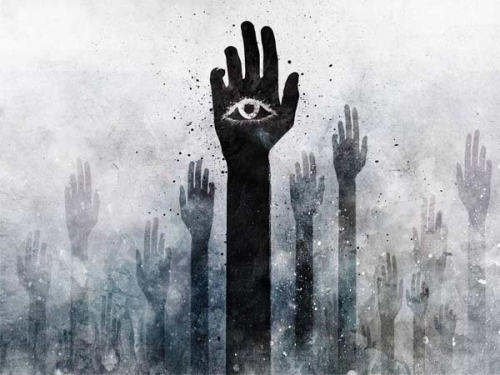

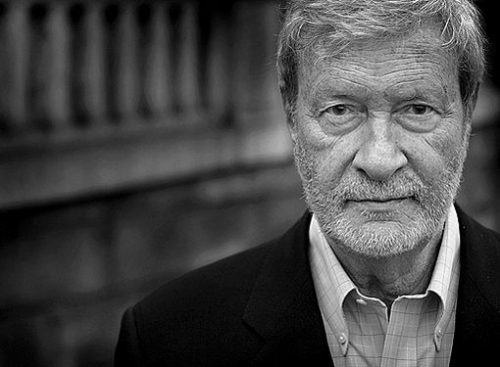
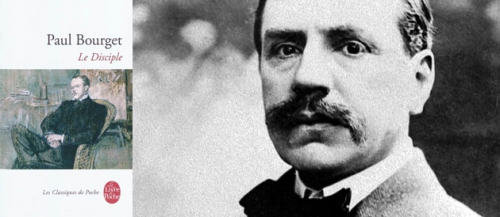
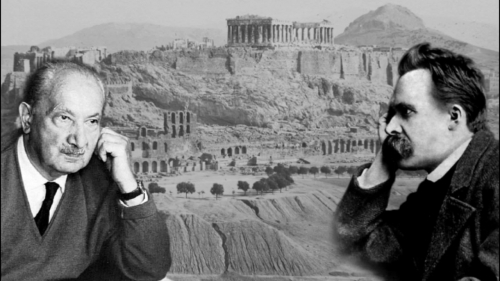
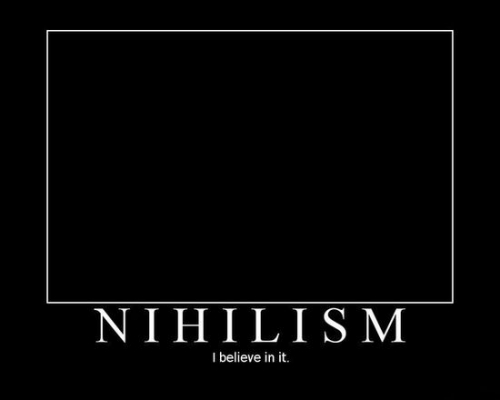
18:15 Publié dans Philosophie | Lien permanent | Commentaires (0) | Tags : pierre le vigan, nihilisme, philosophie |  |
|  del.icio.us |
del.icio.us |  |
|  Digg |
Digg | ![]() Facebook
Facebook